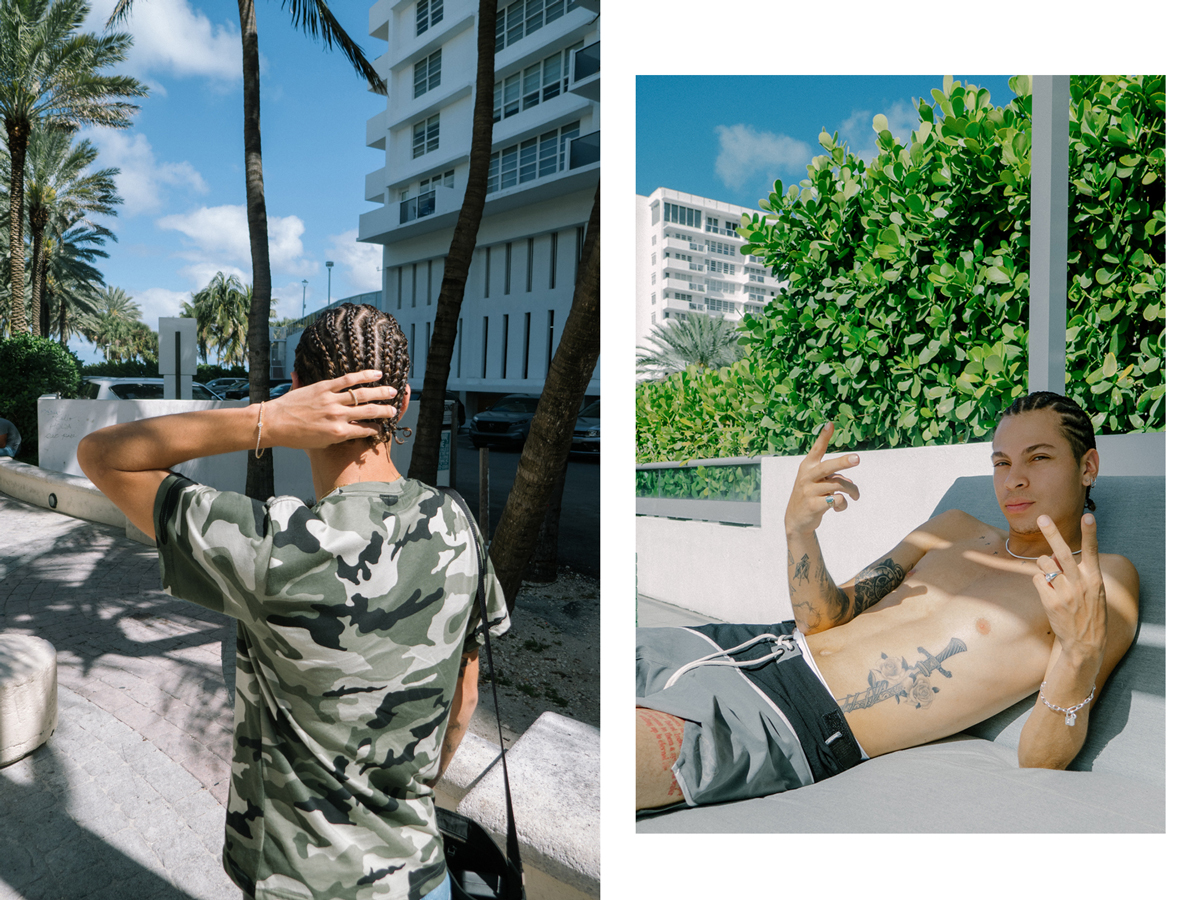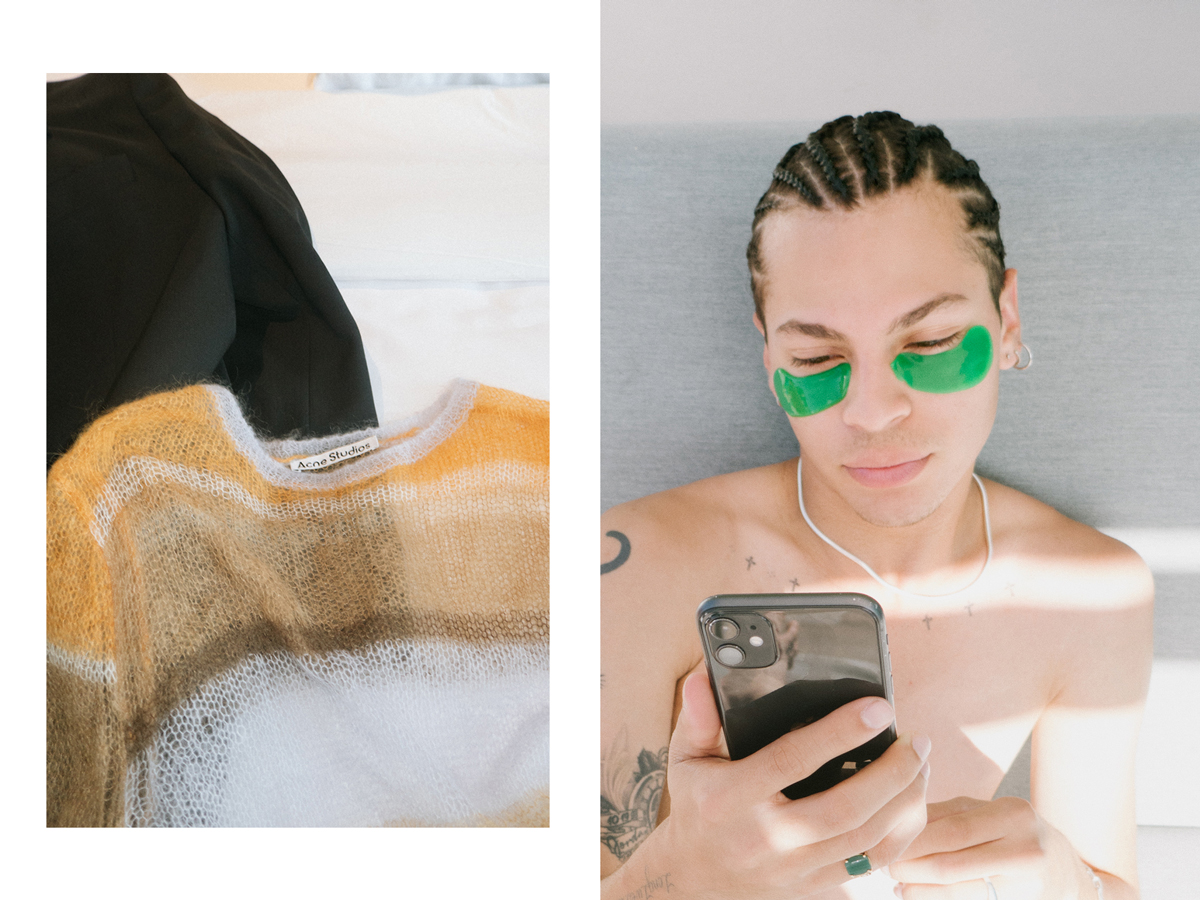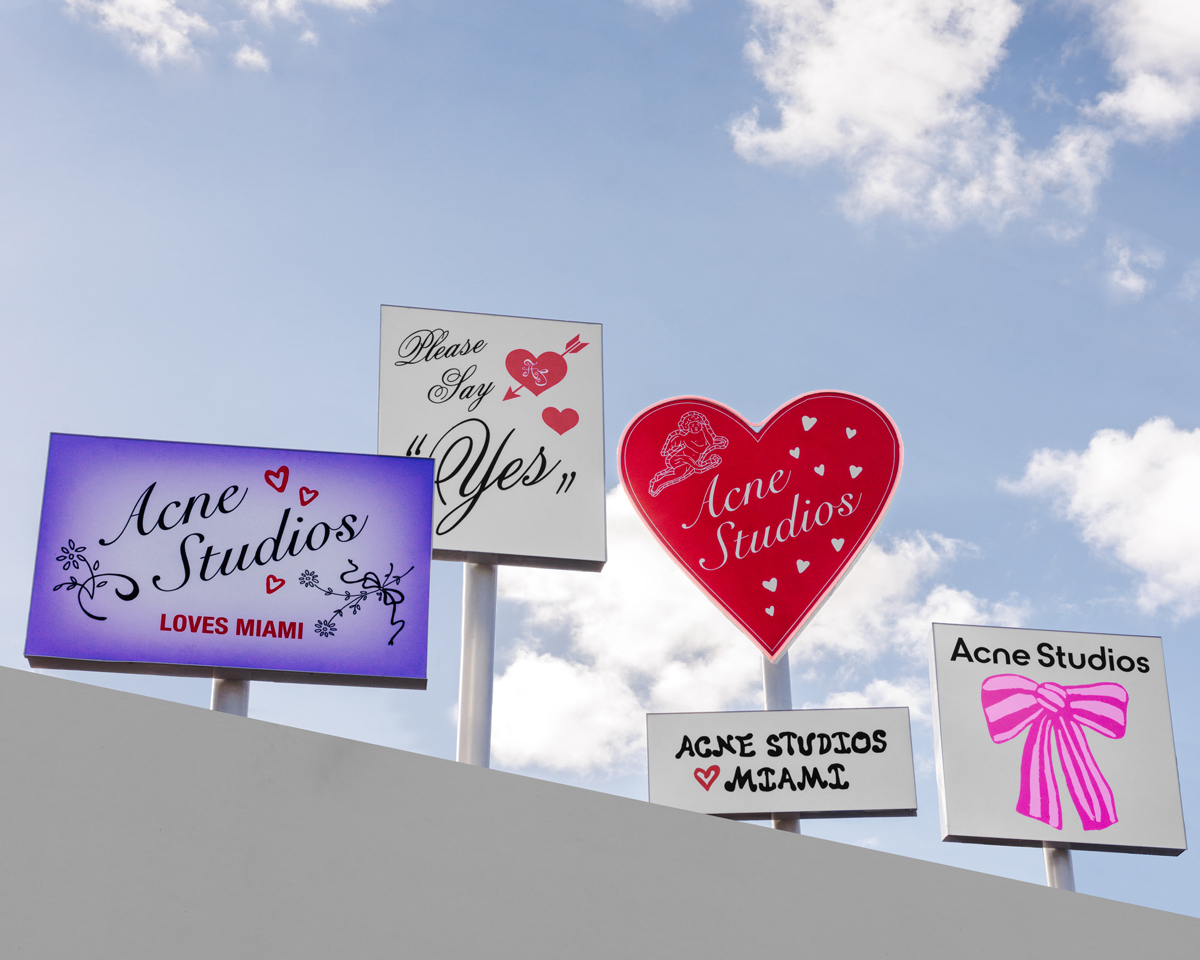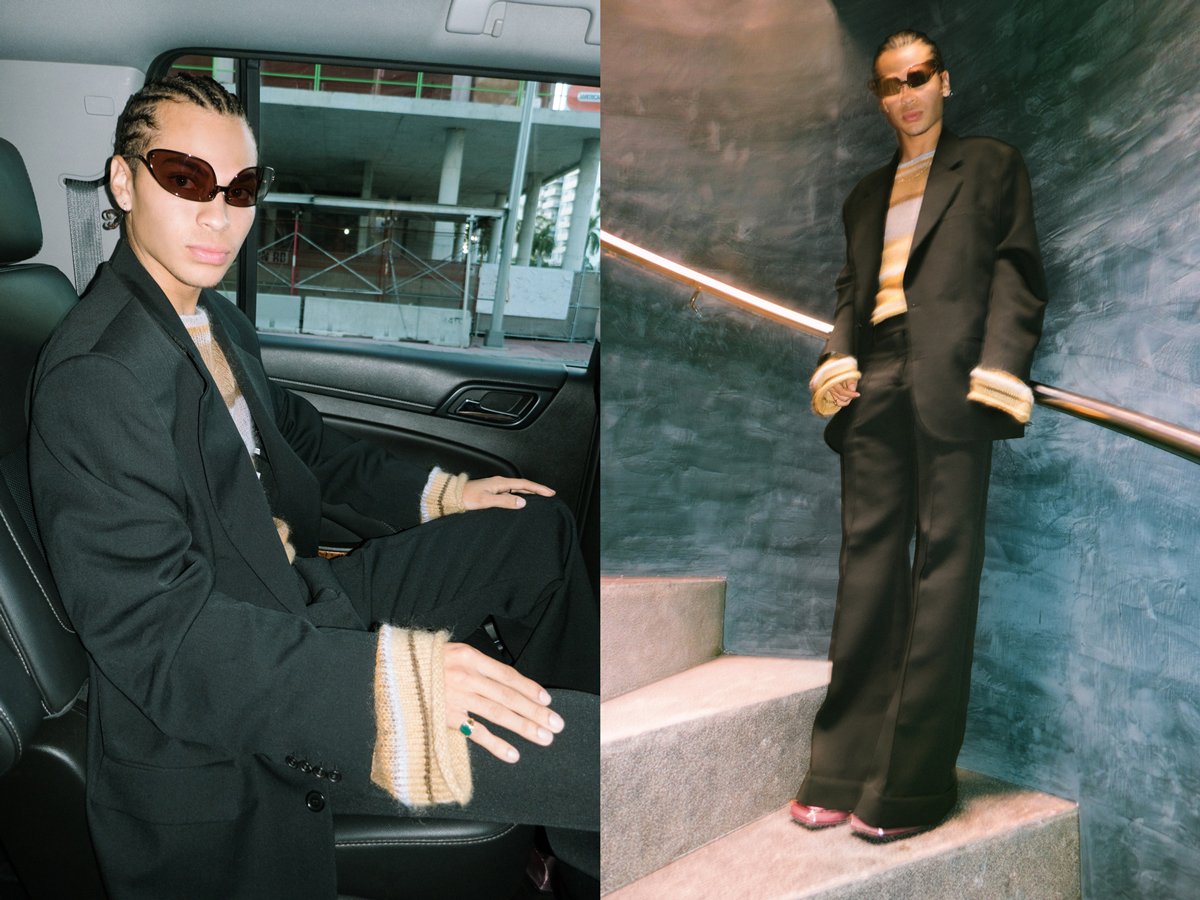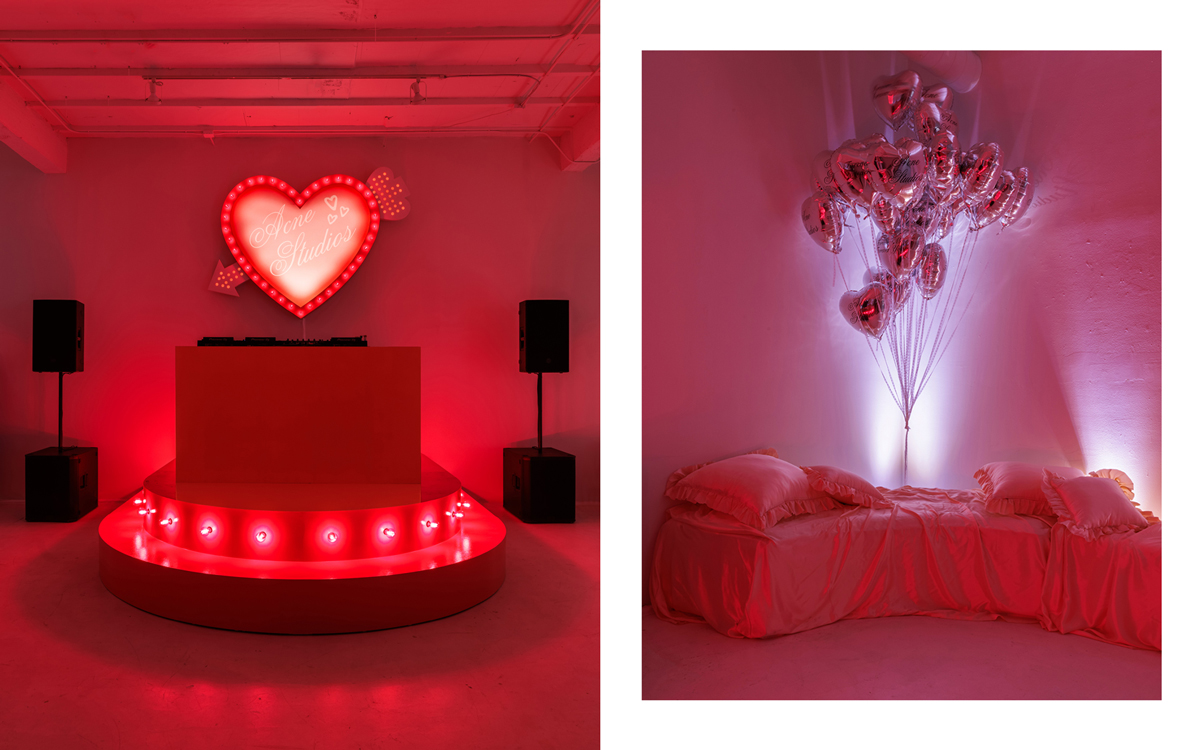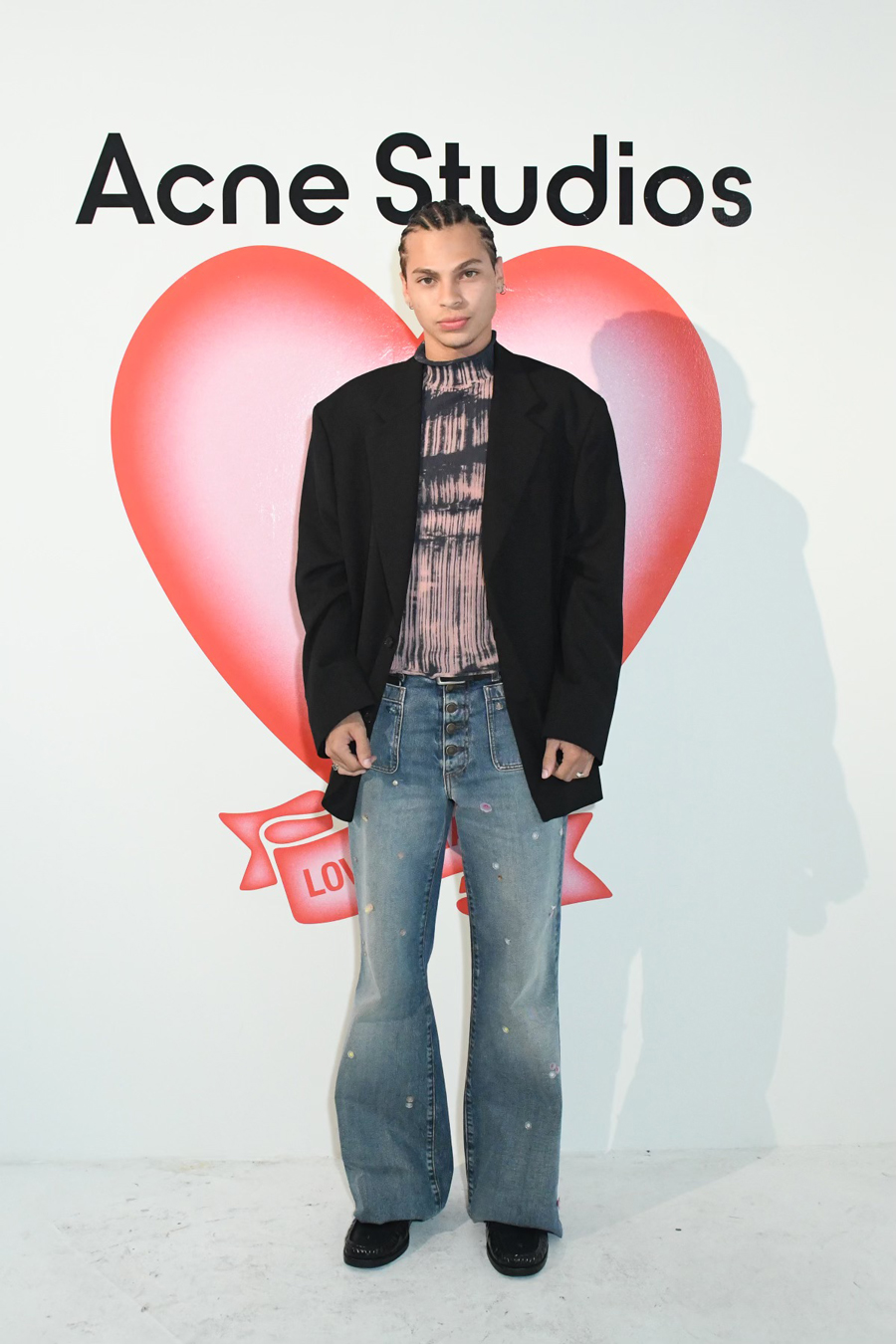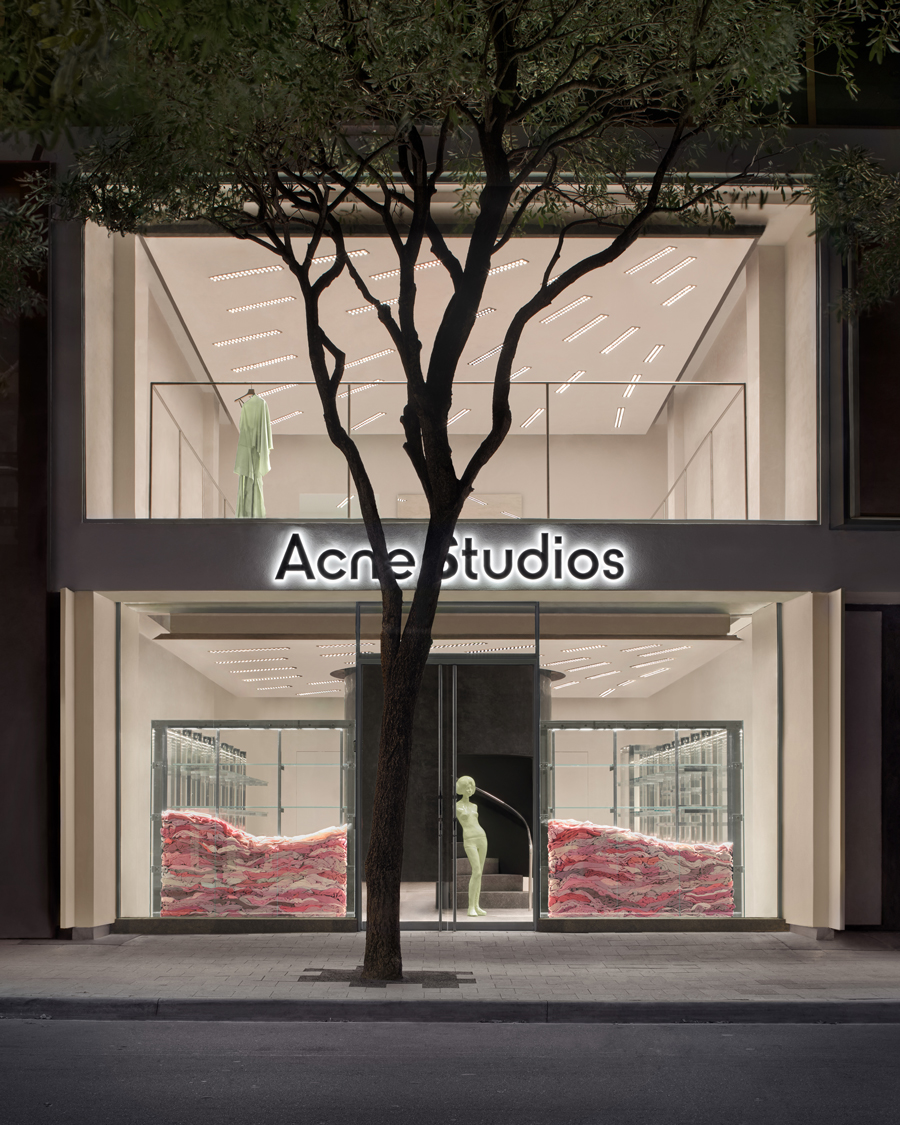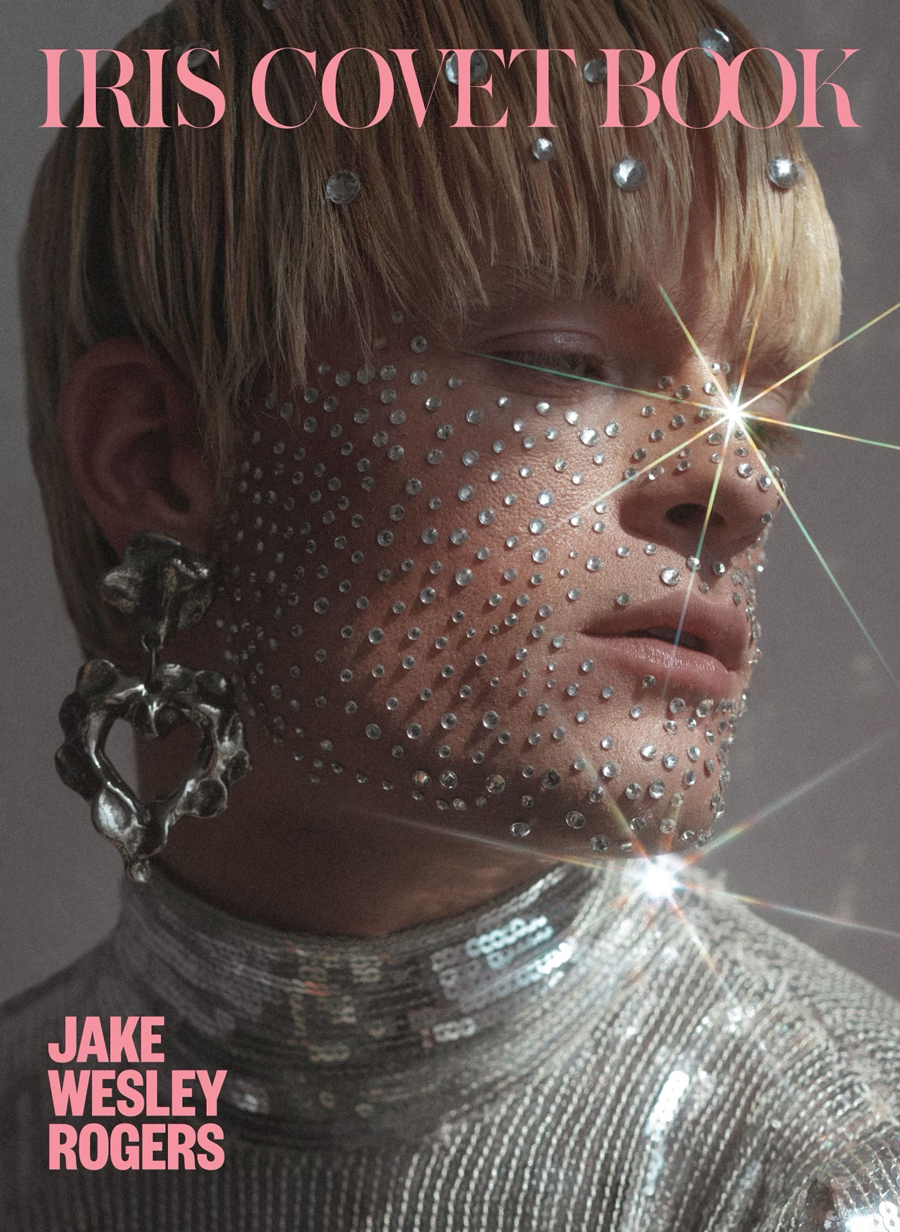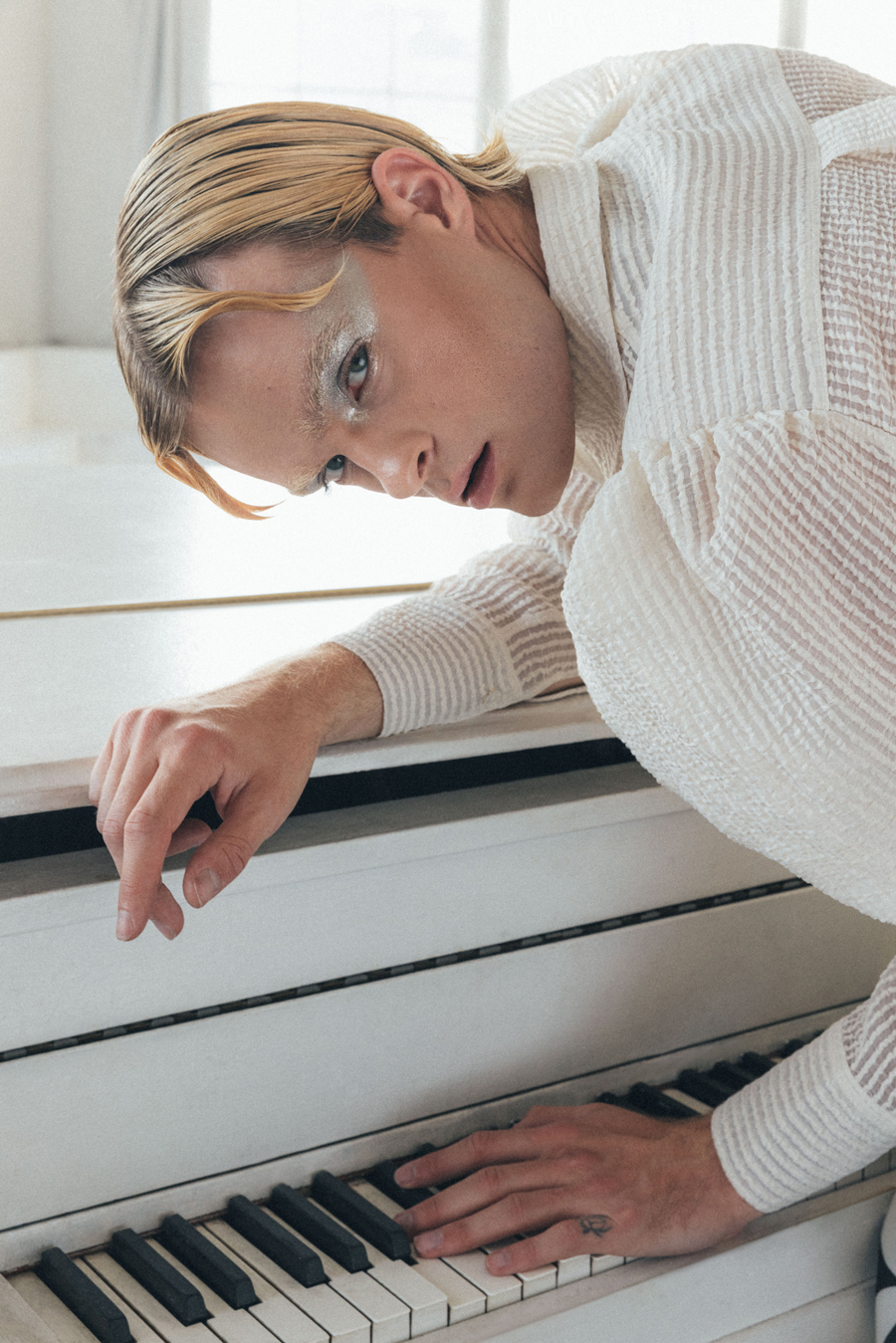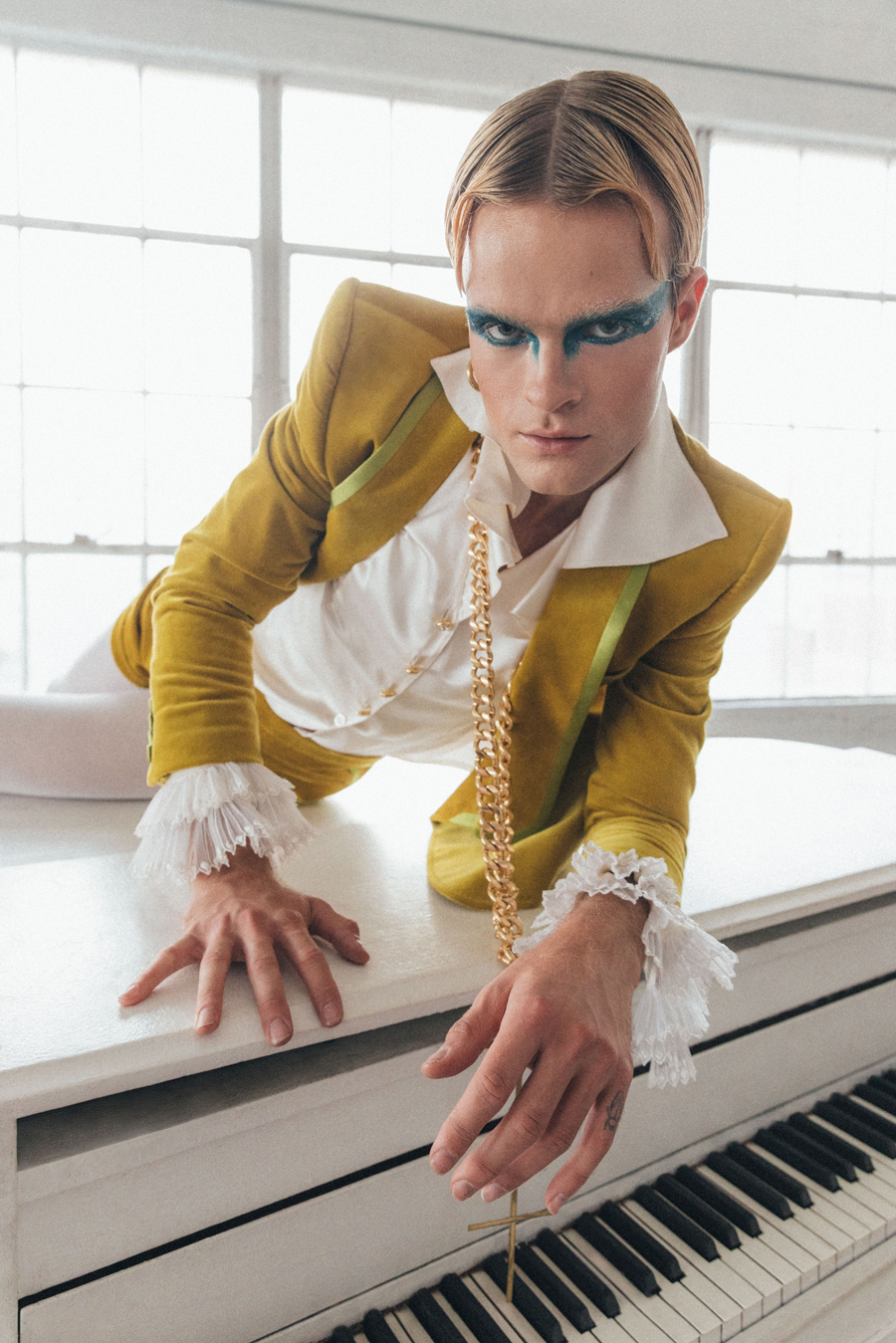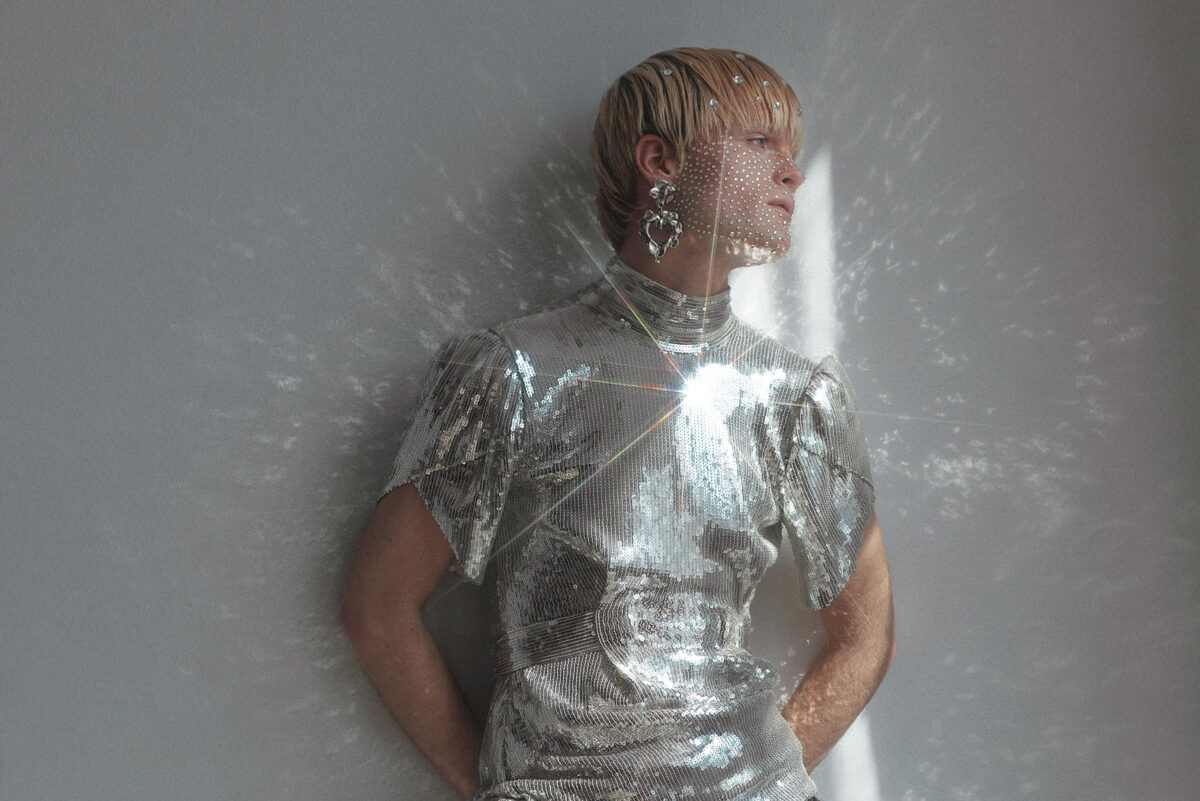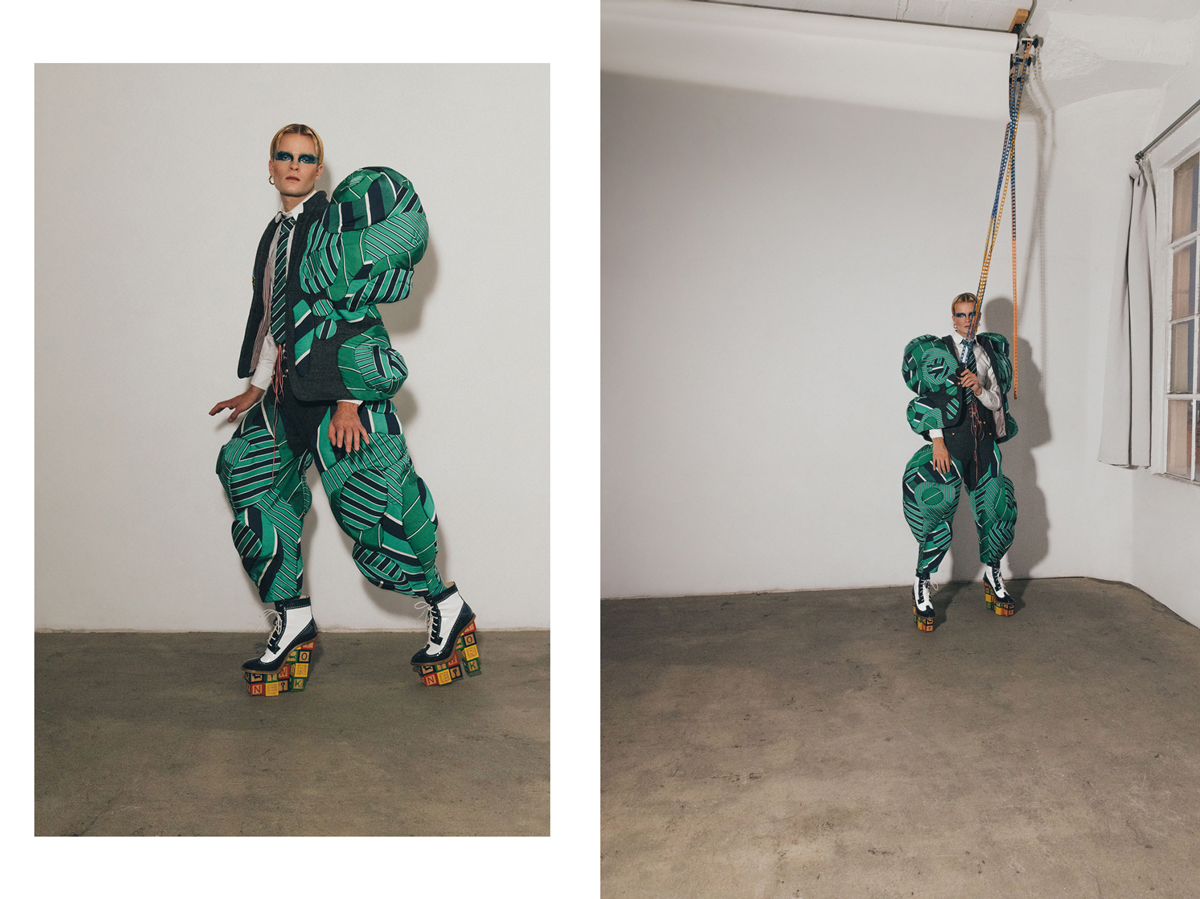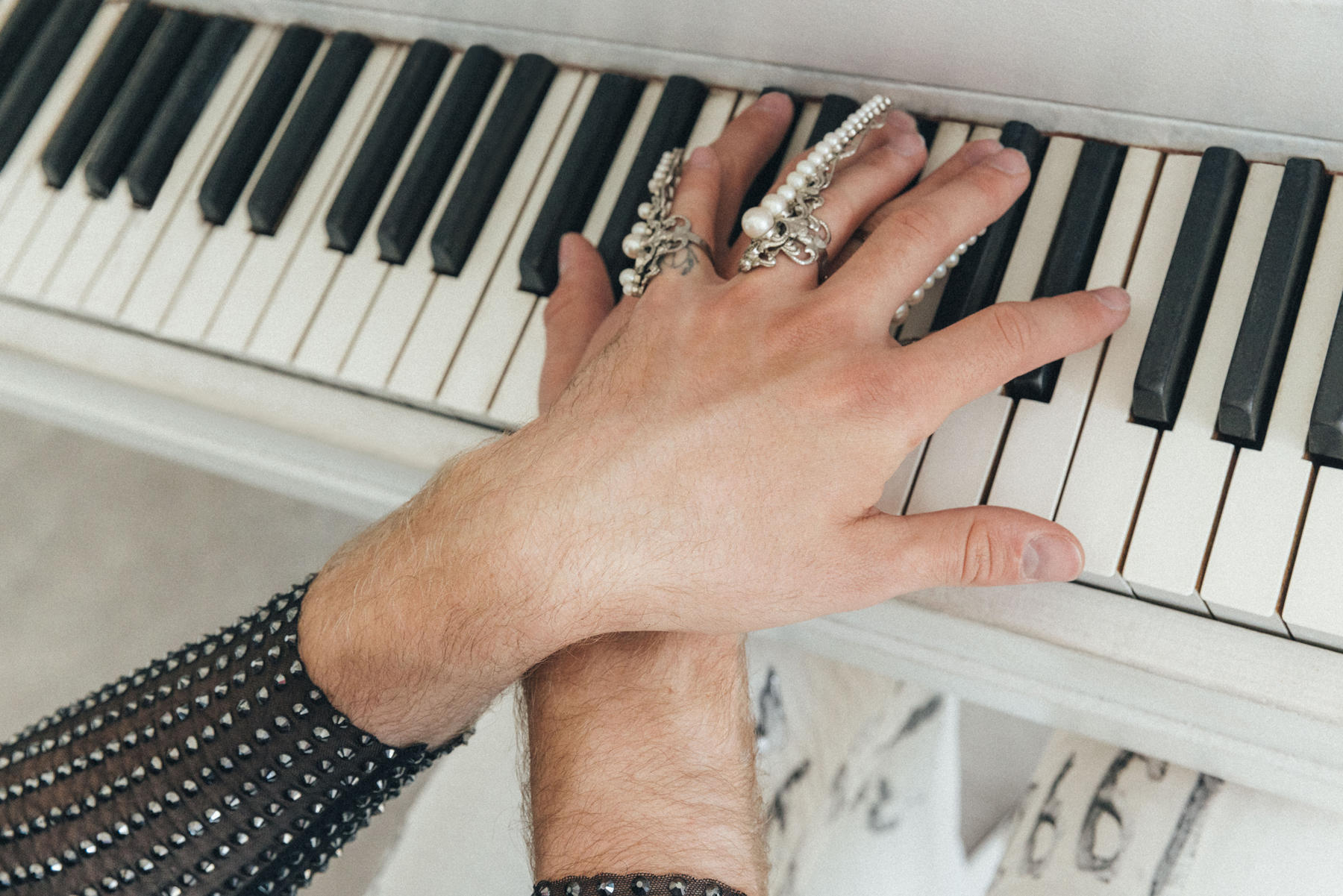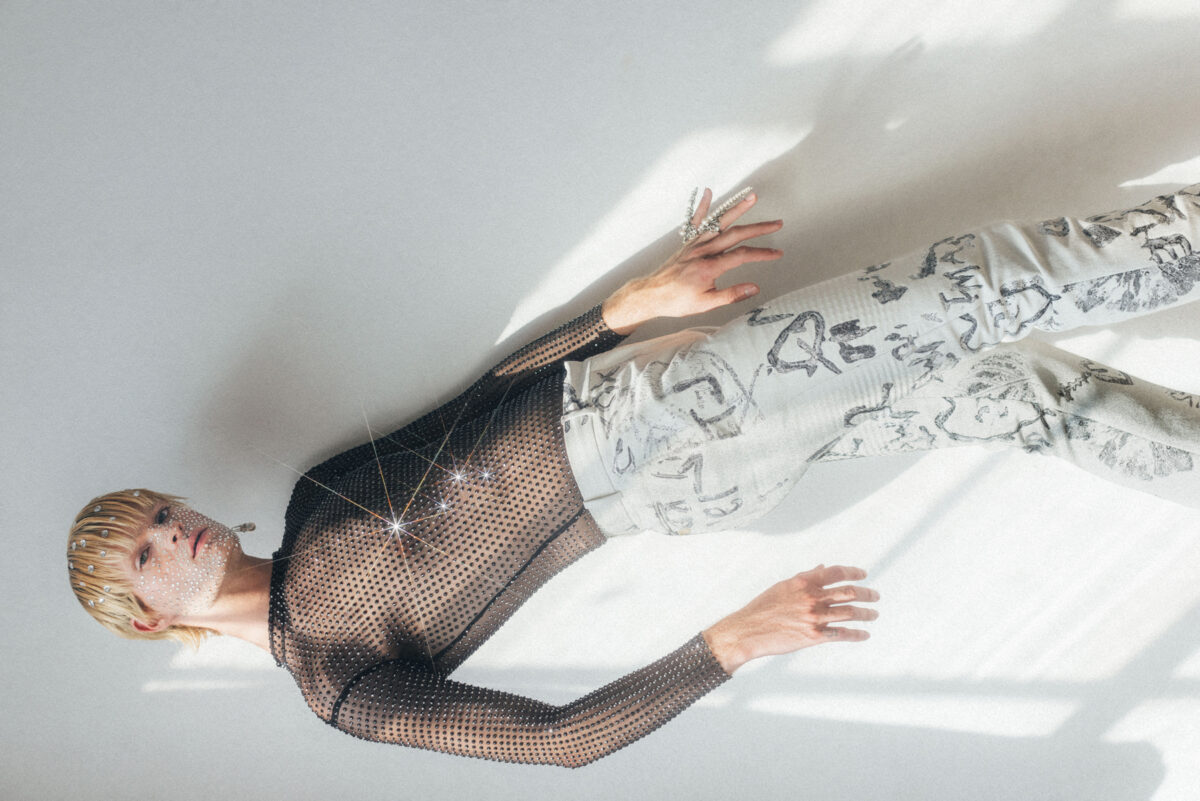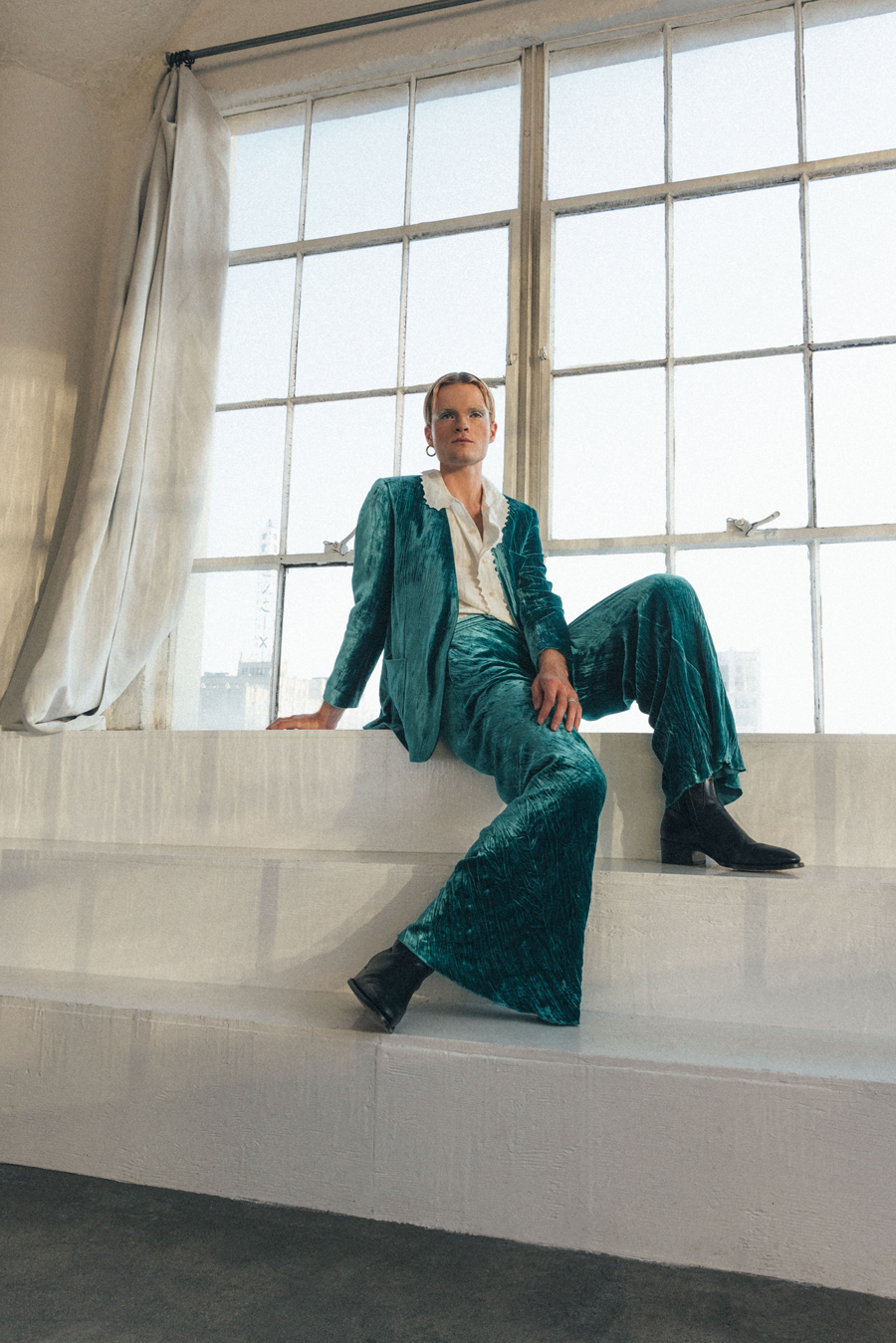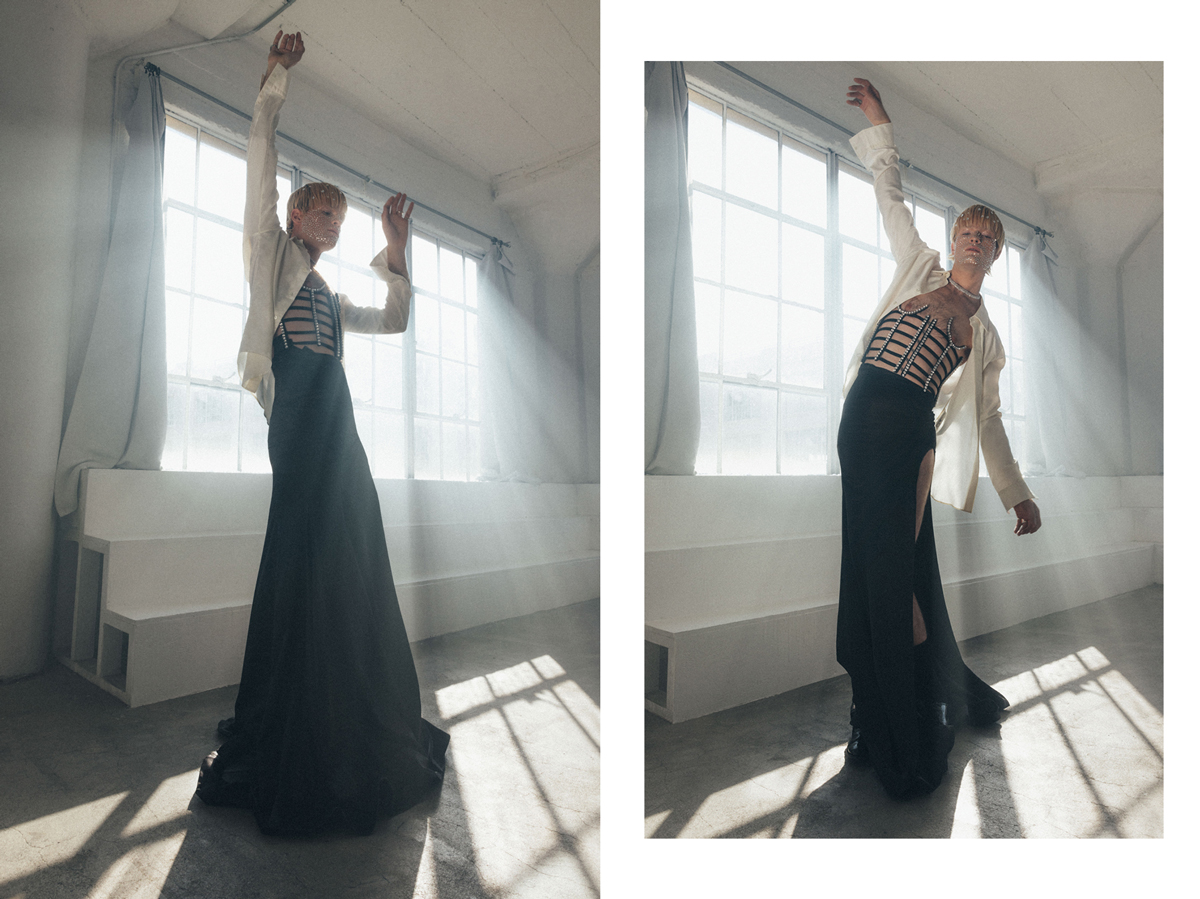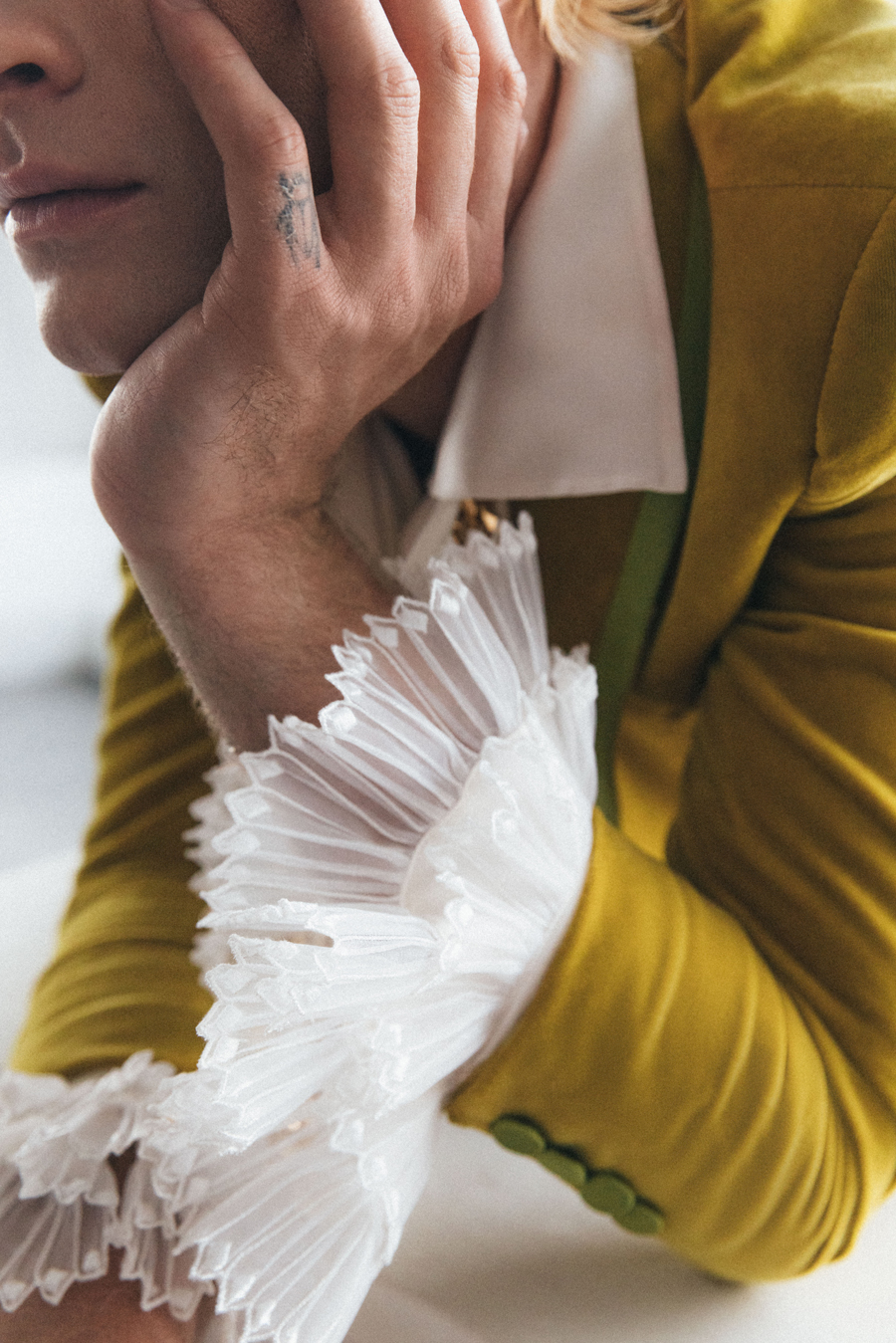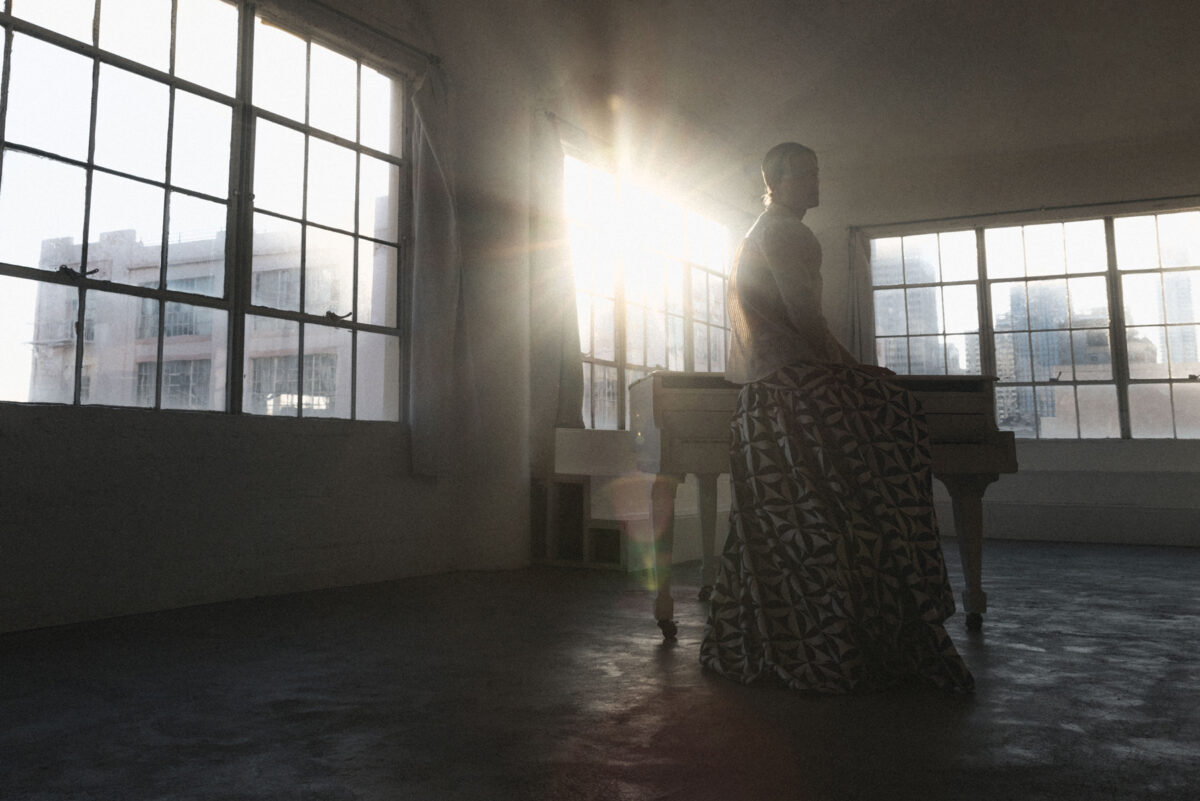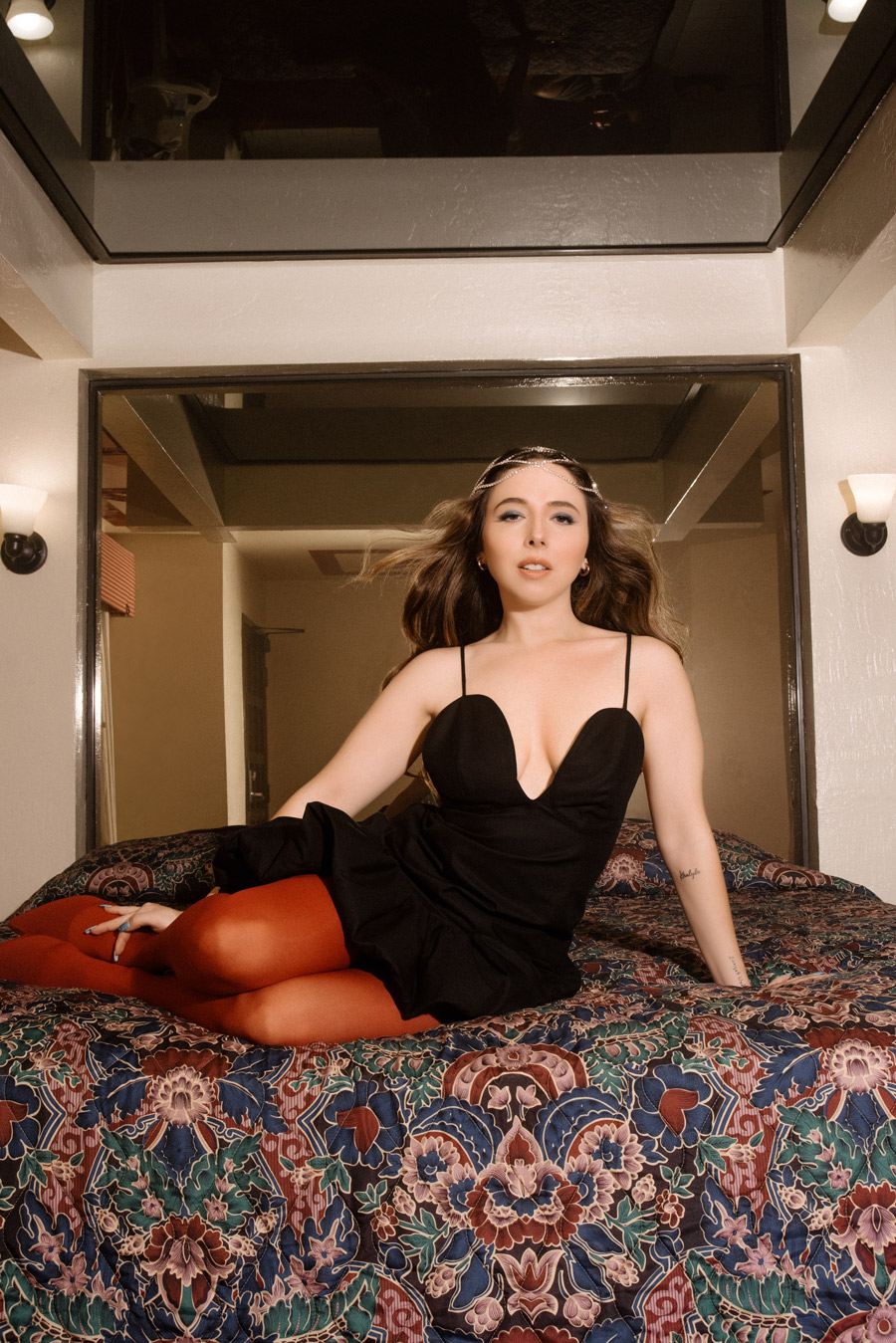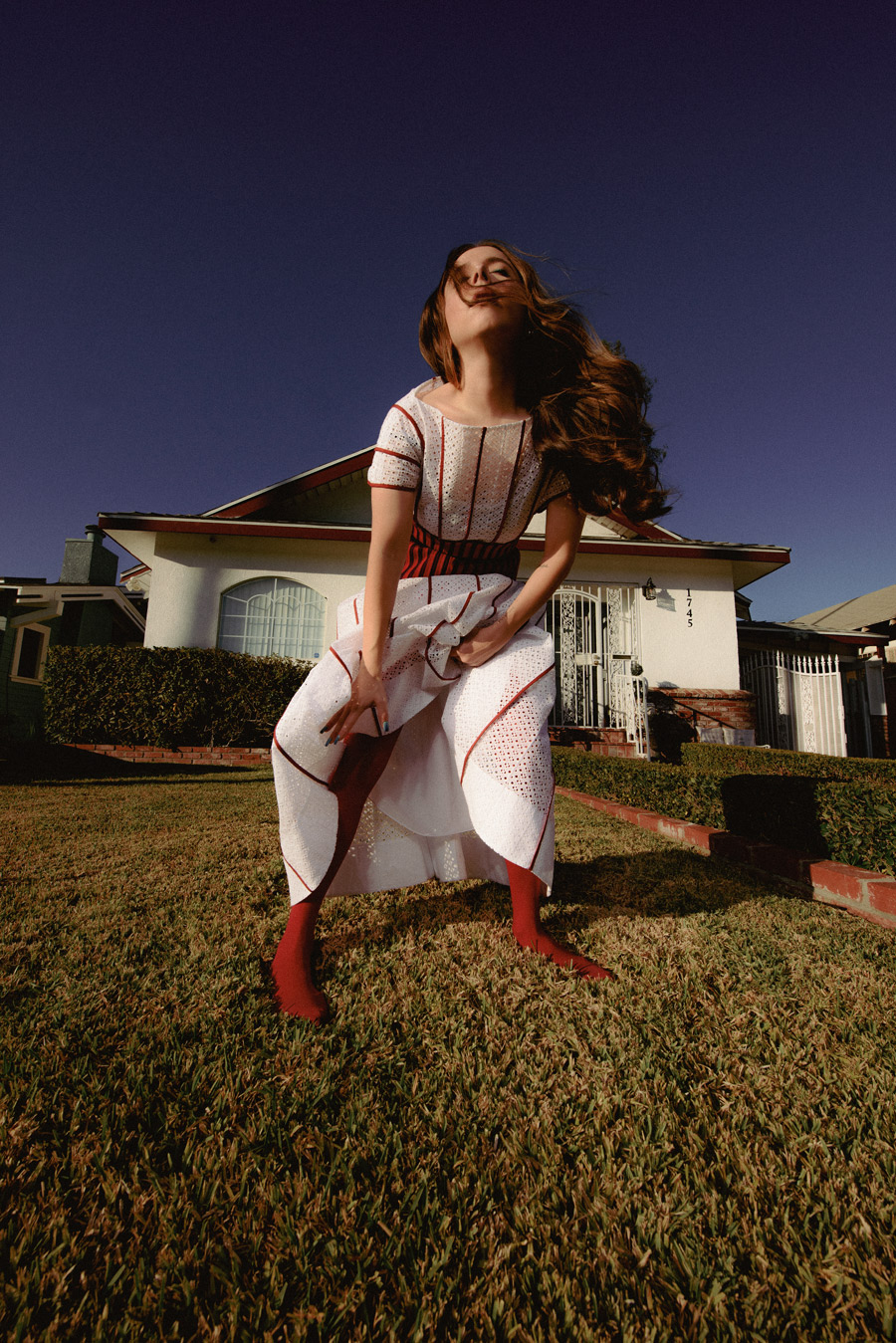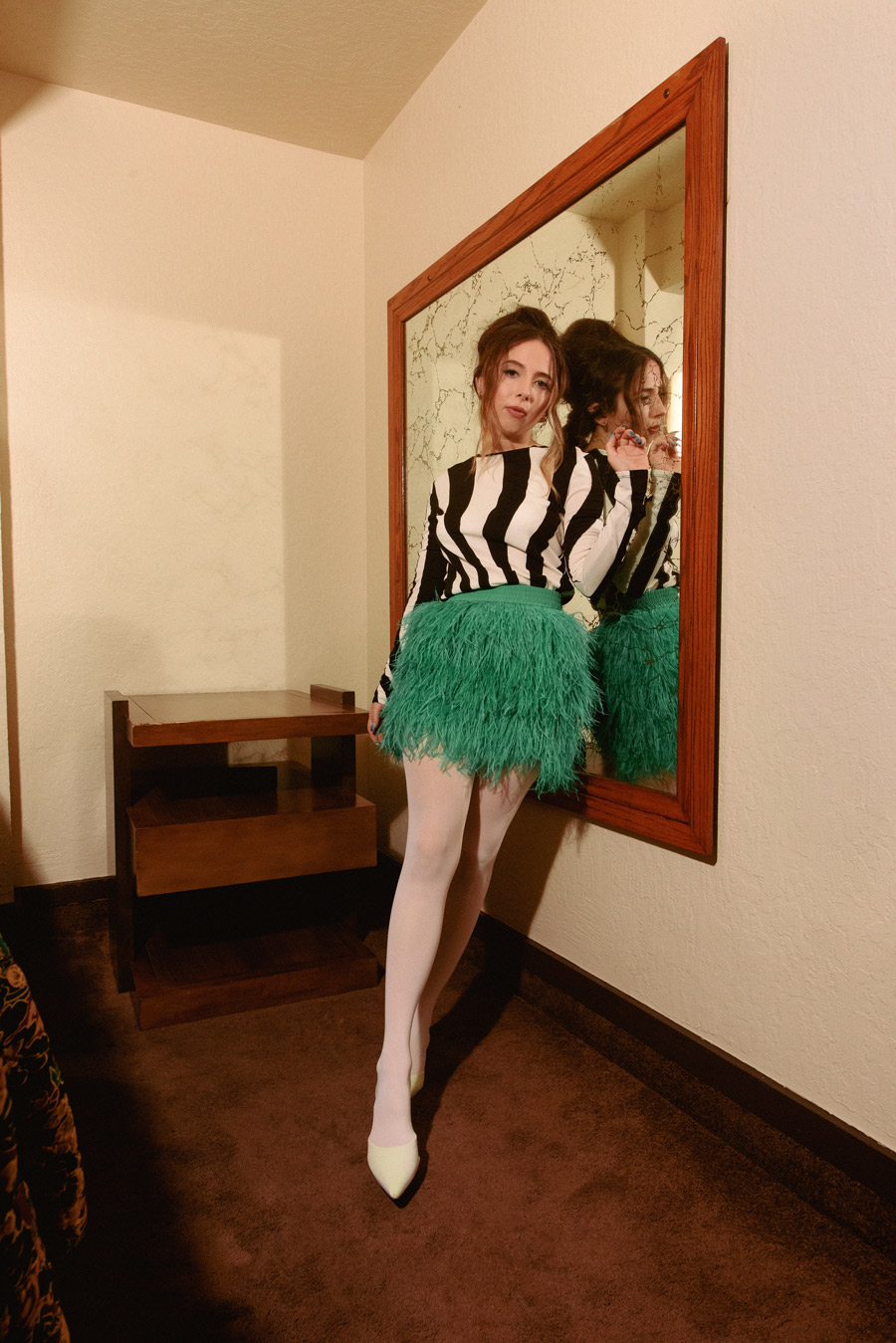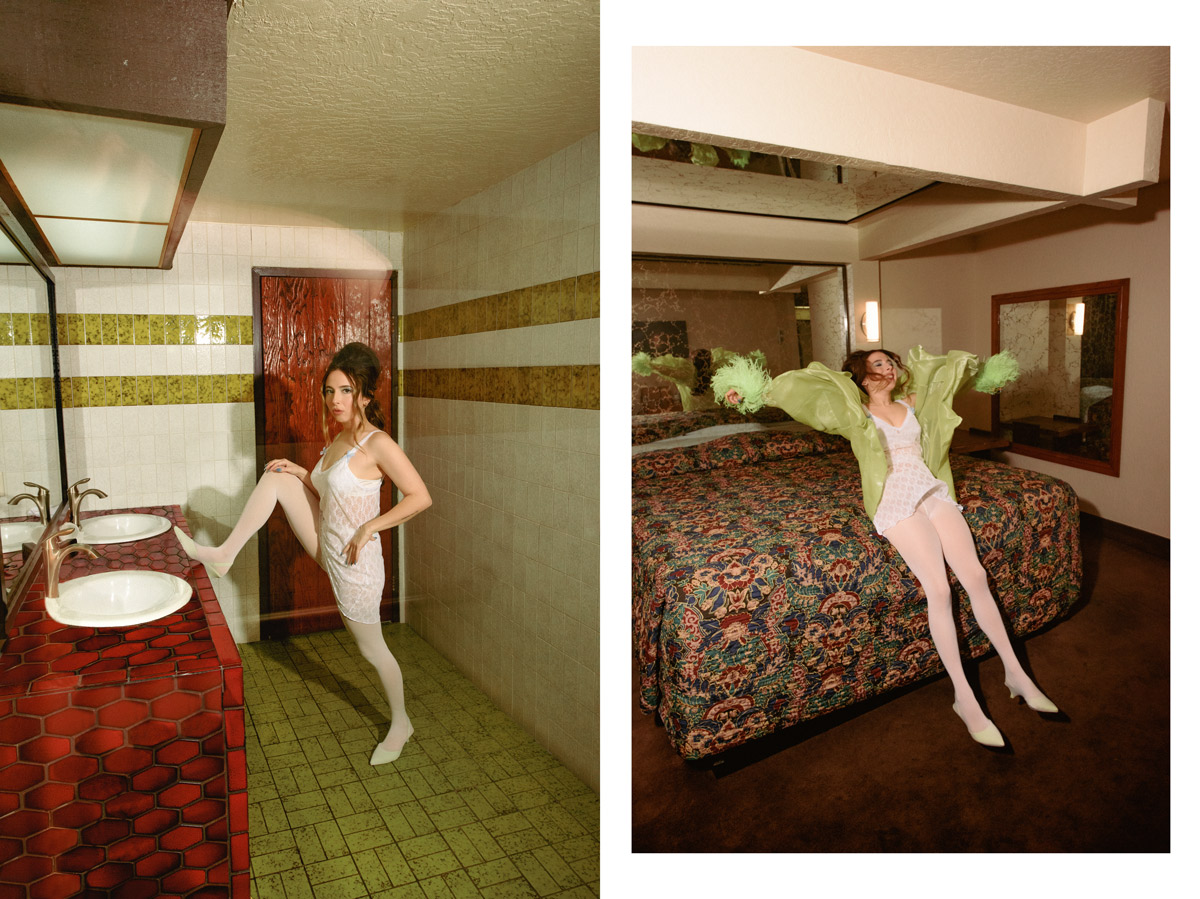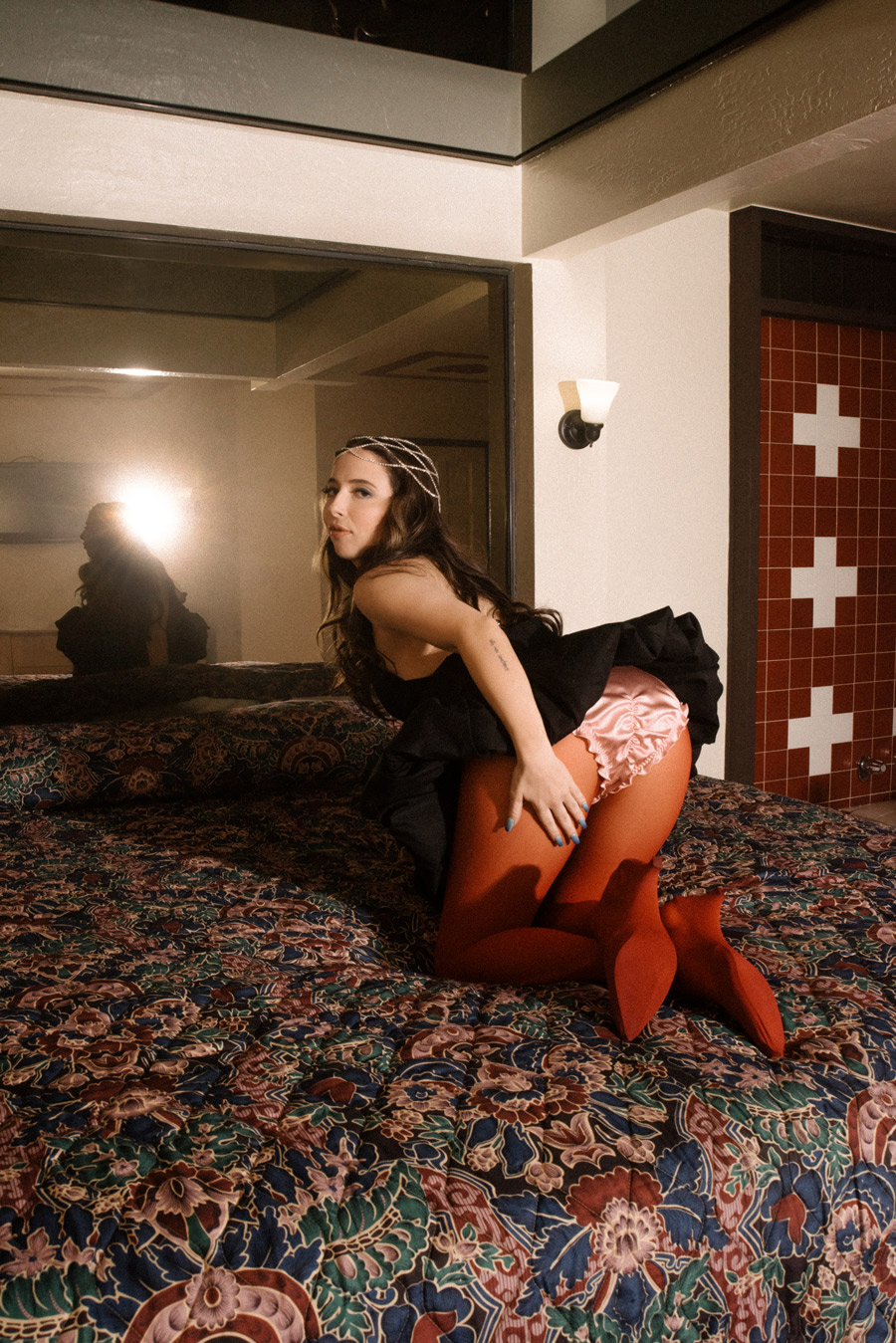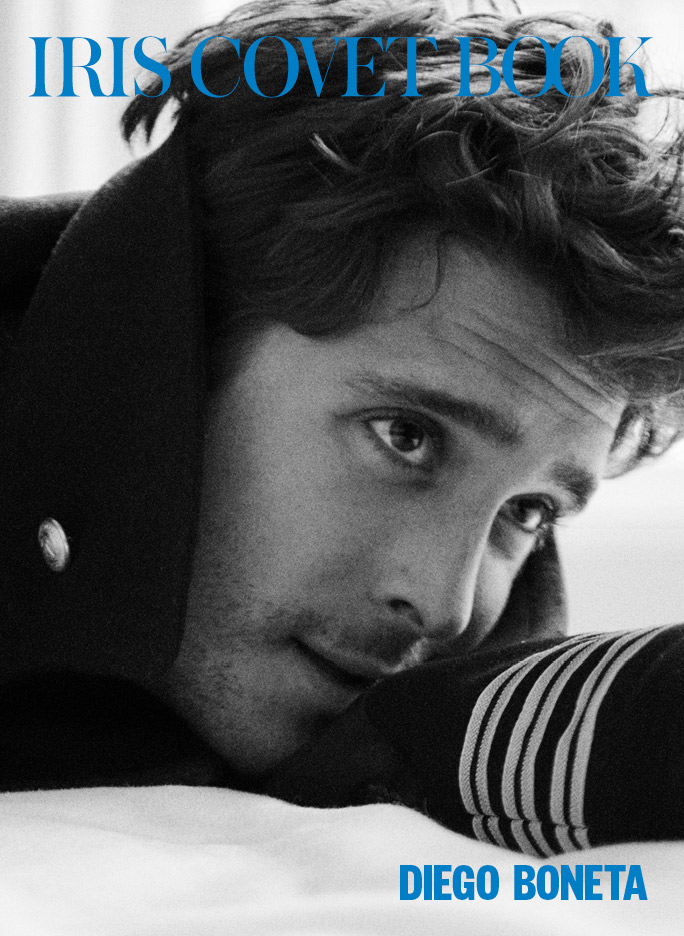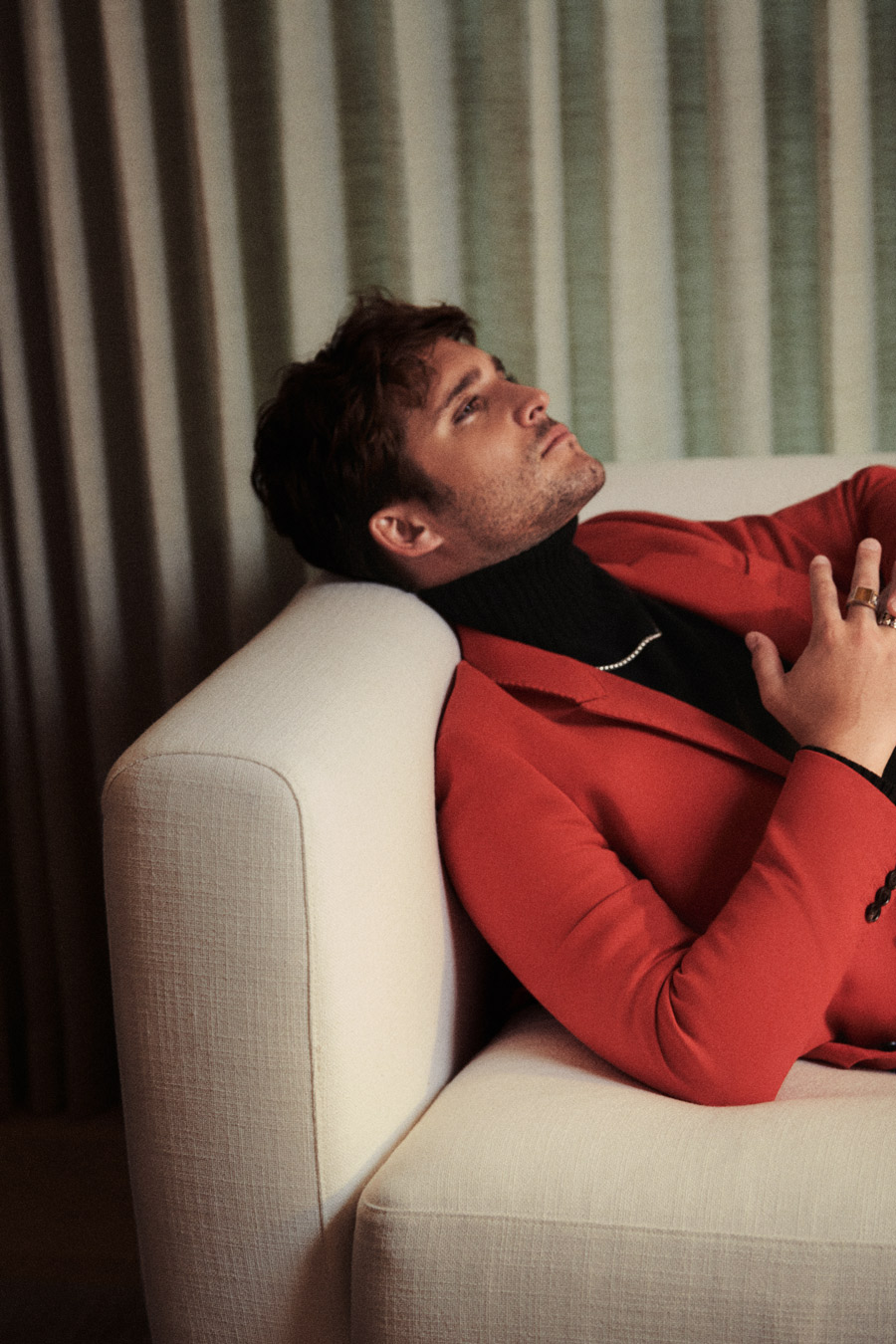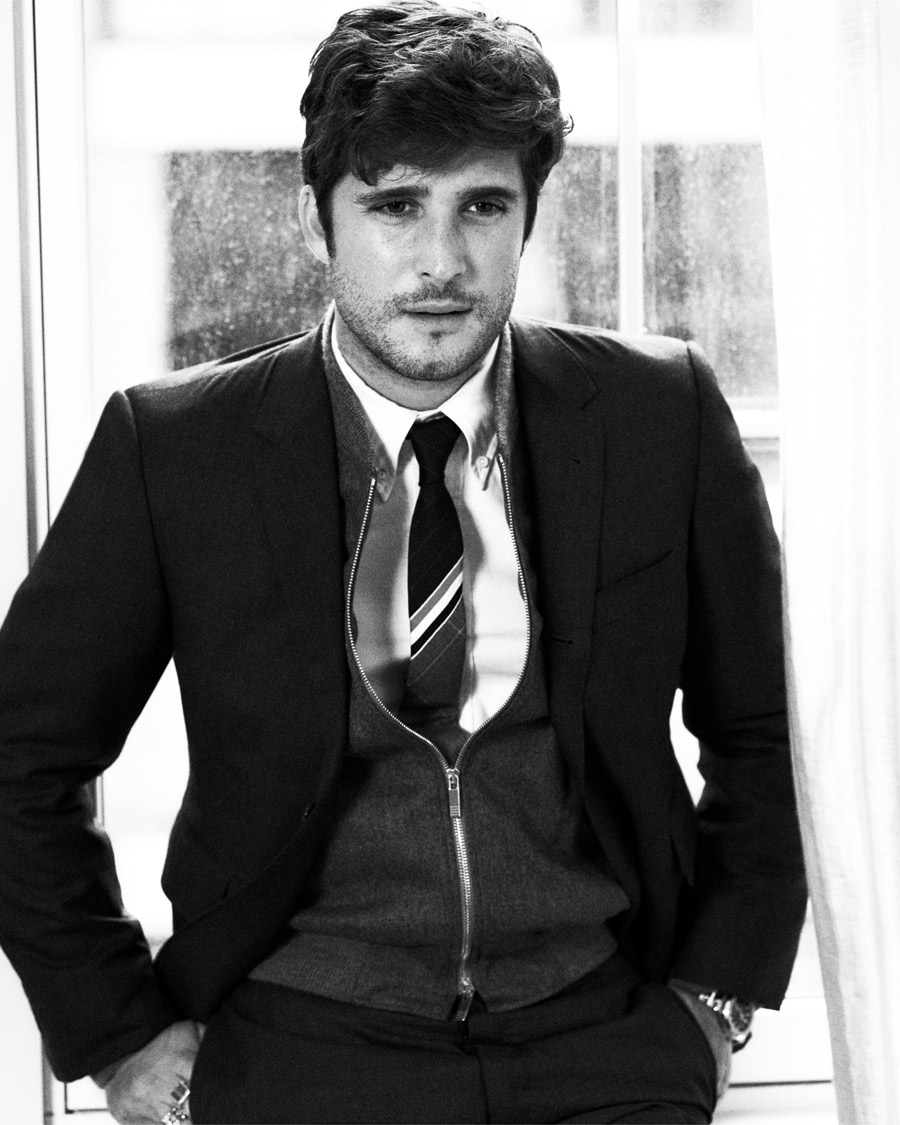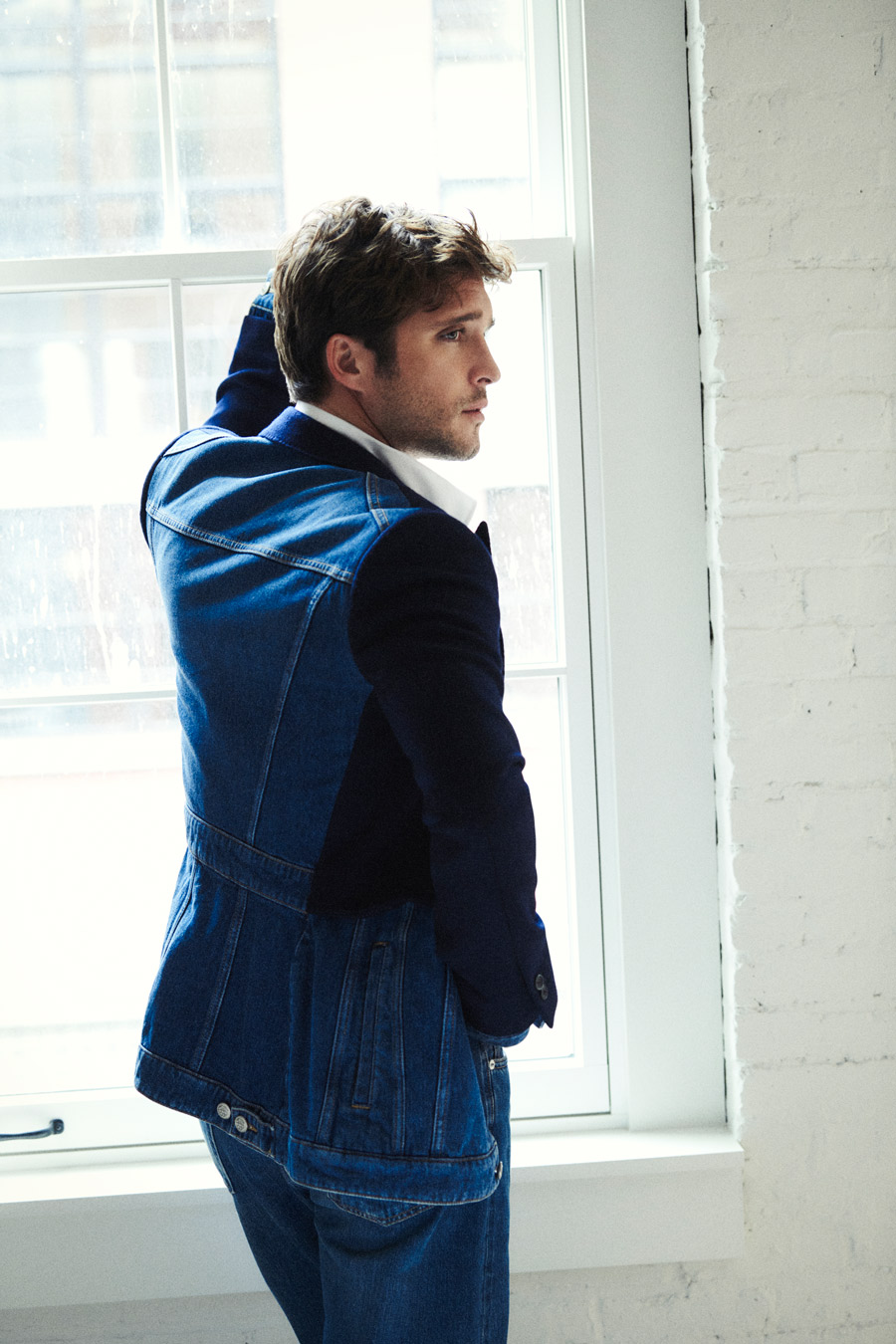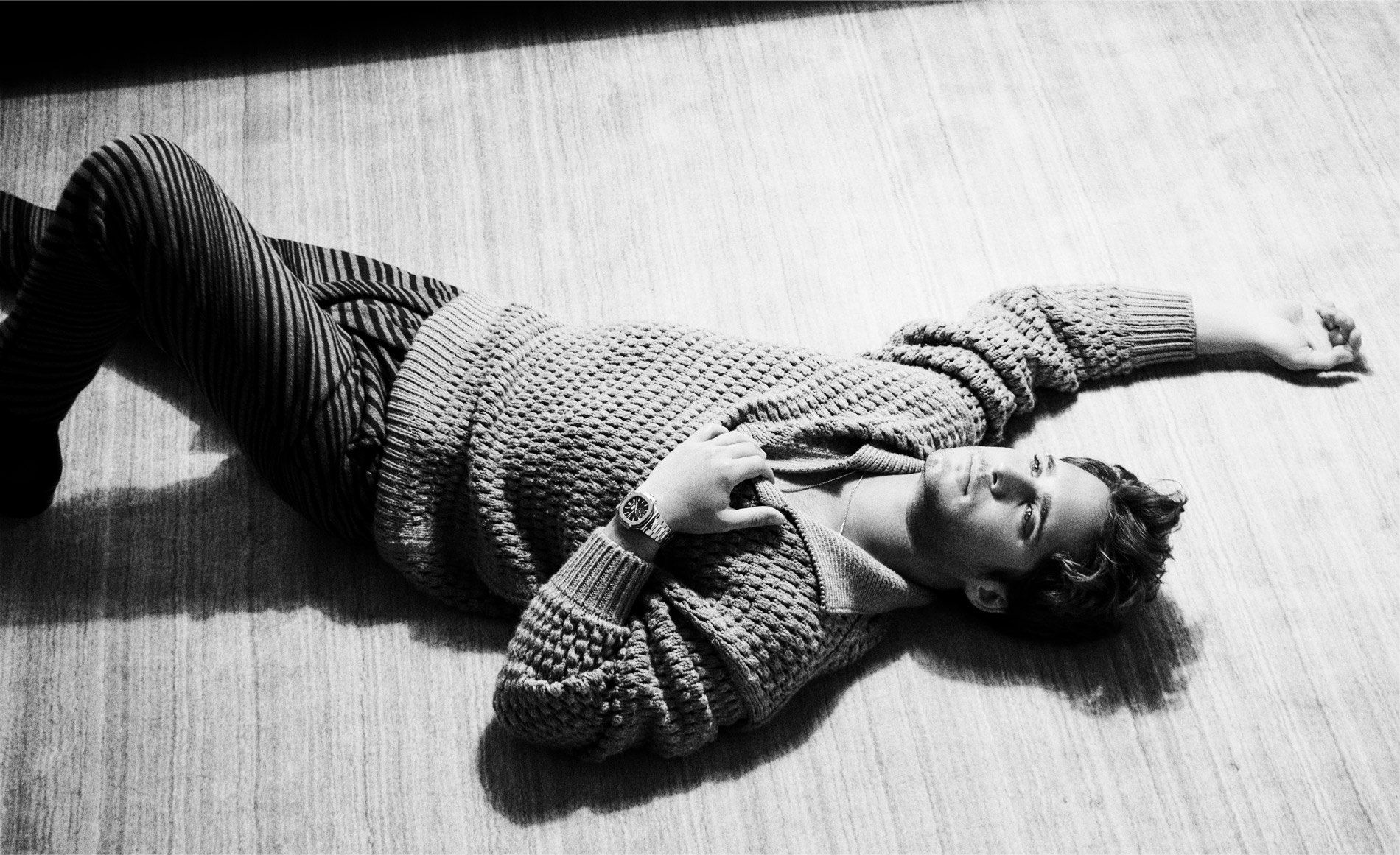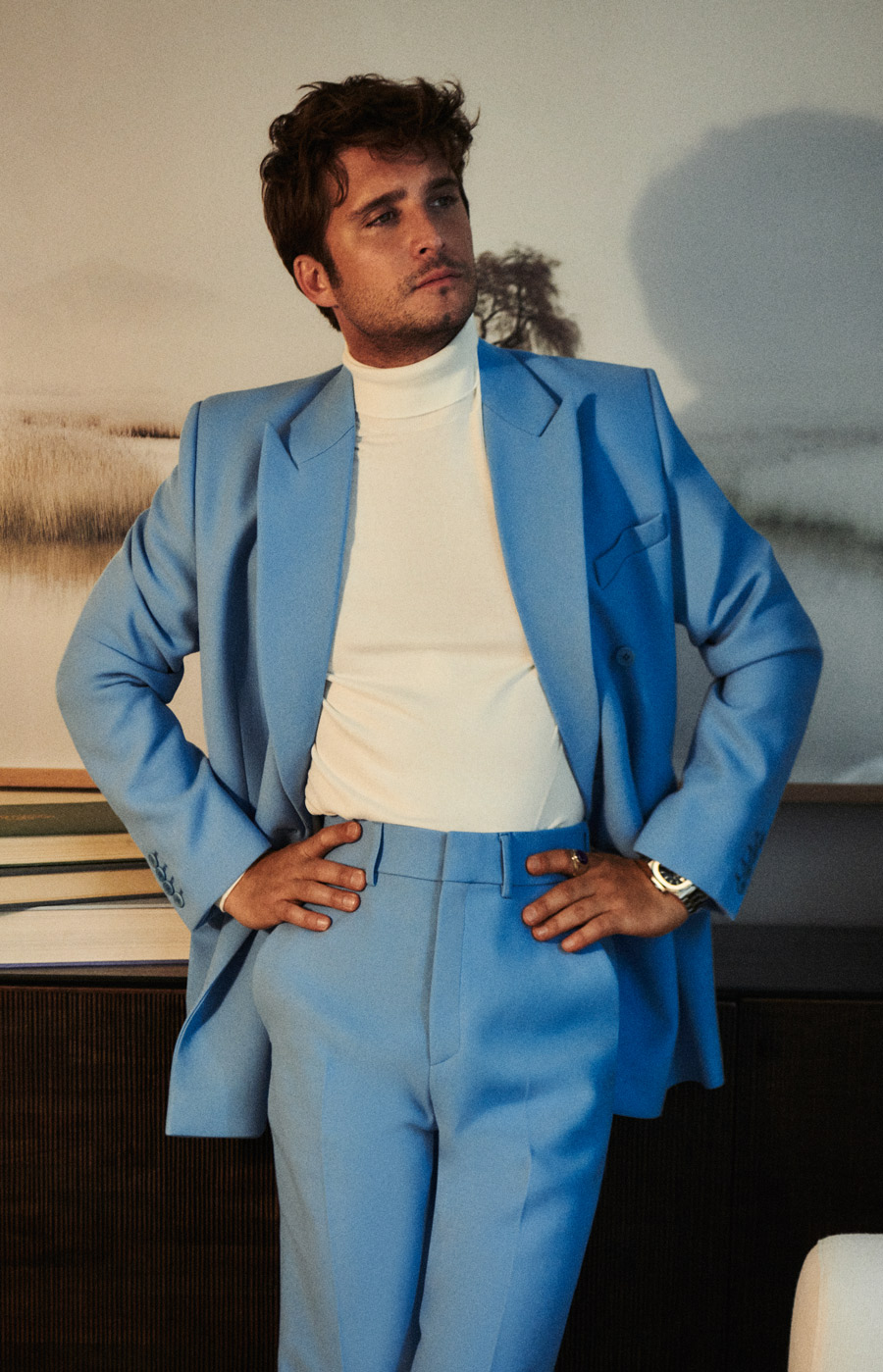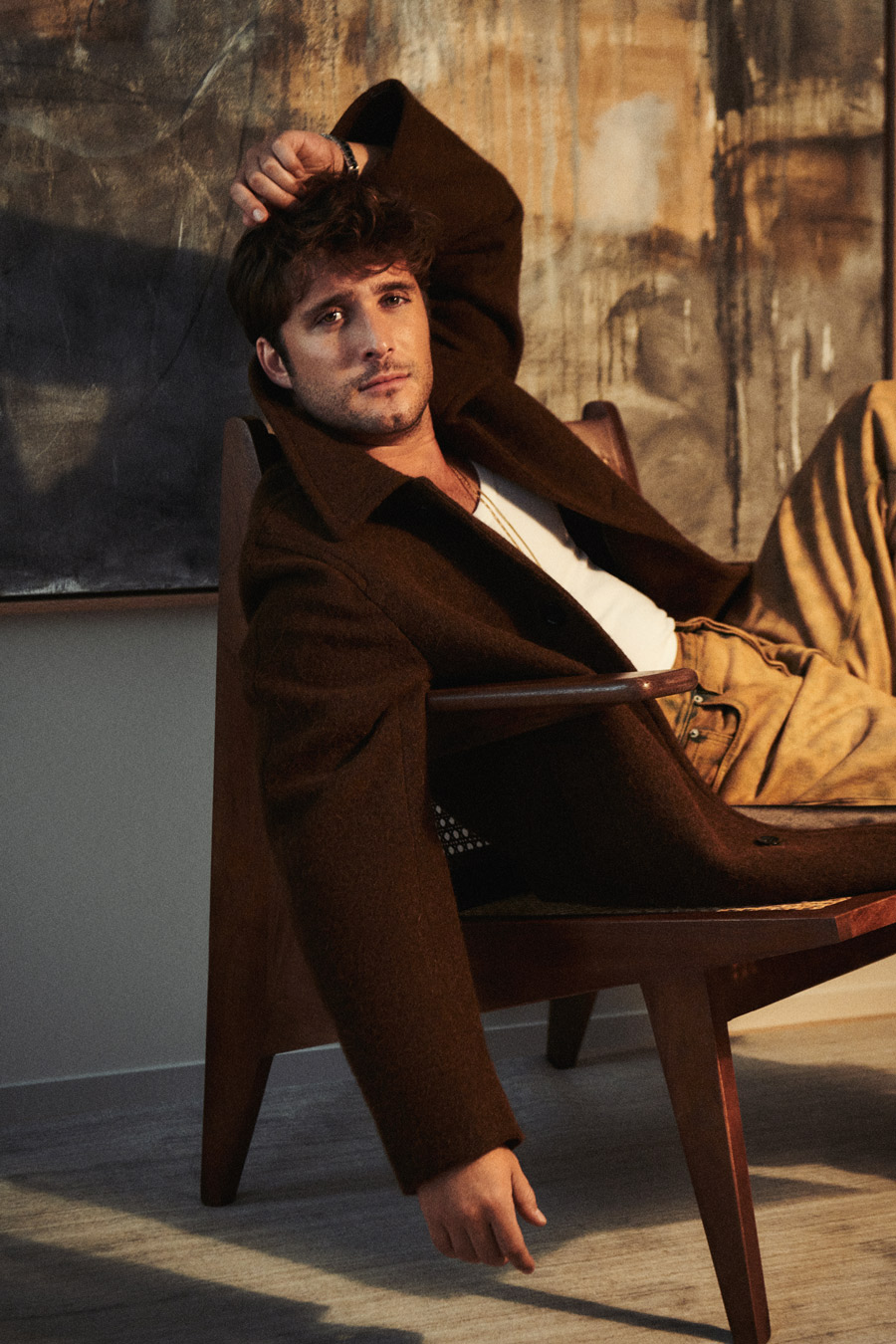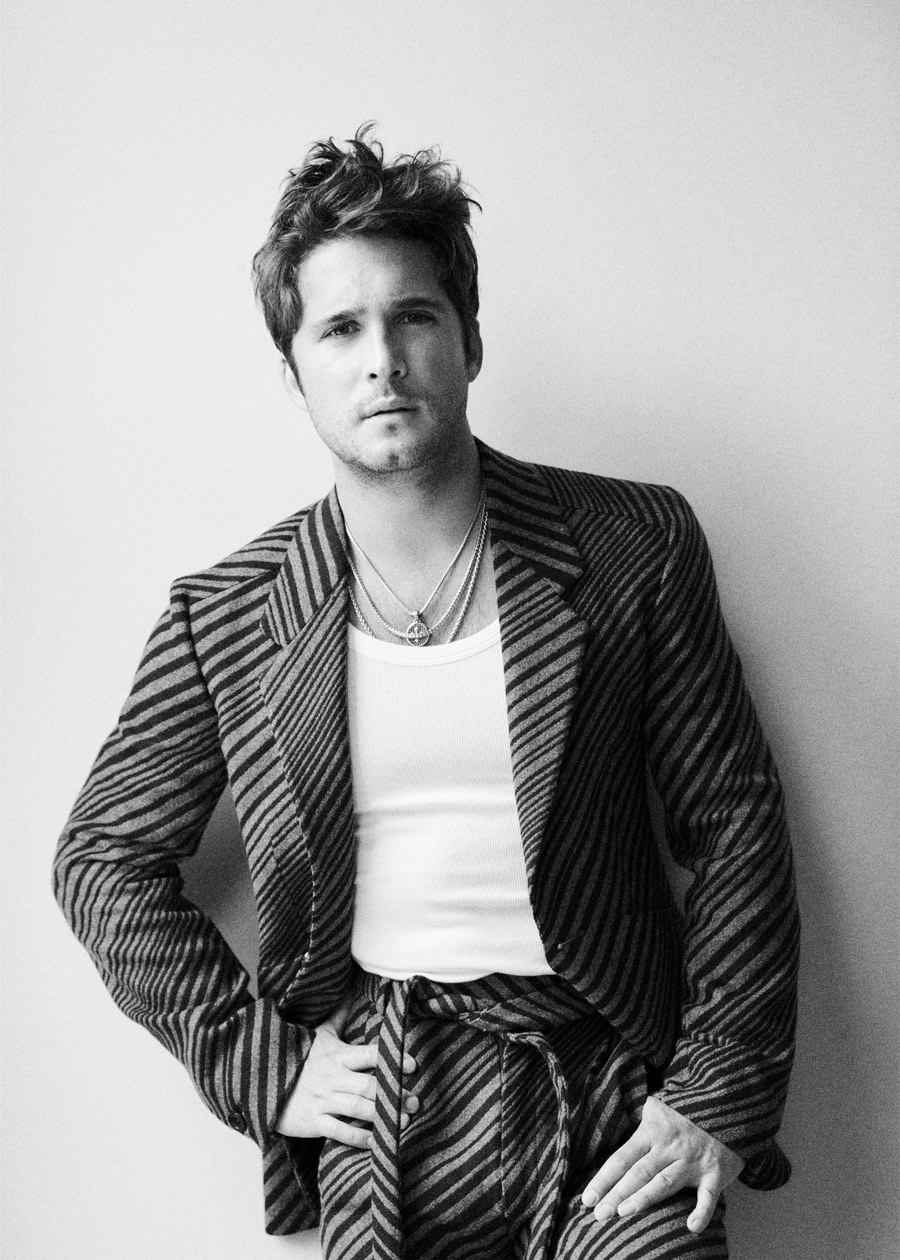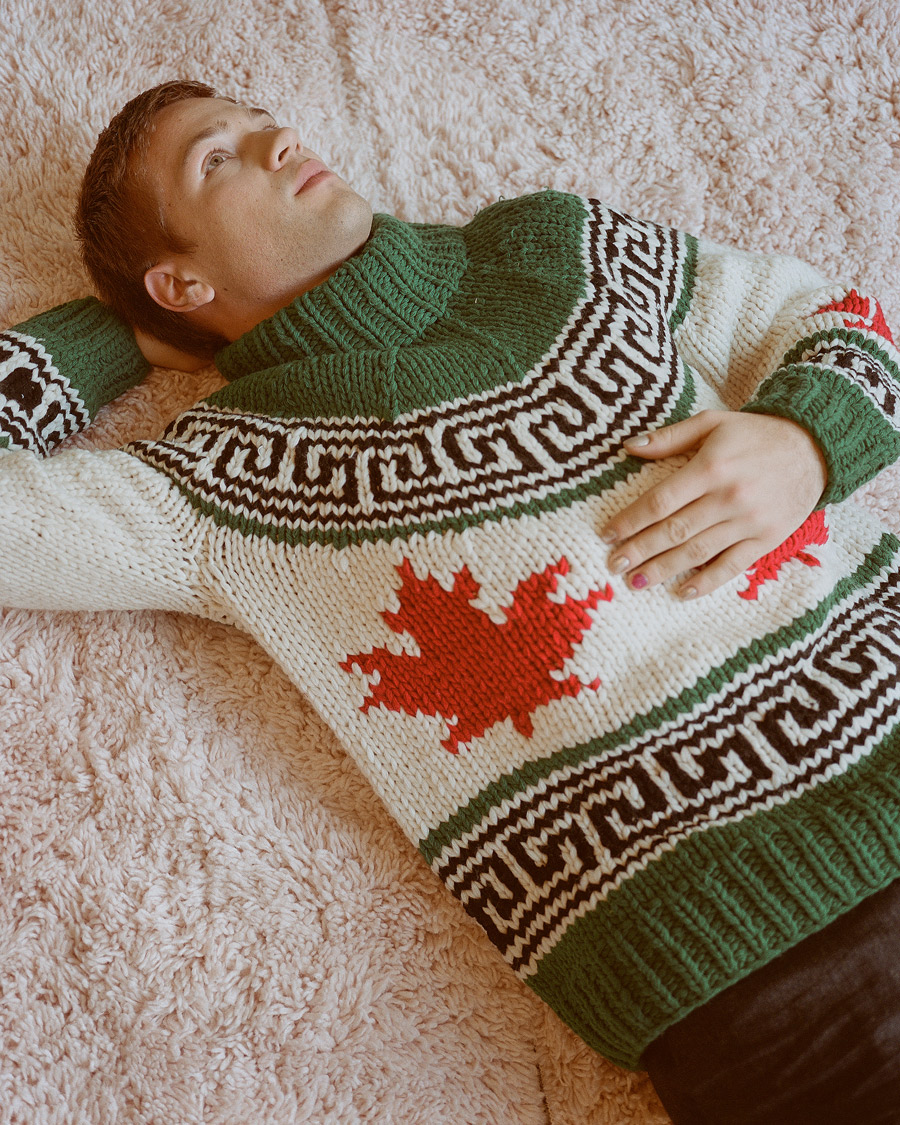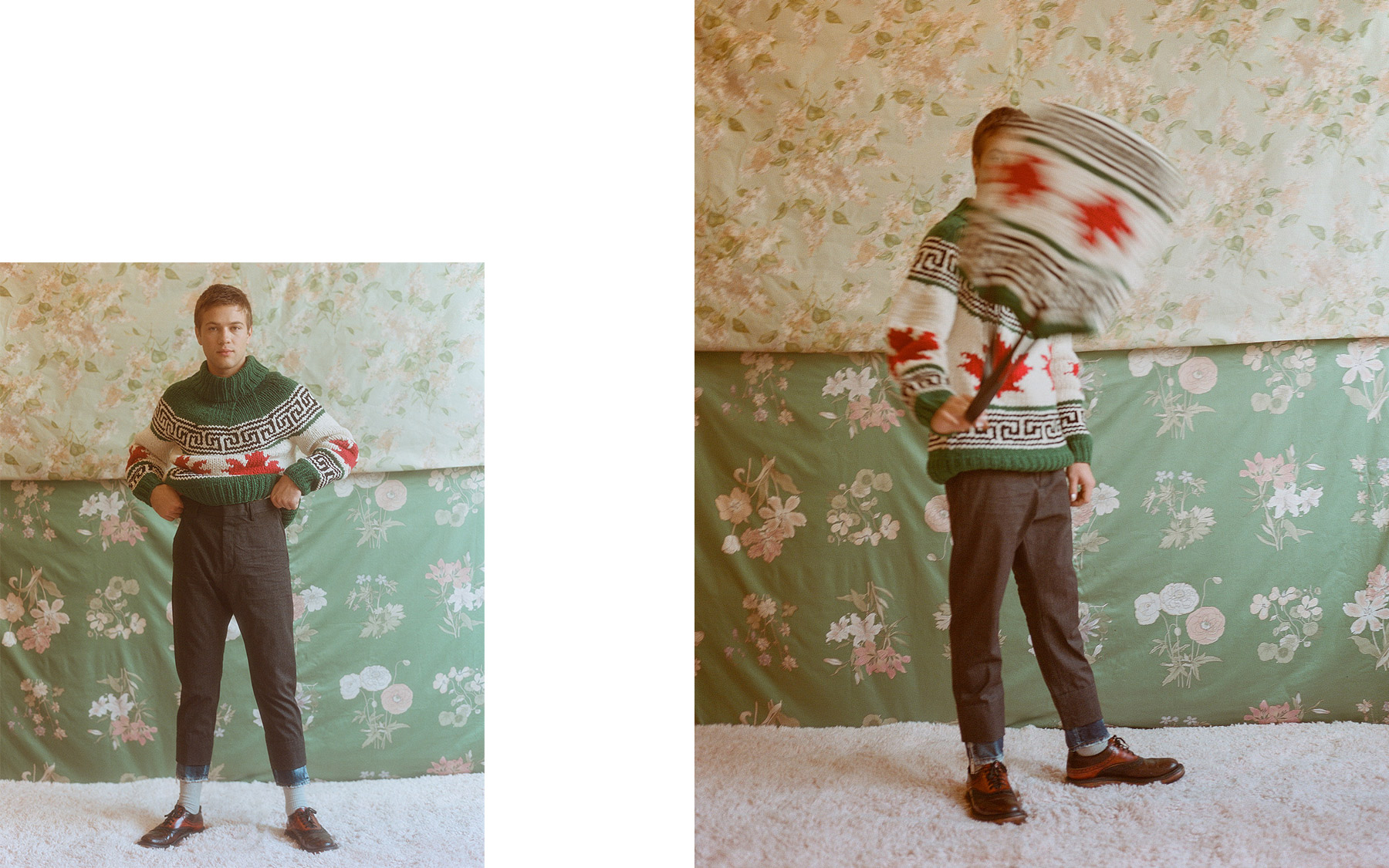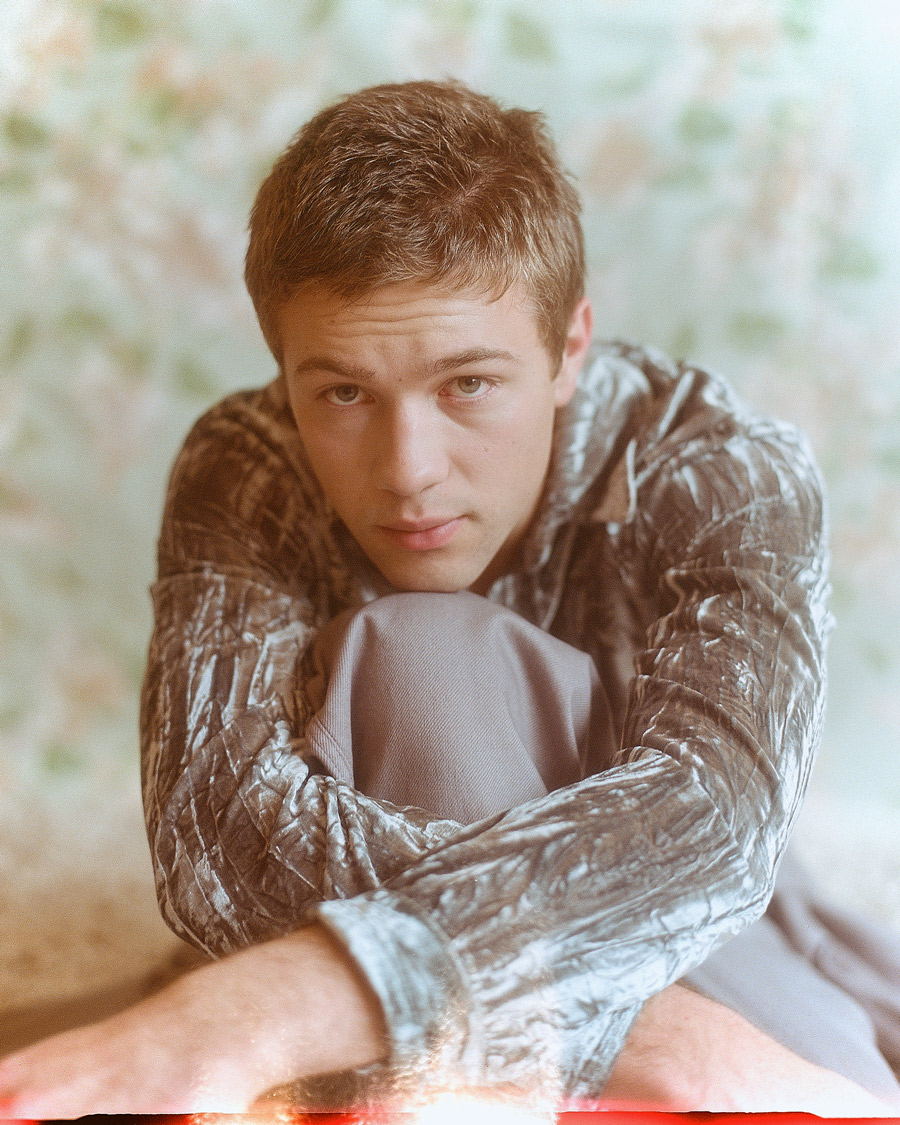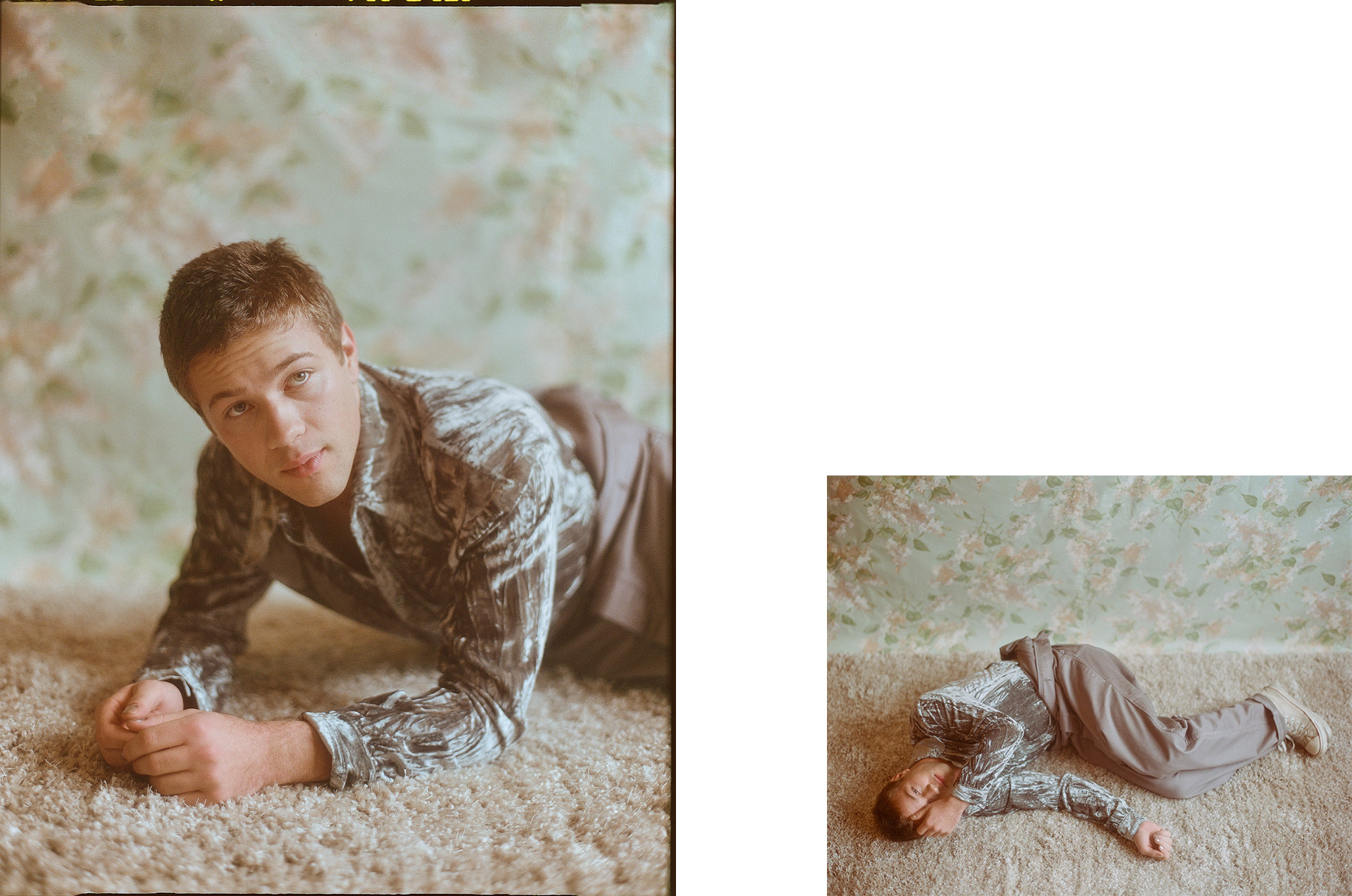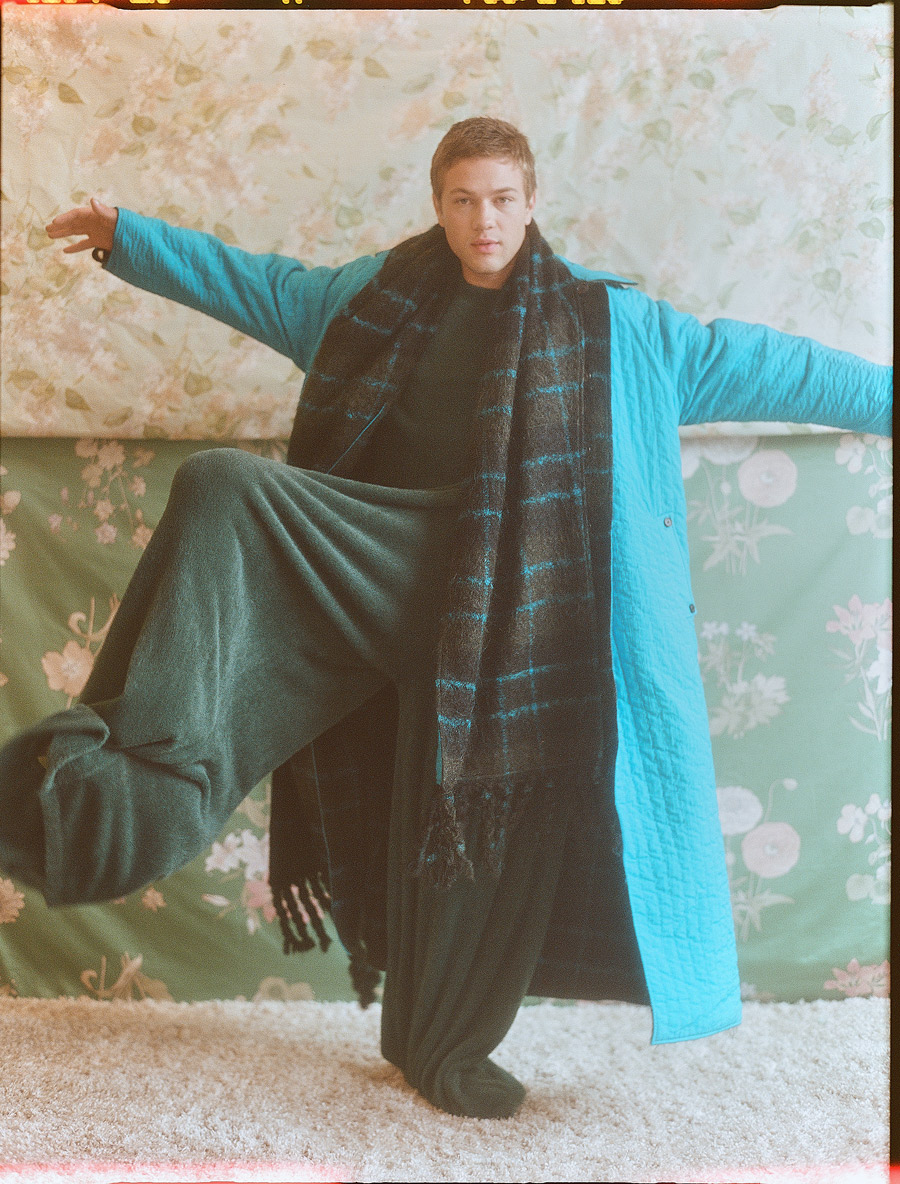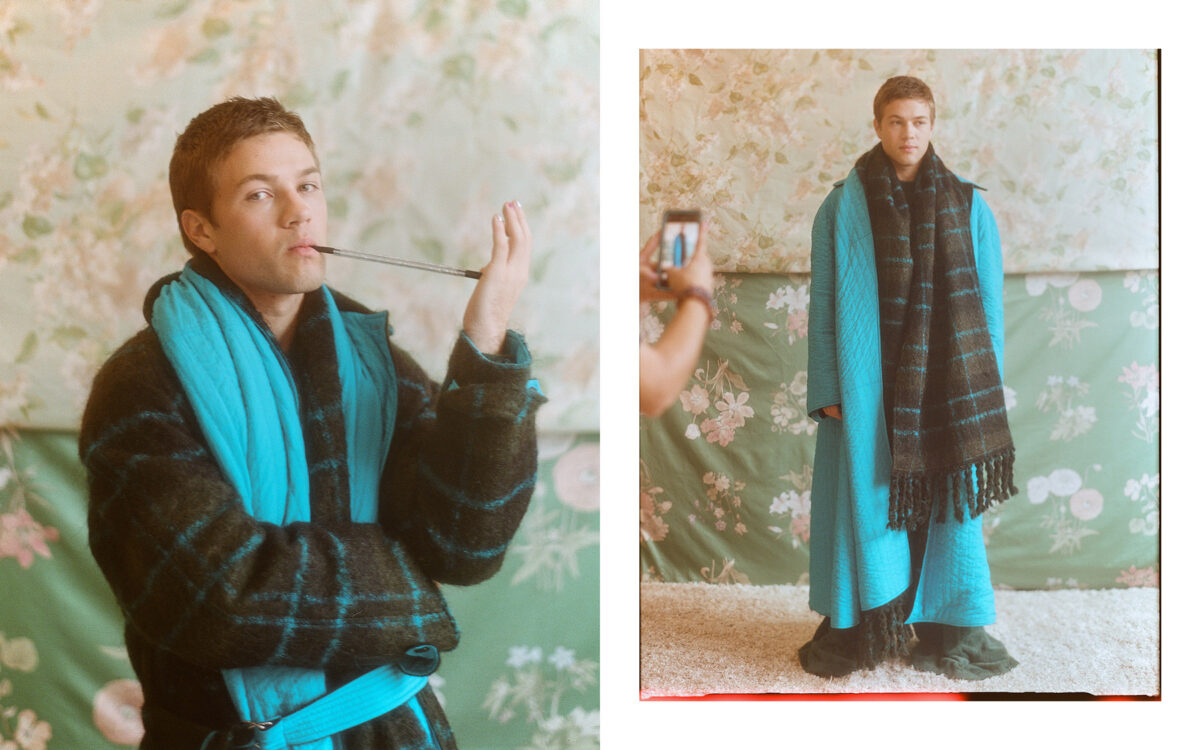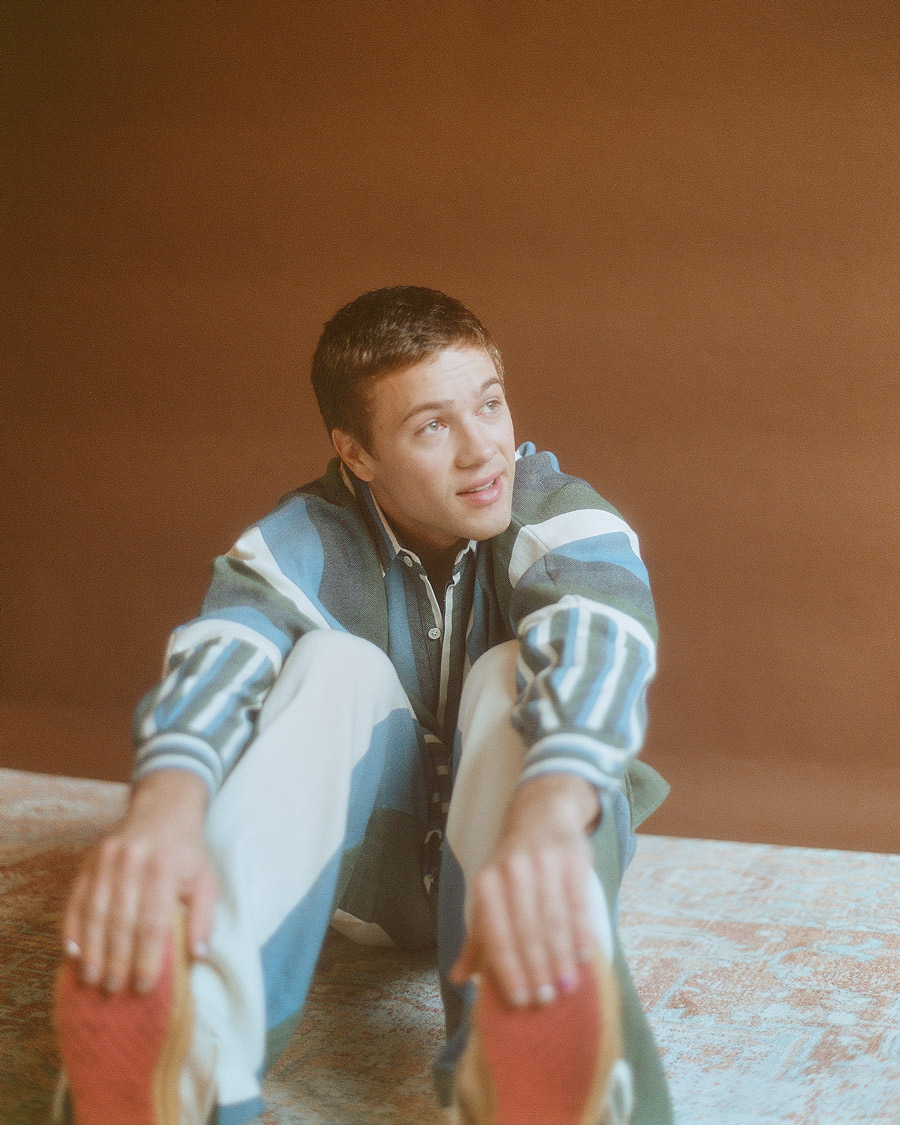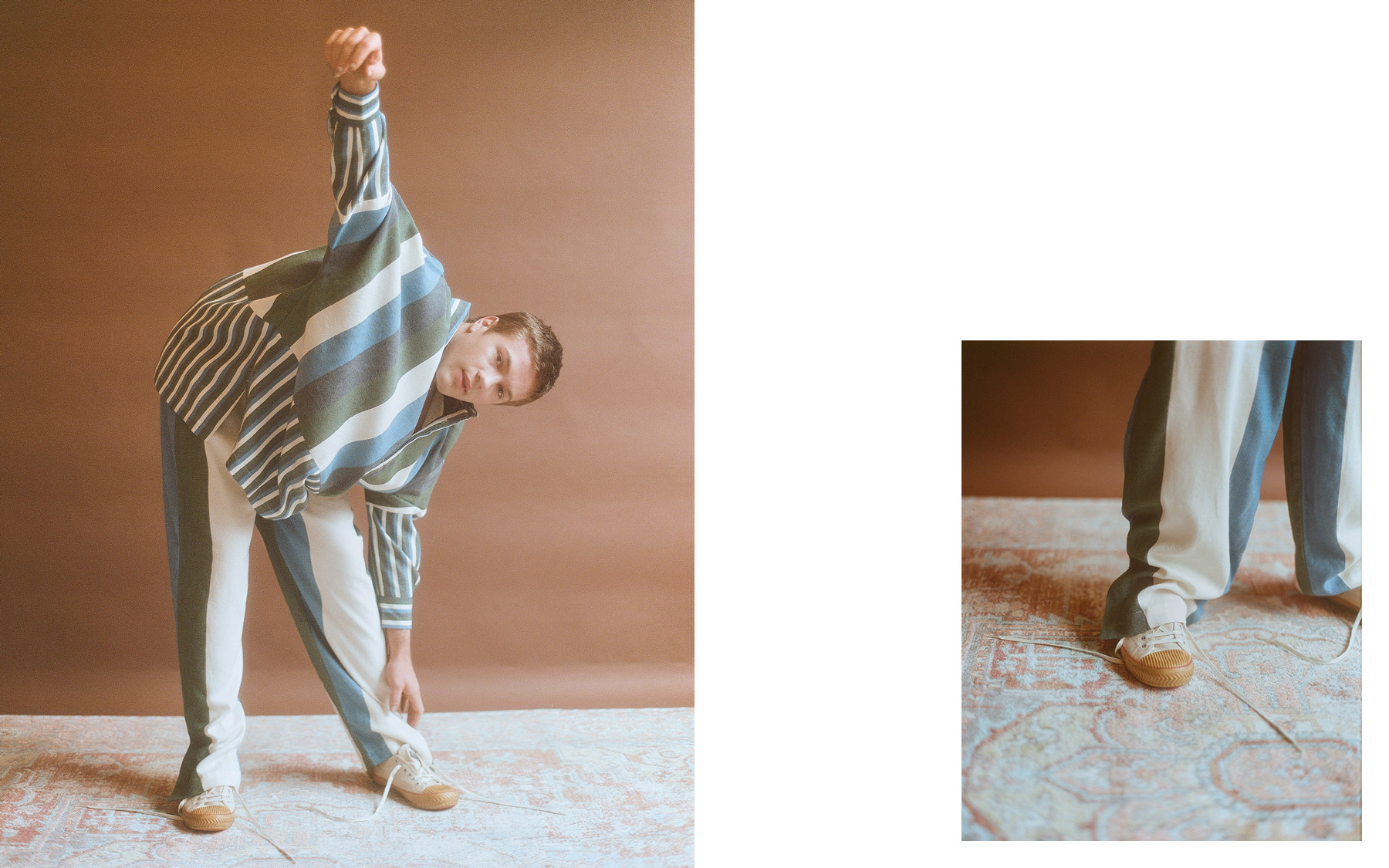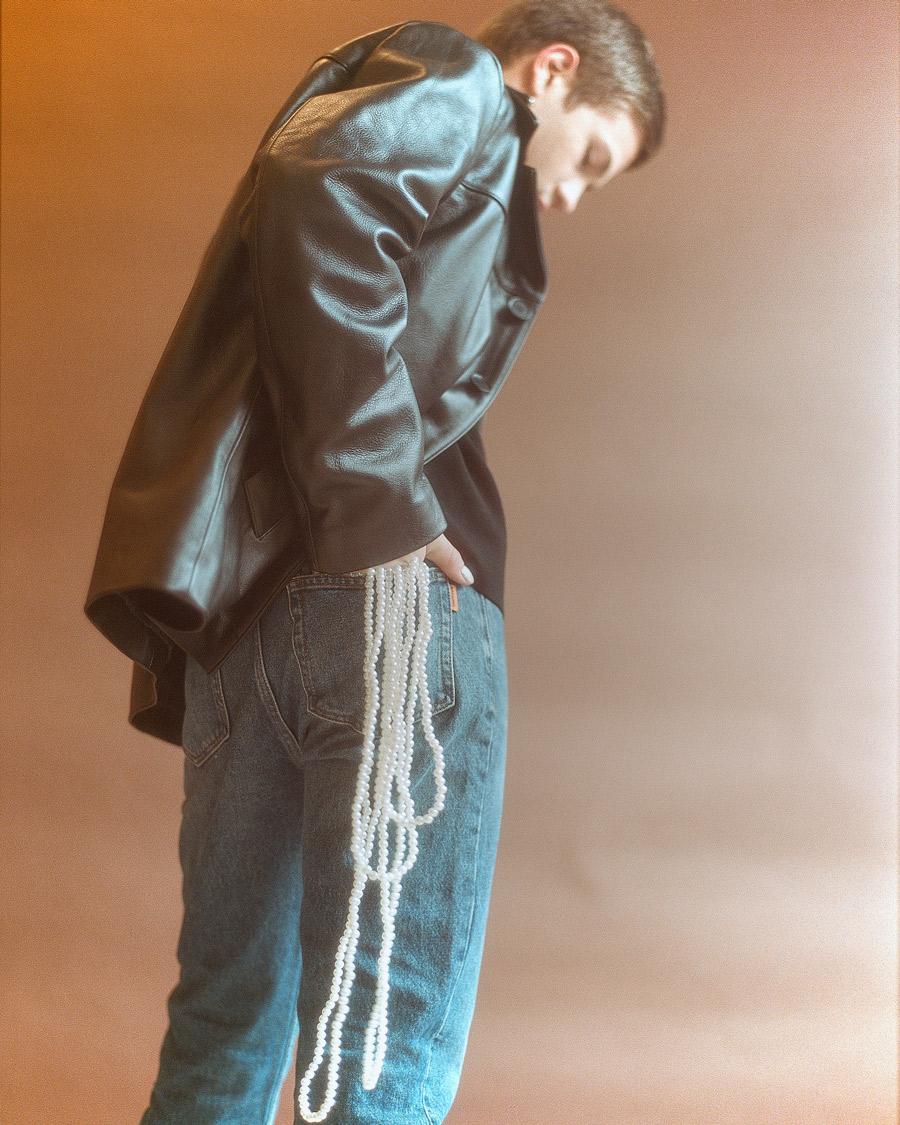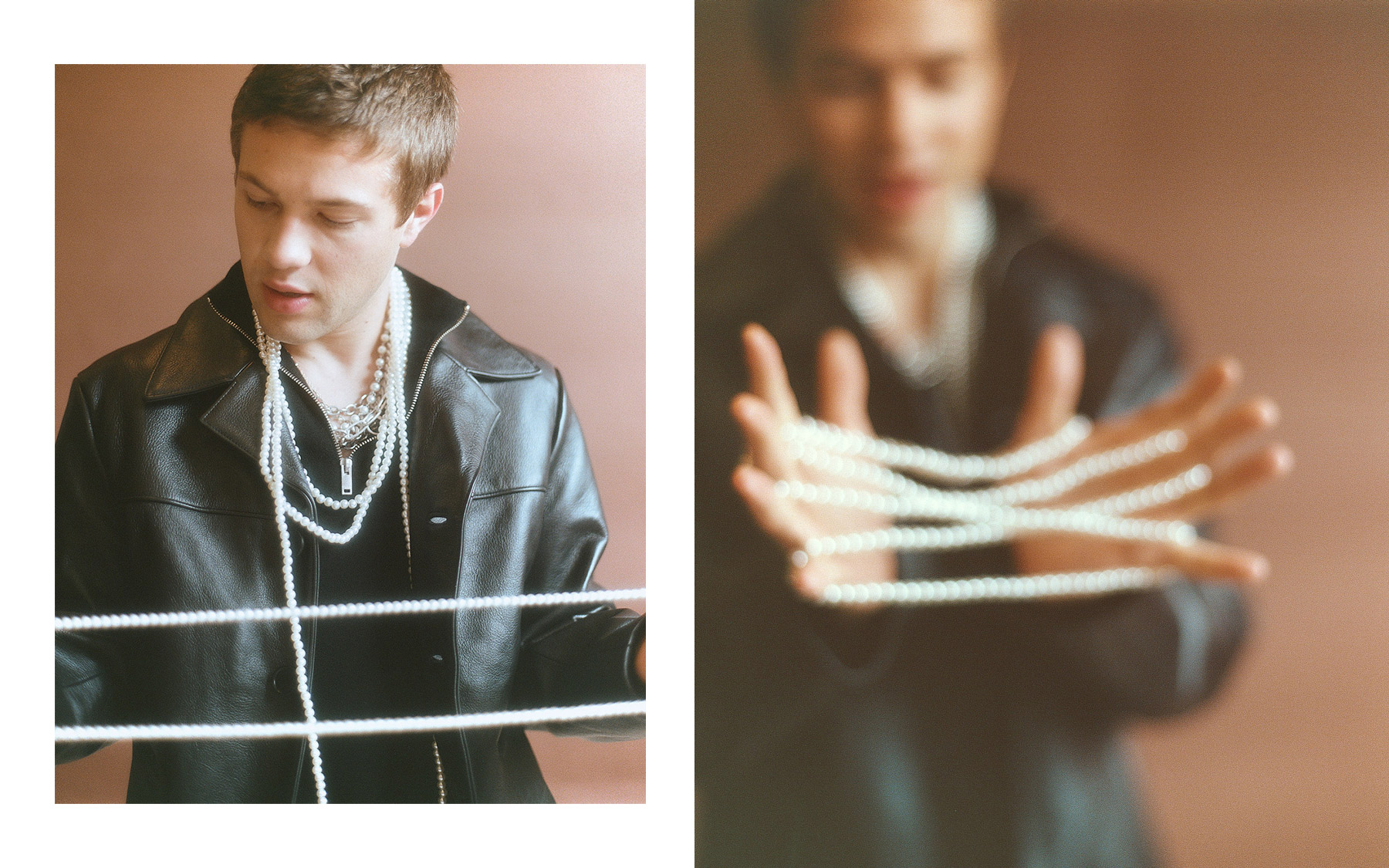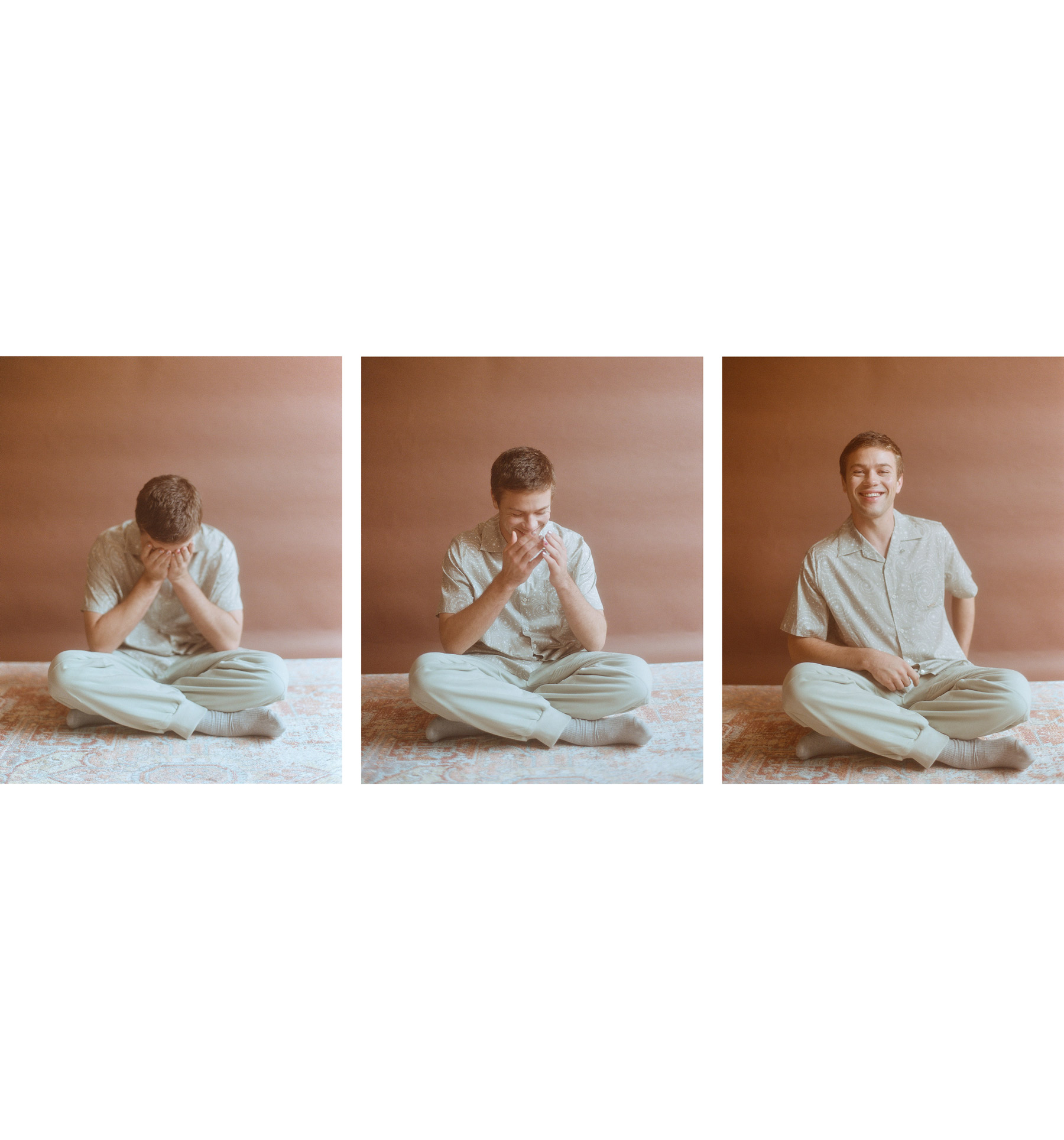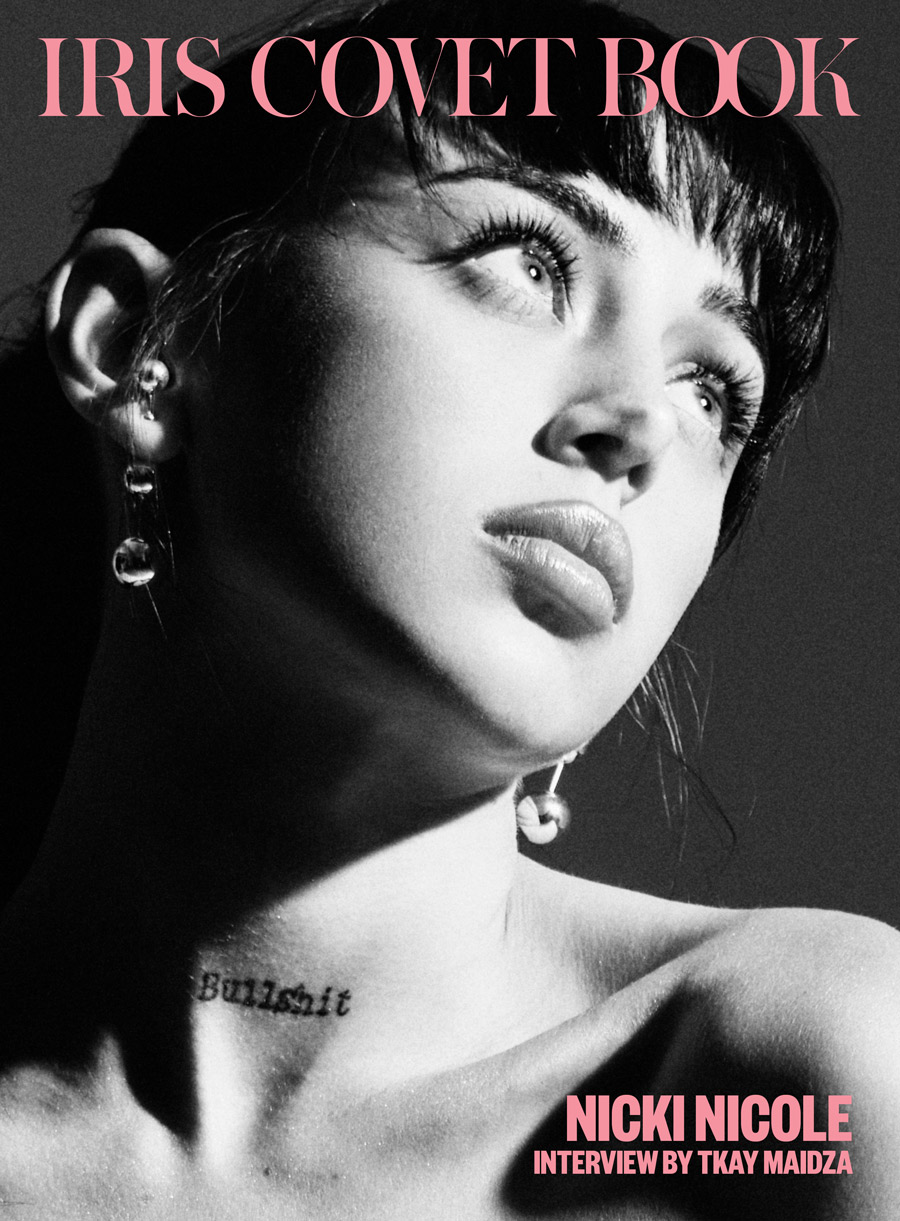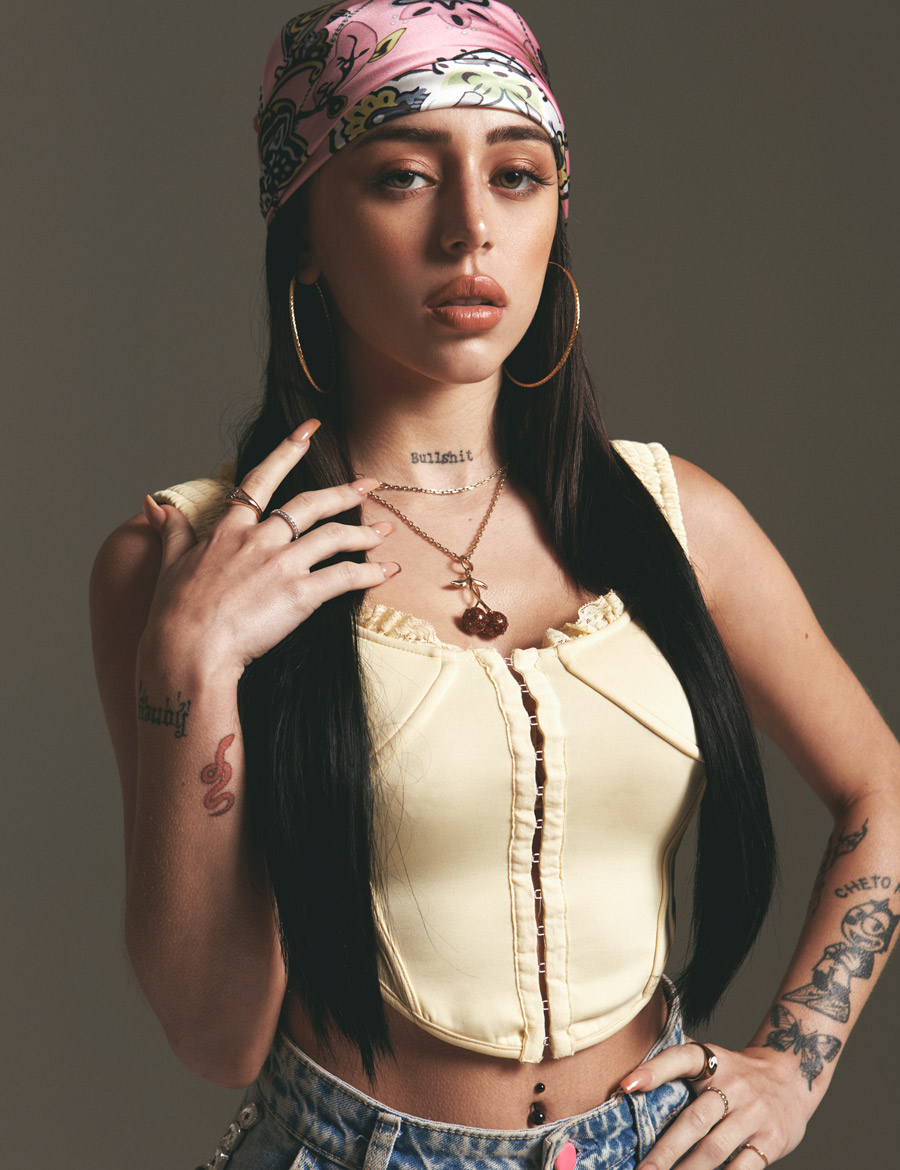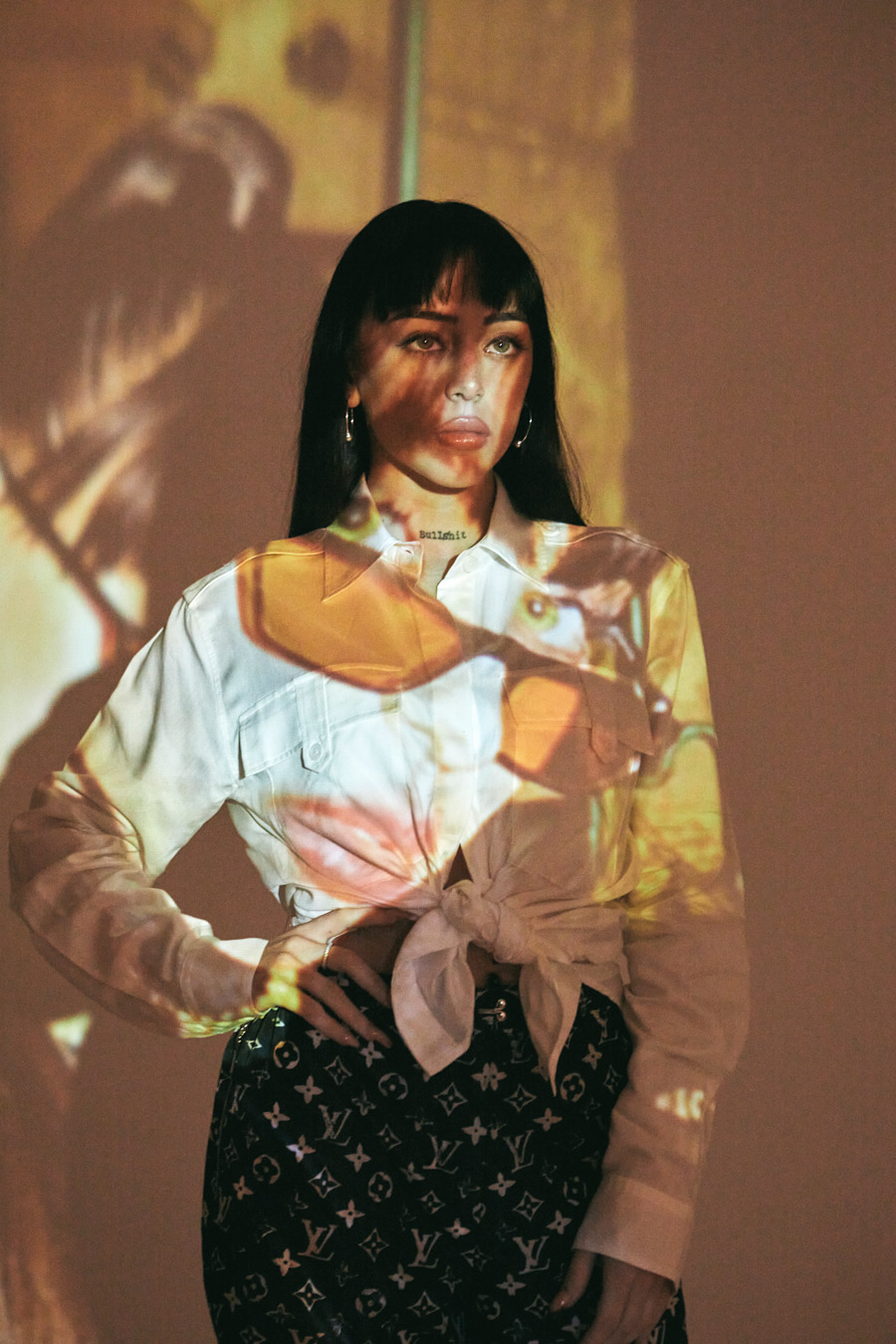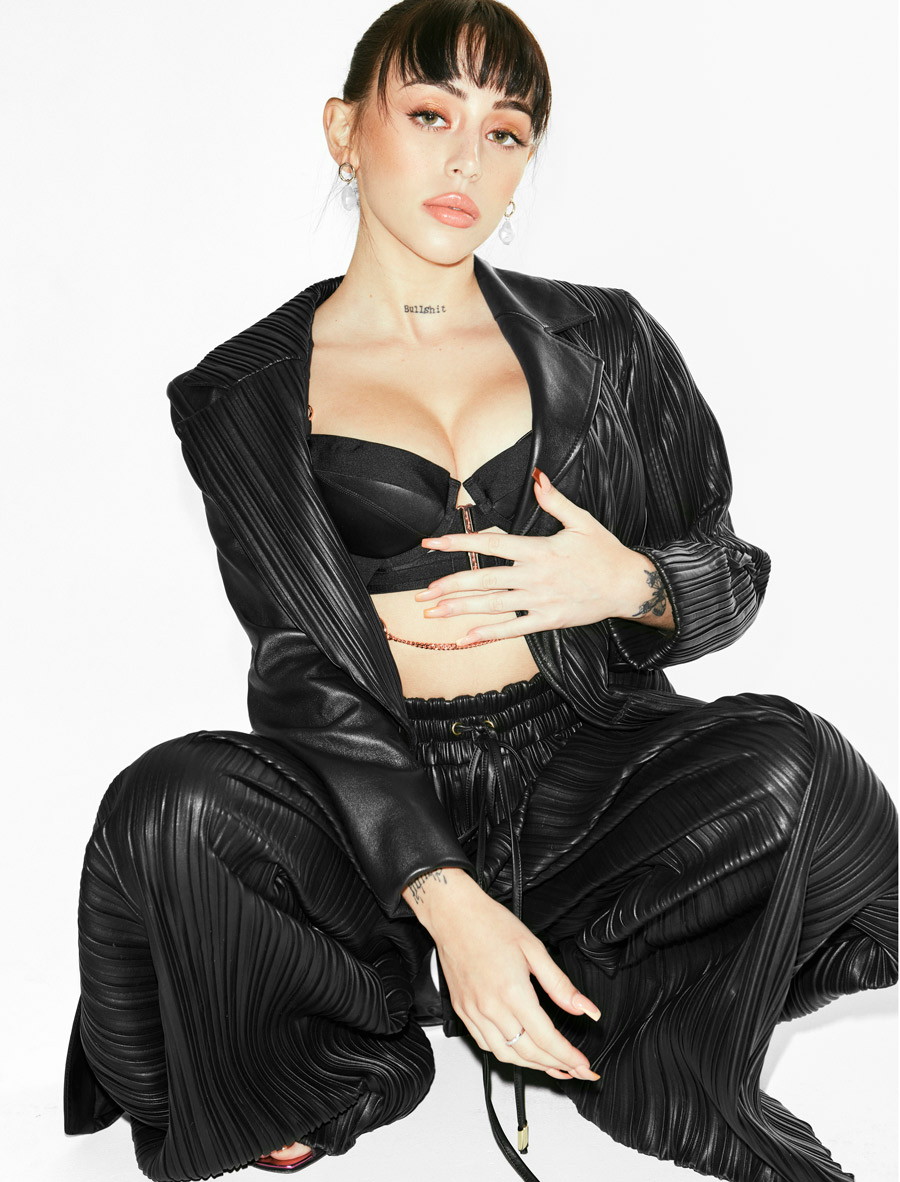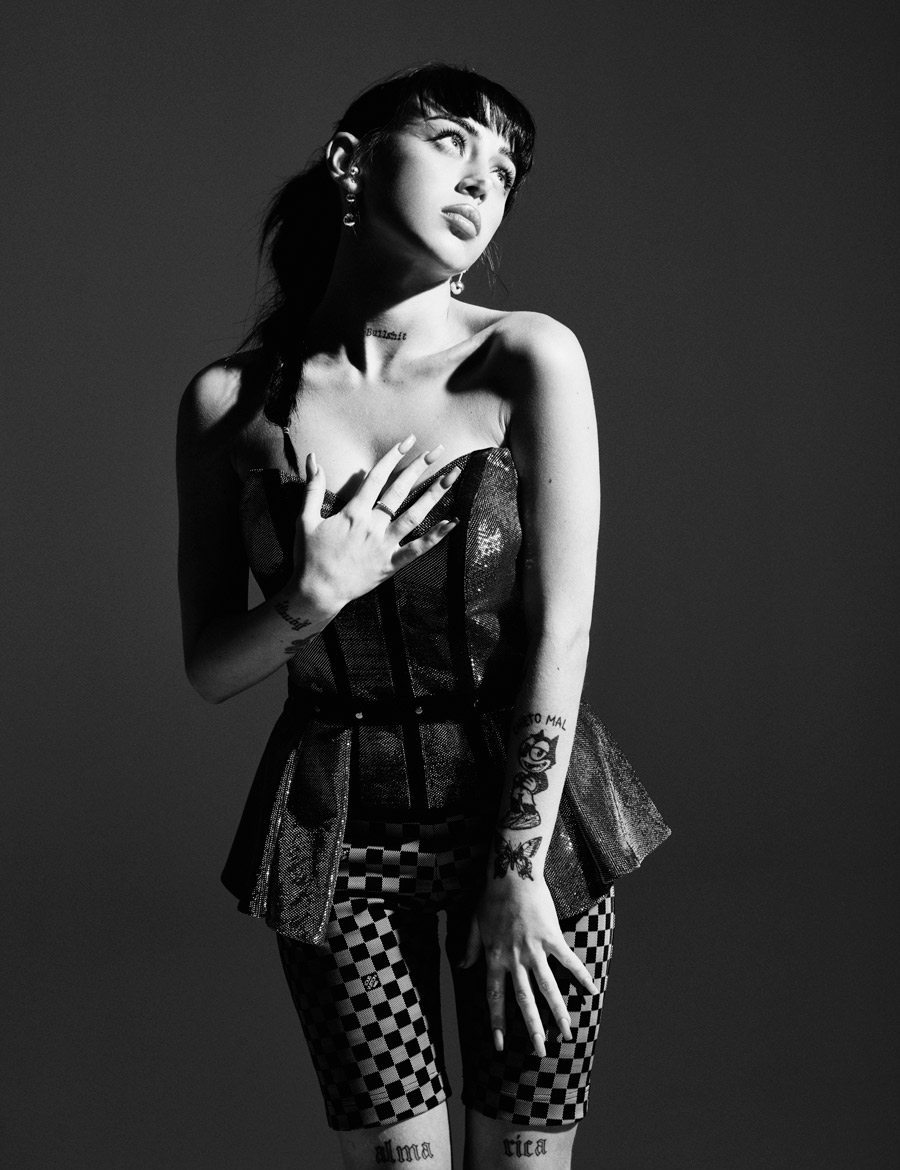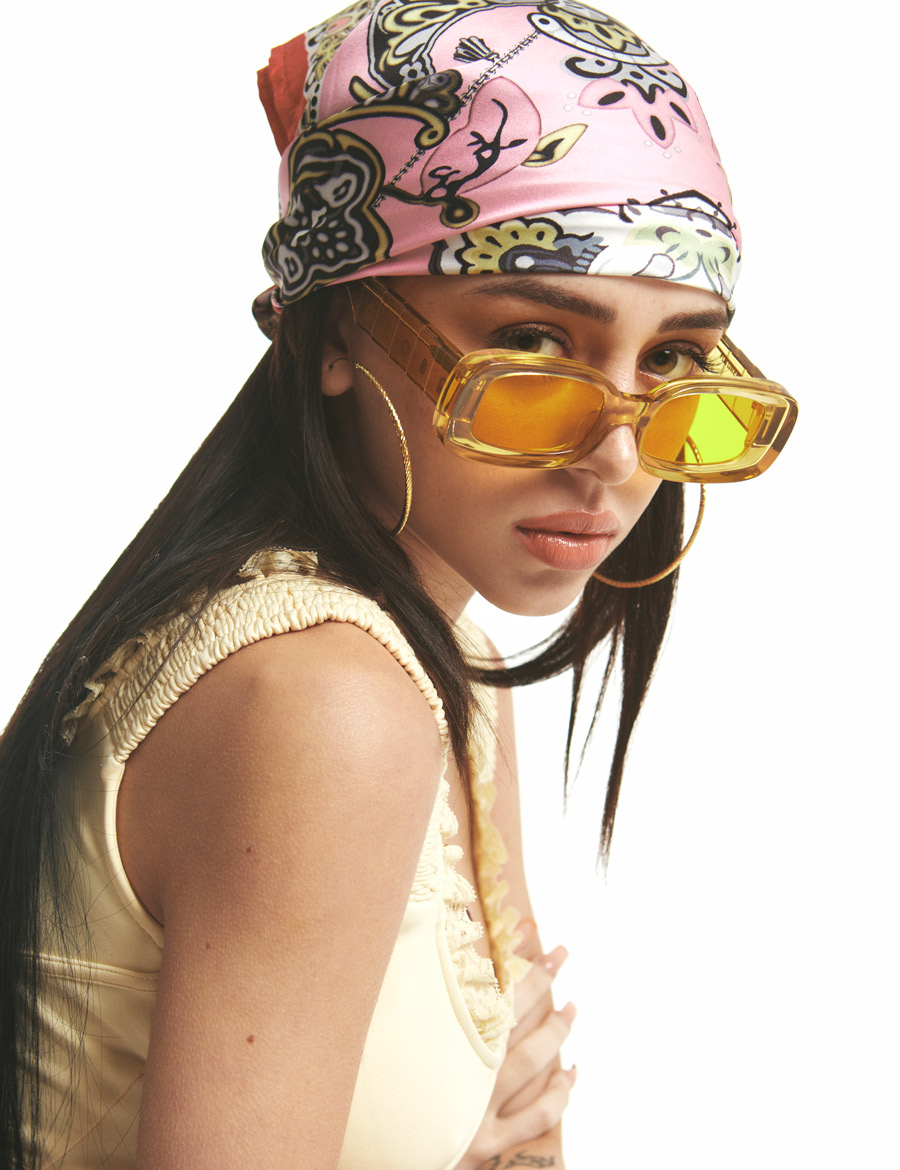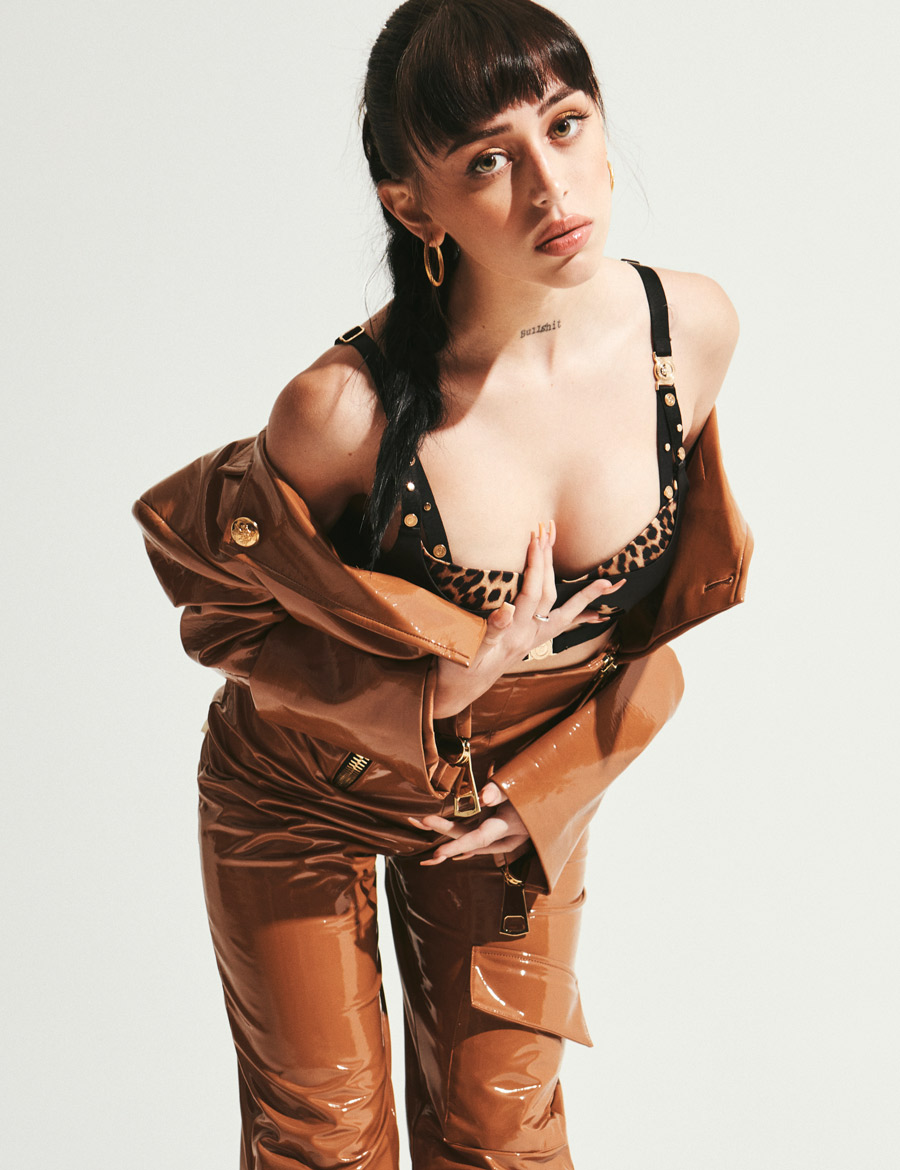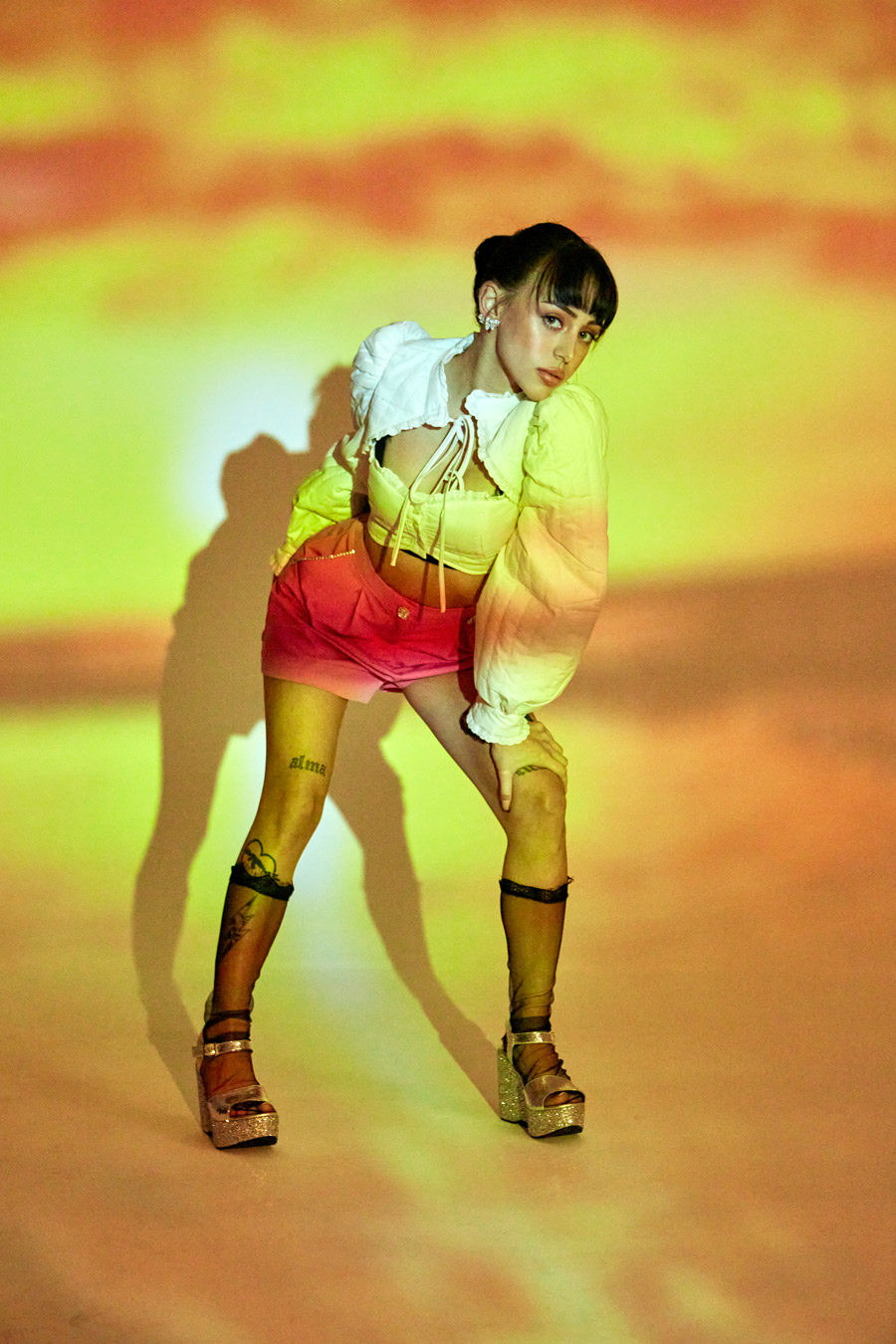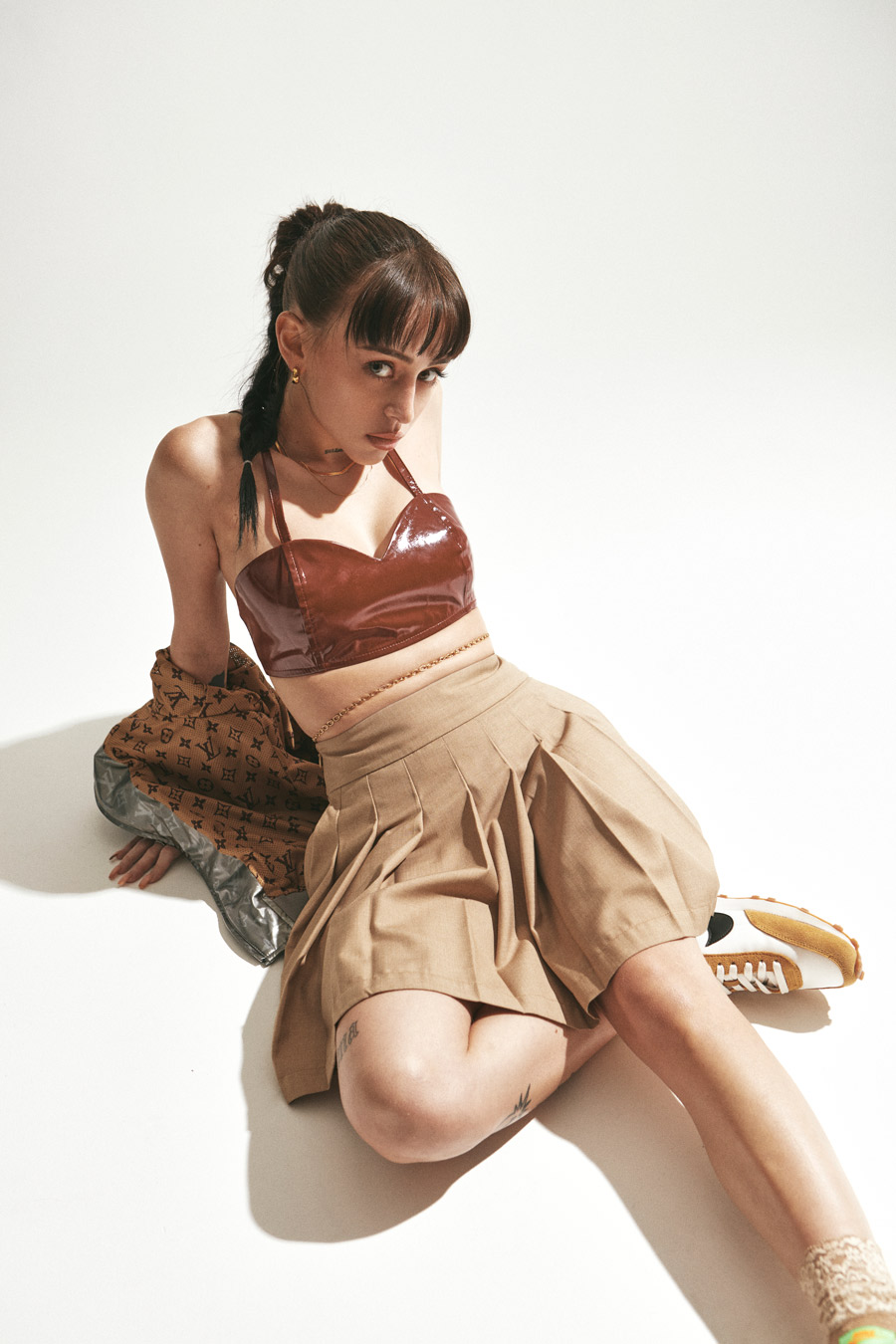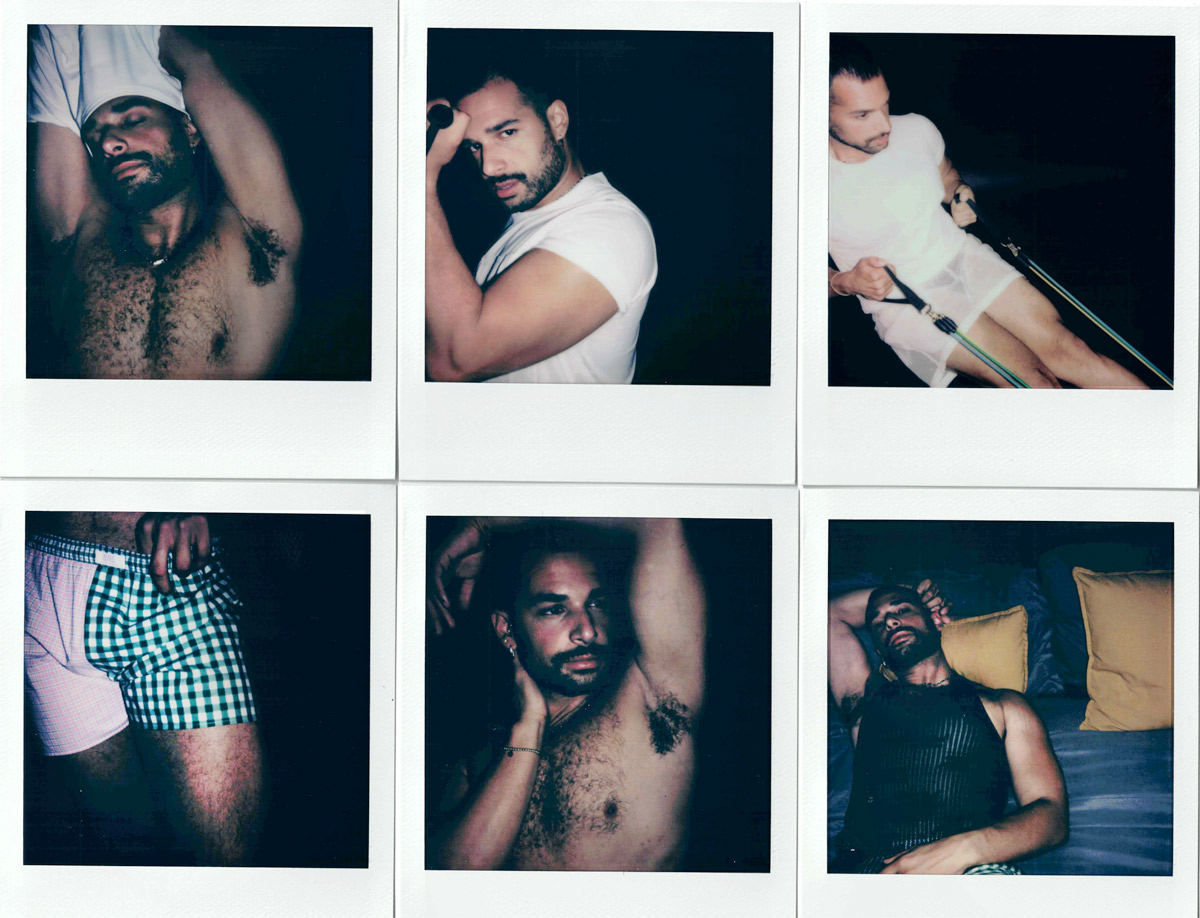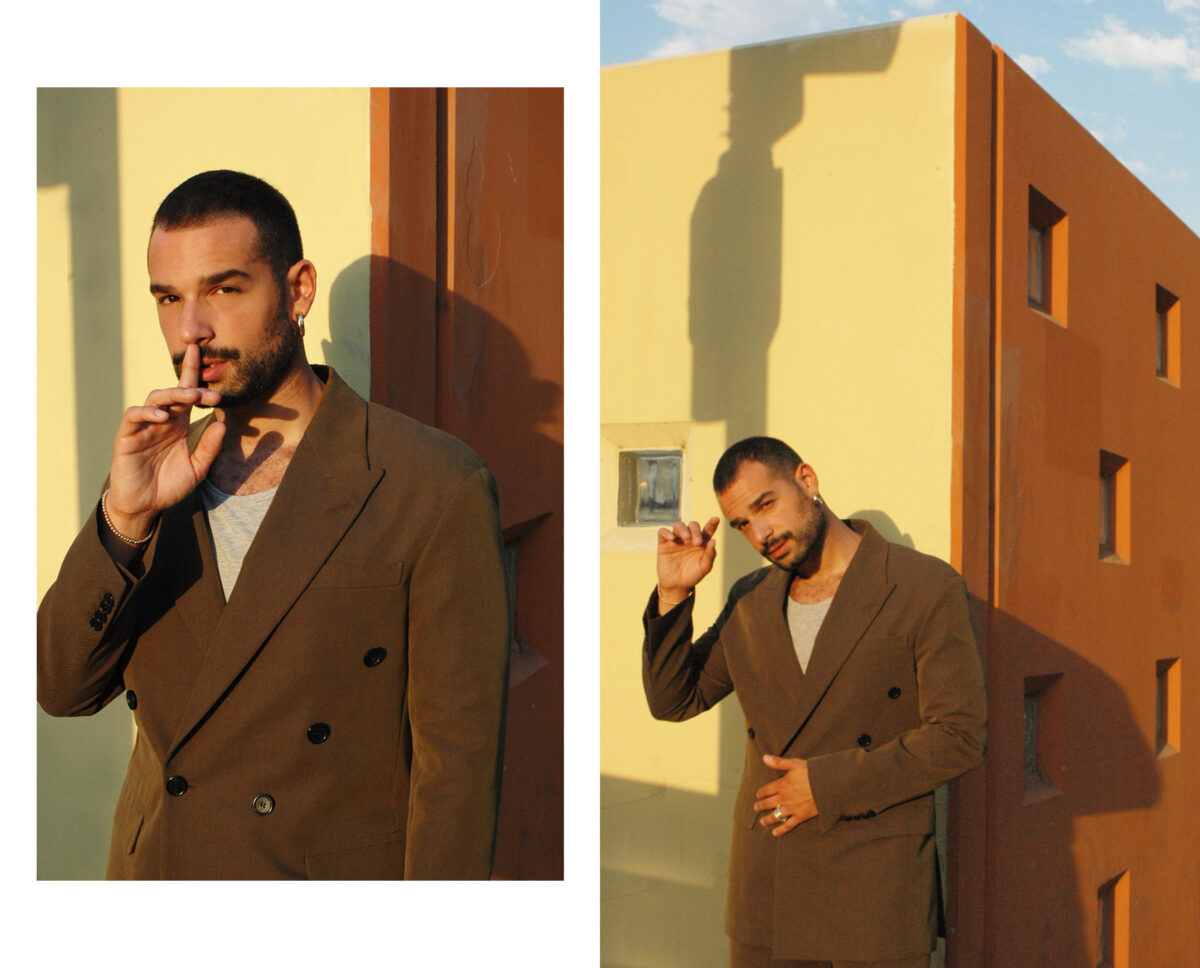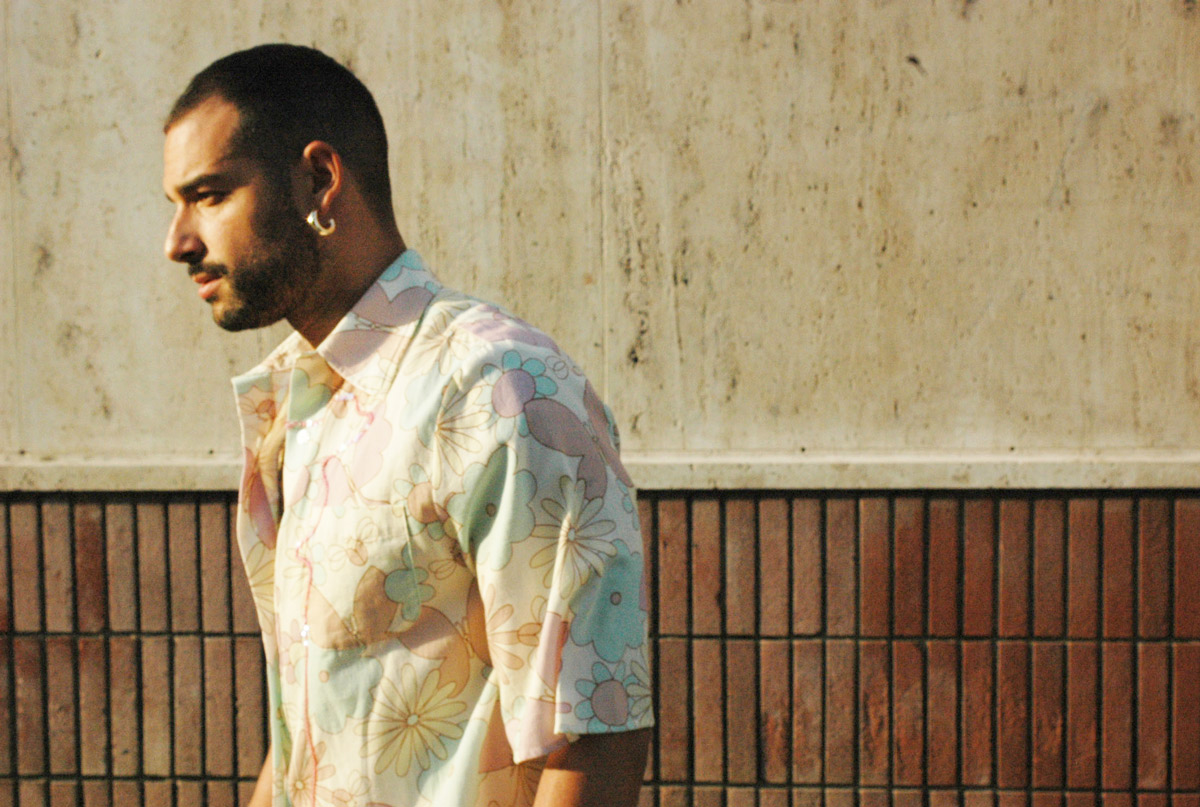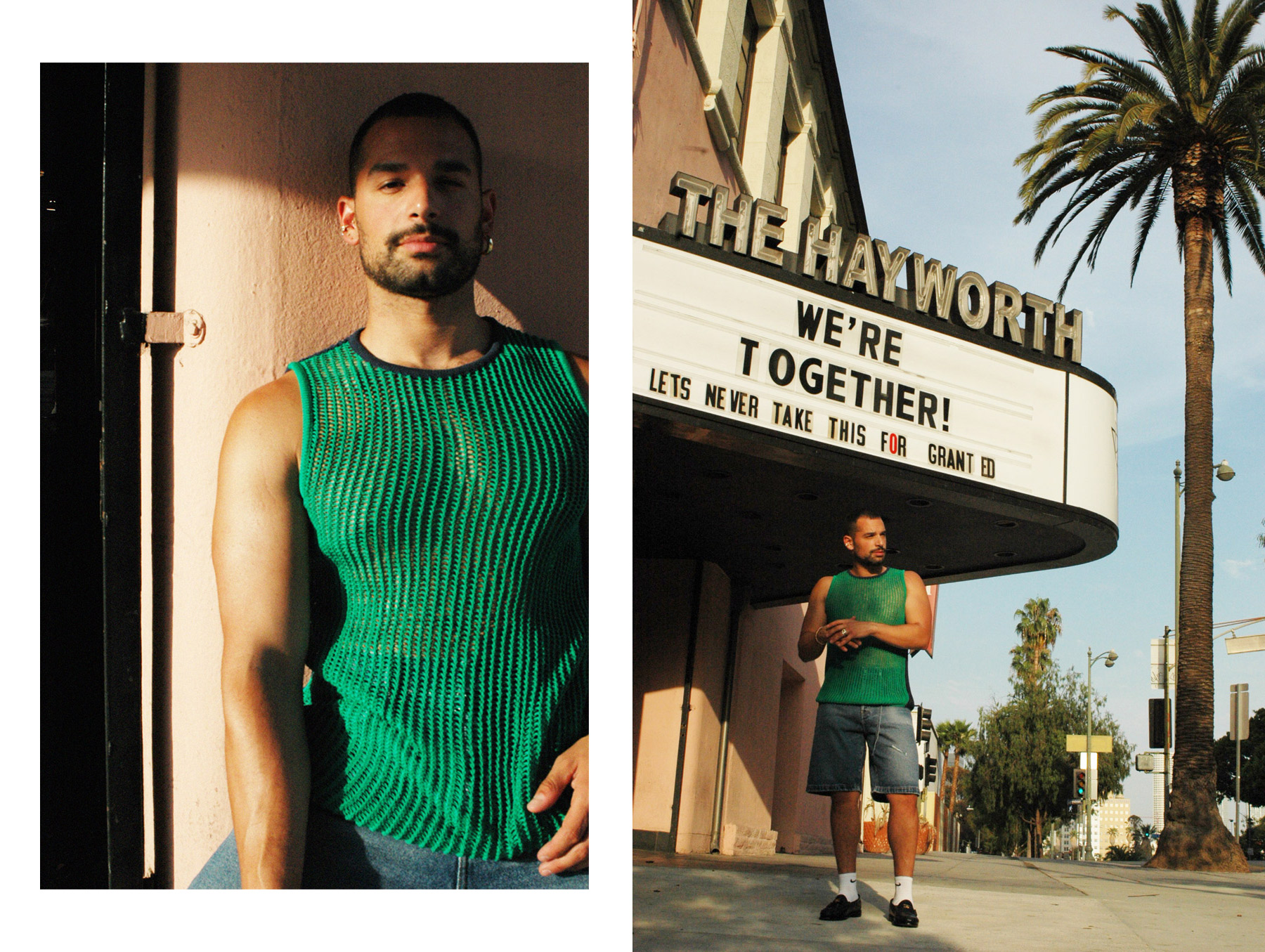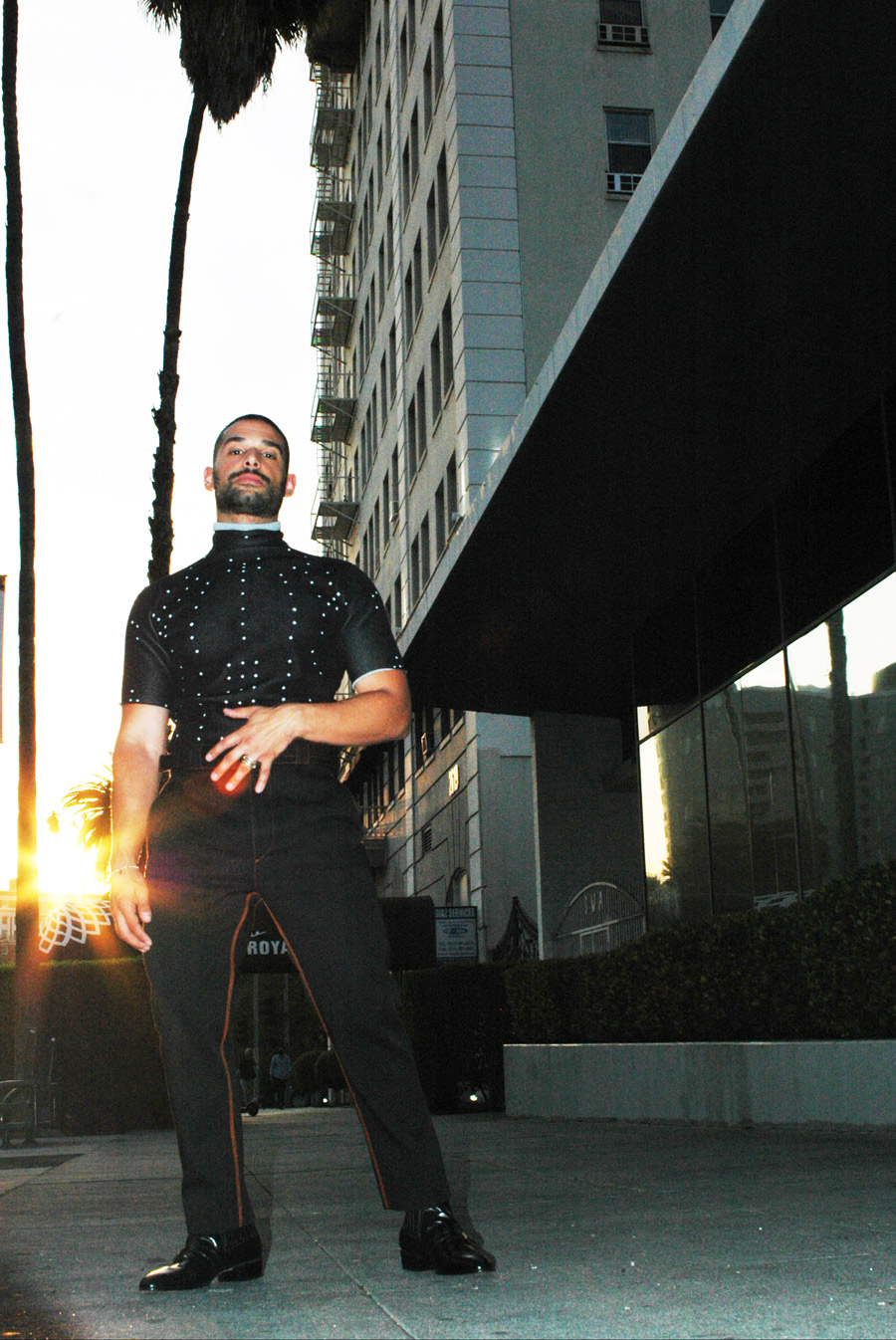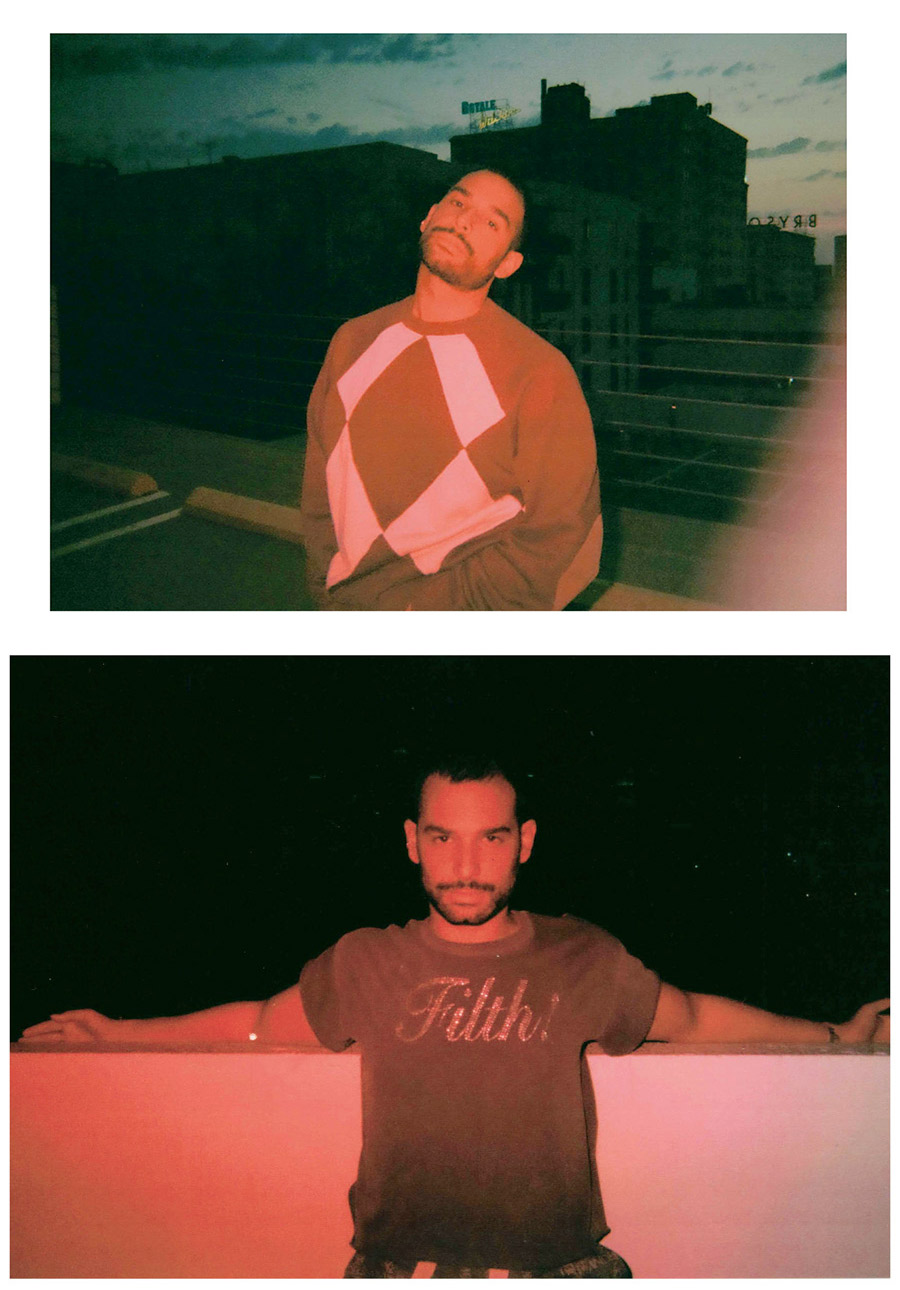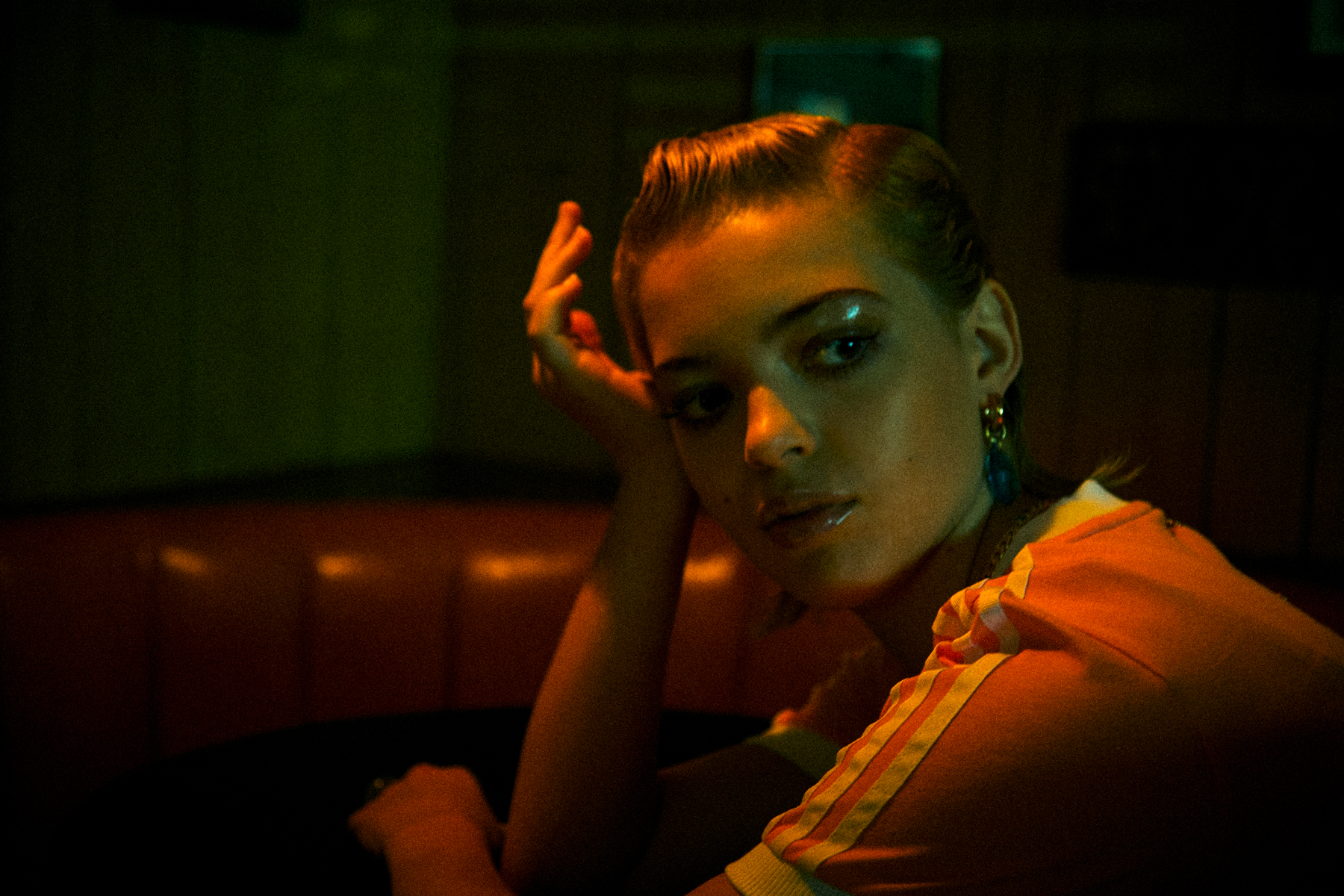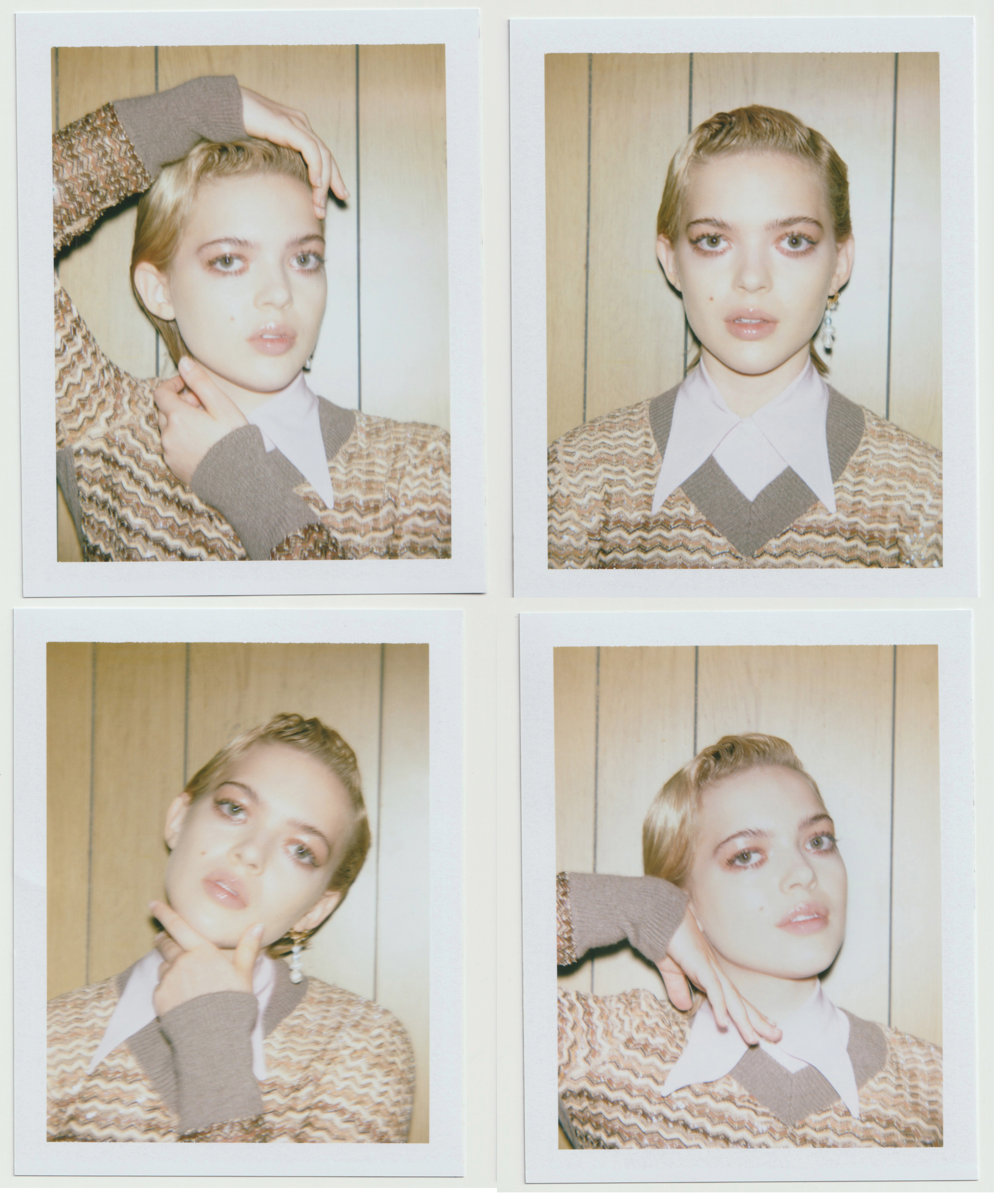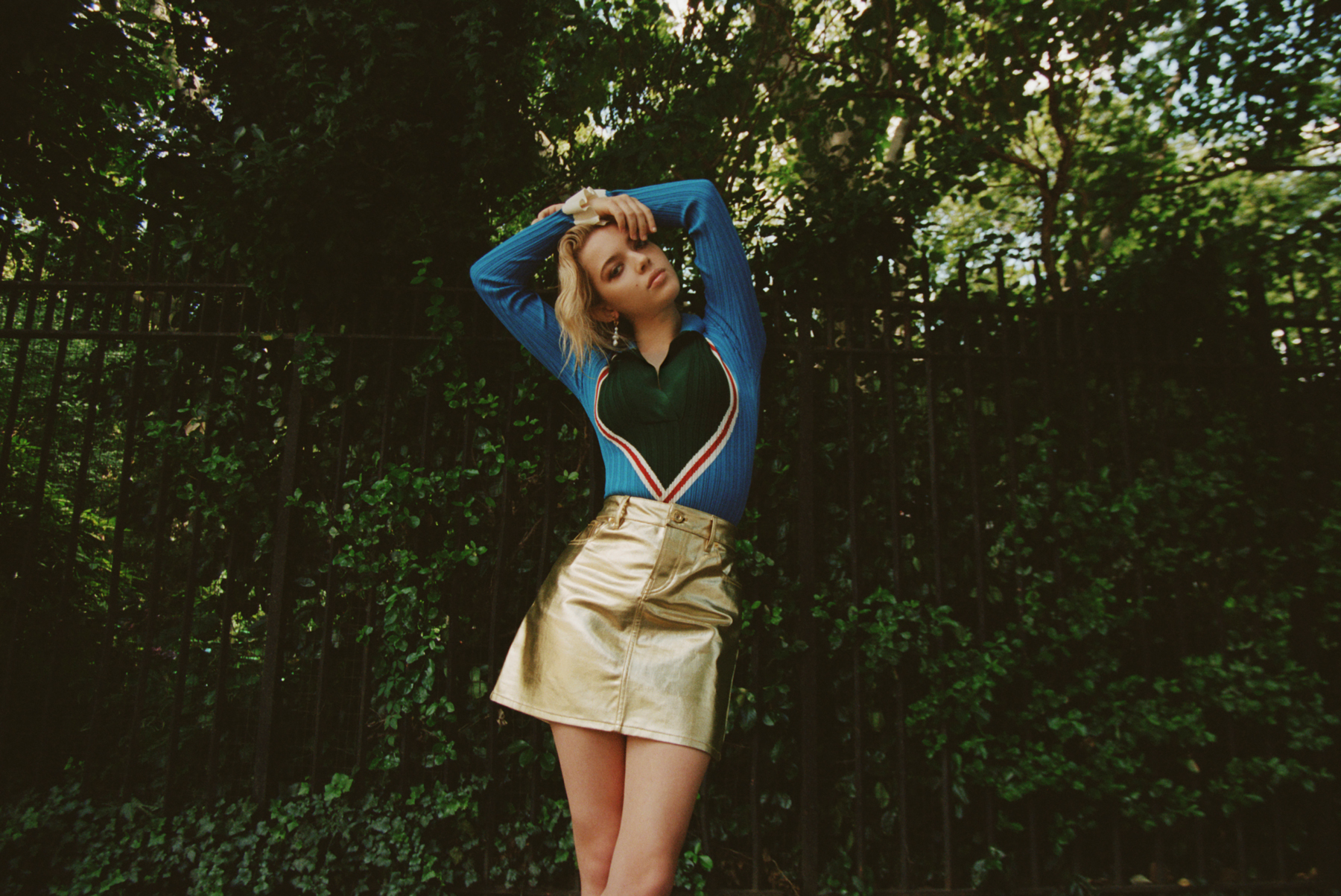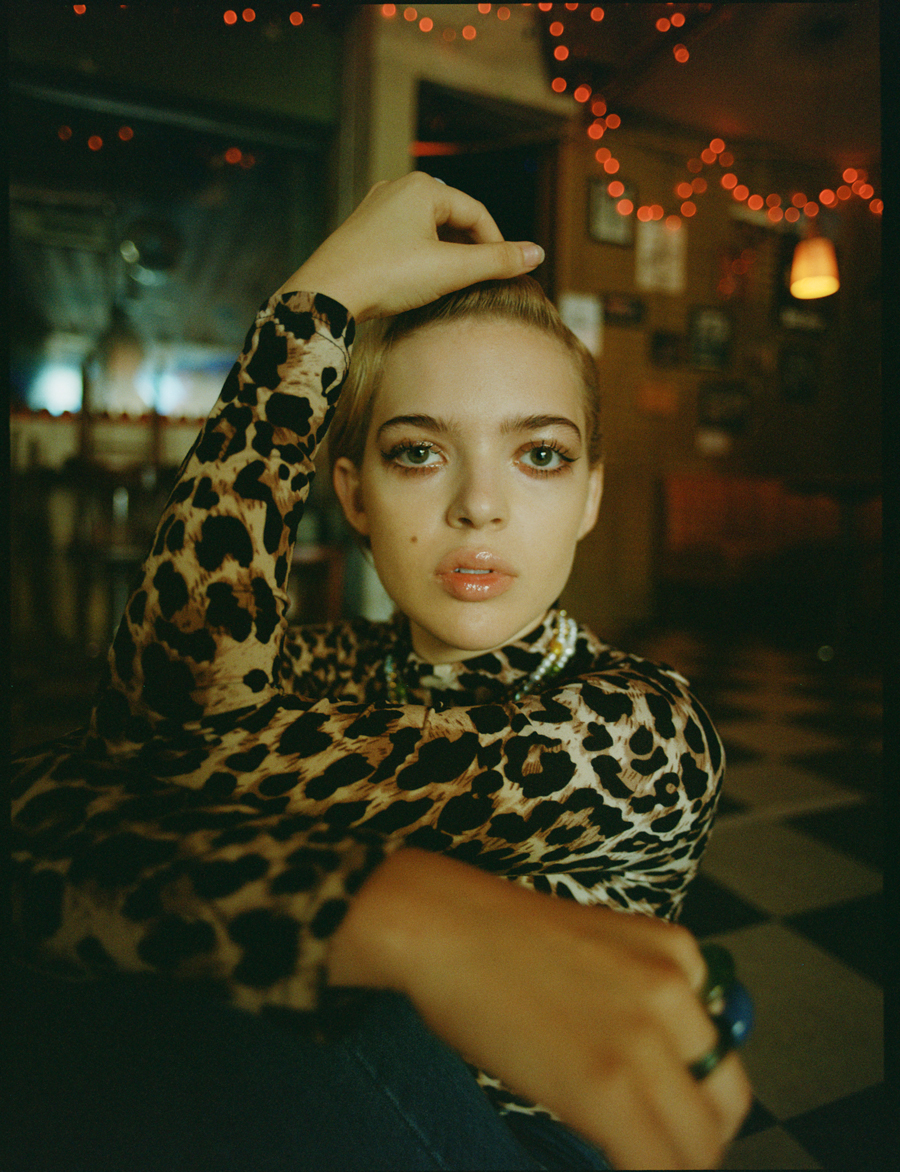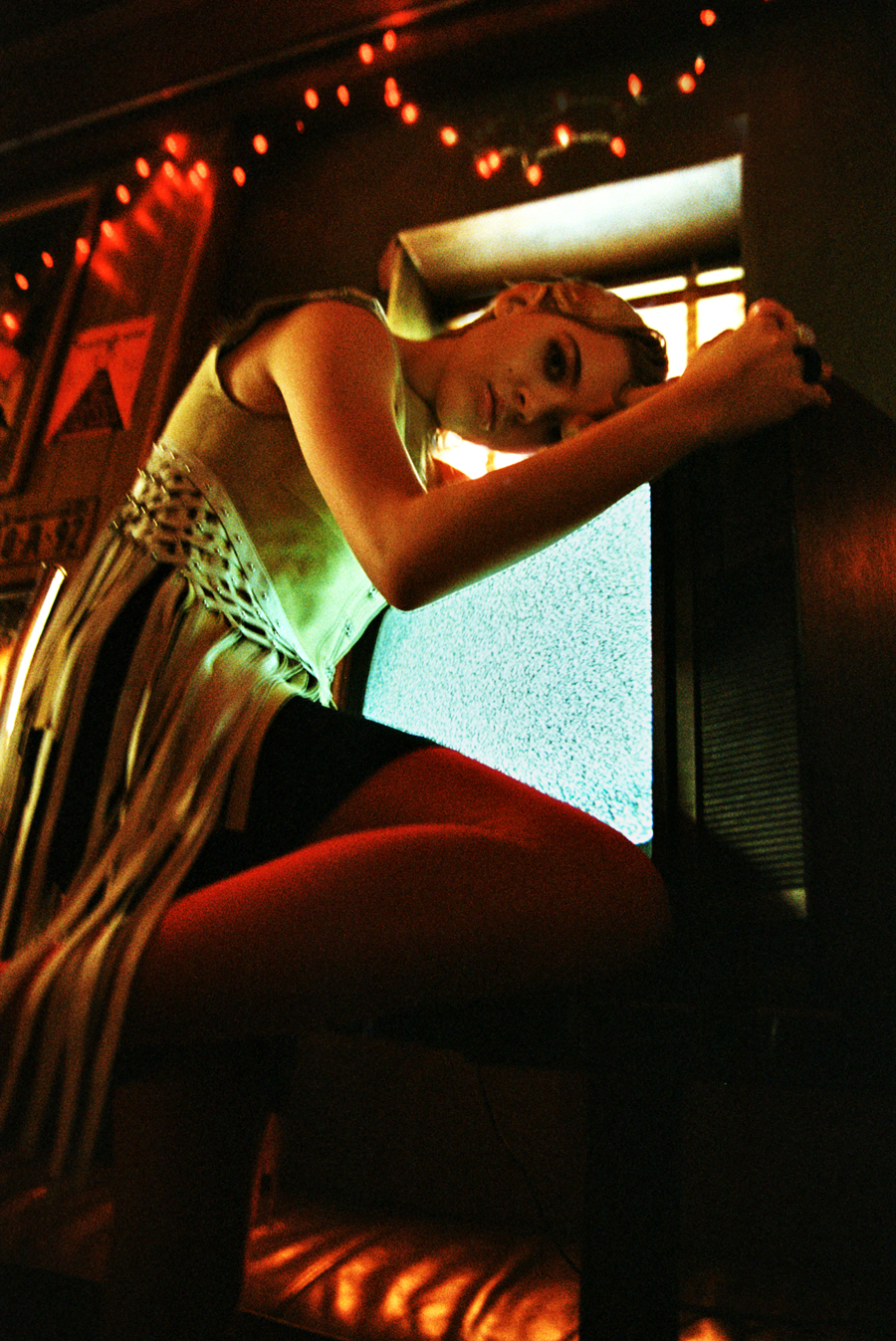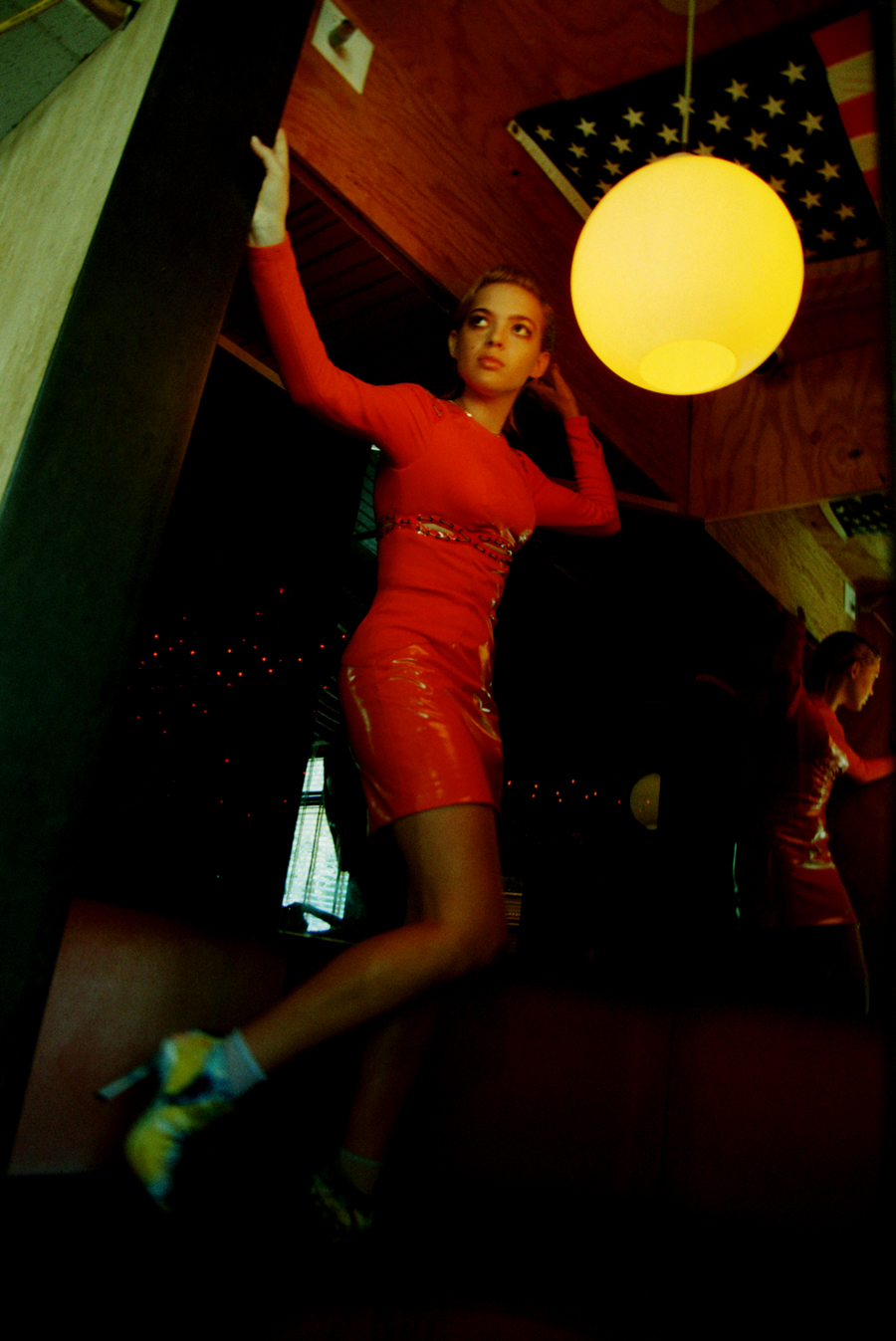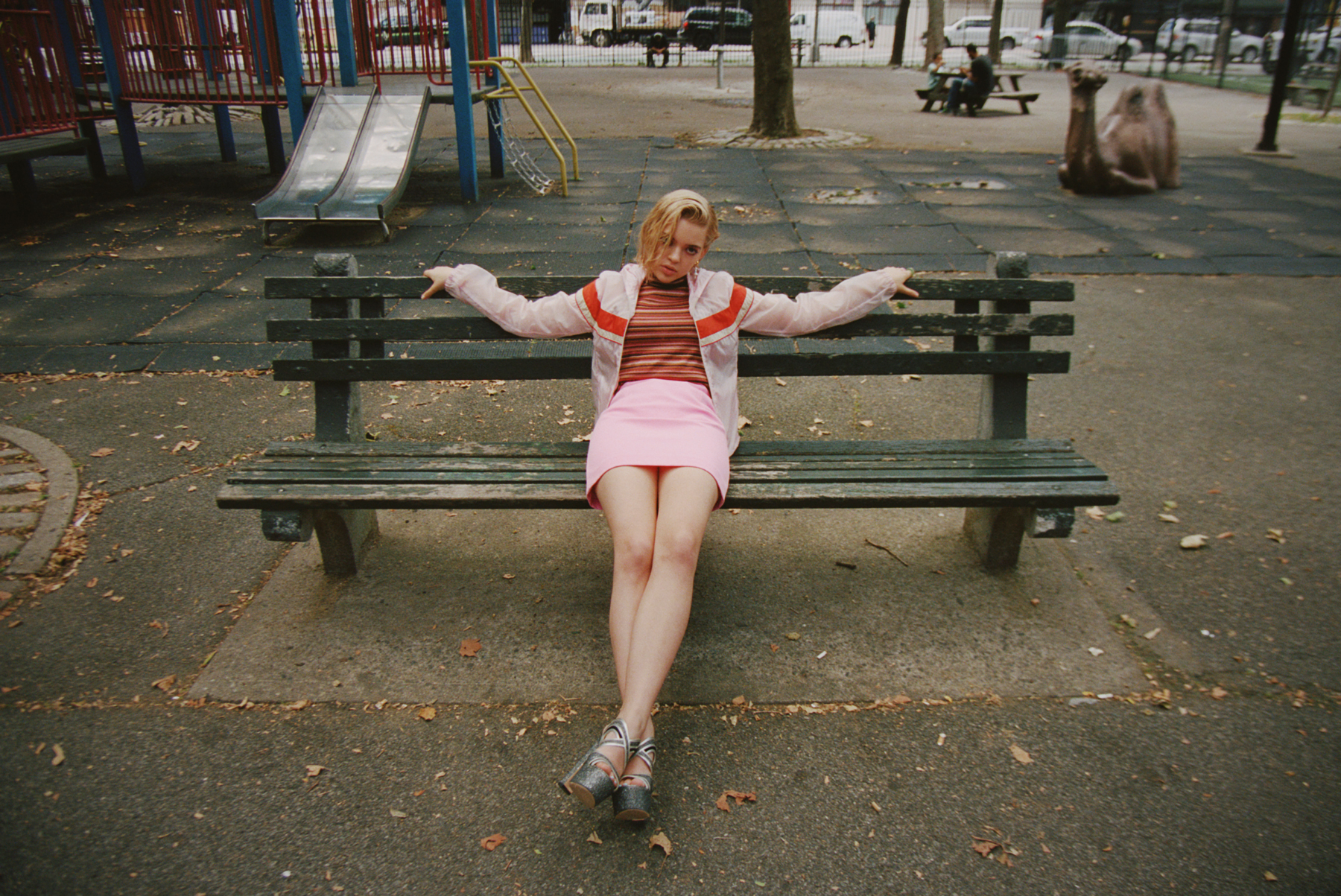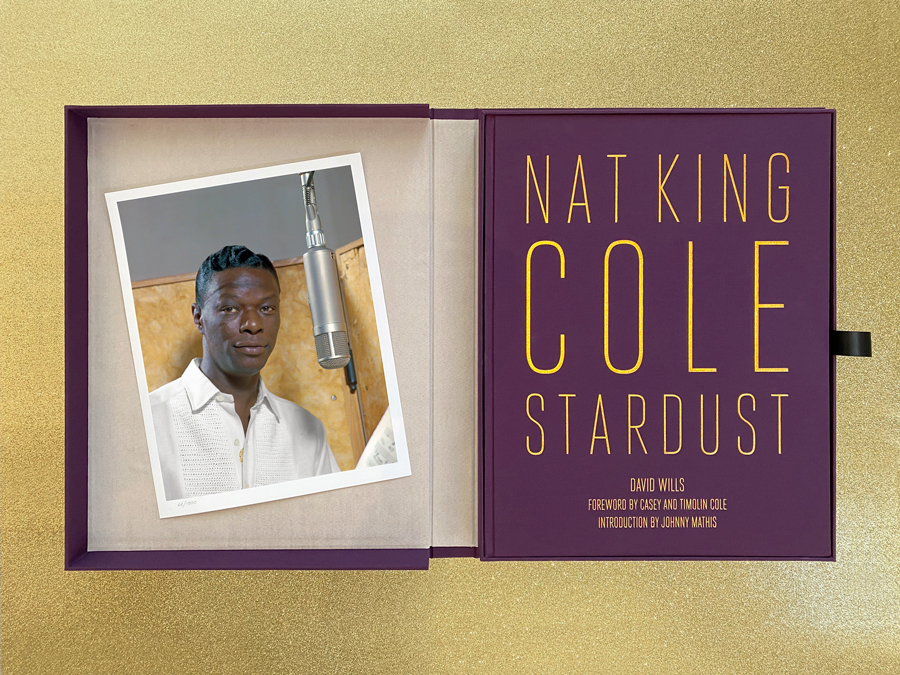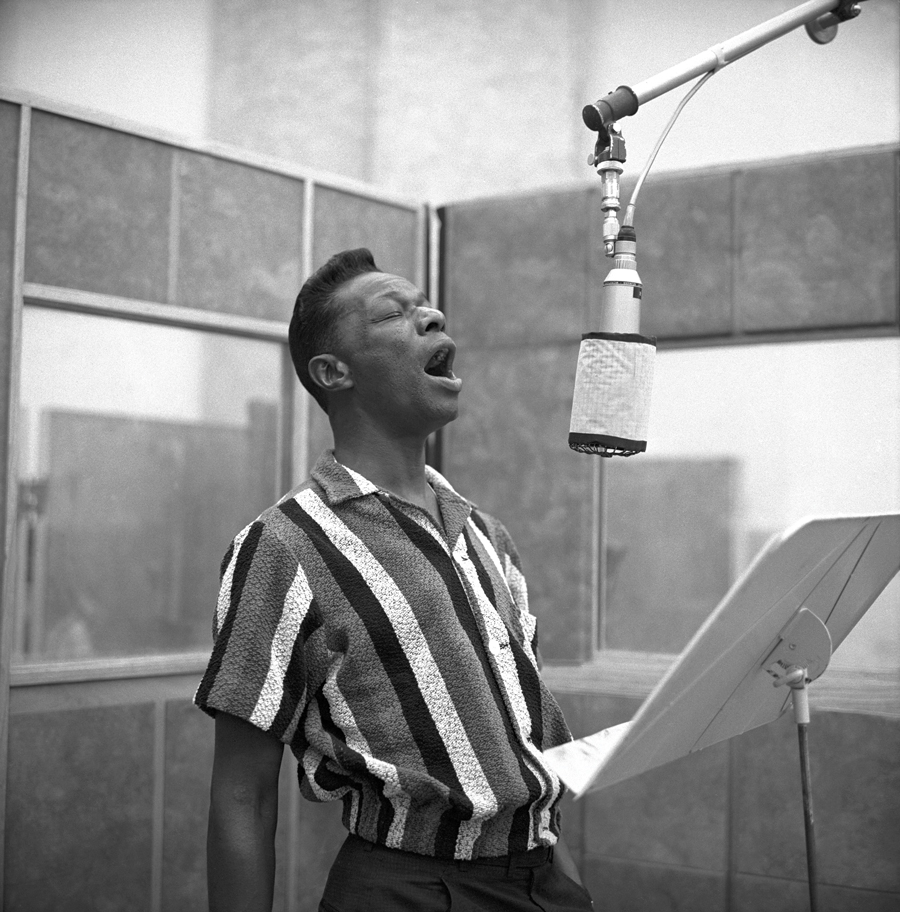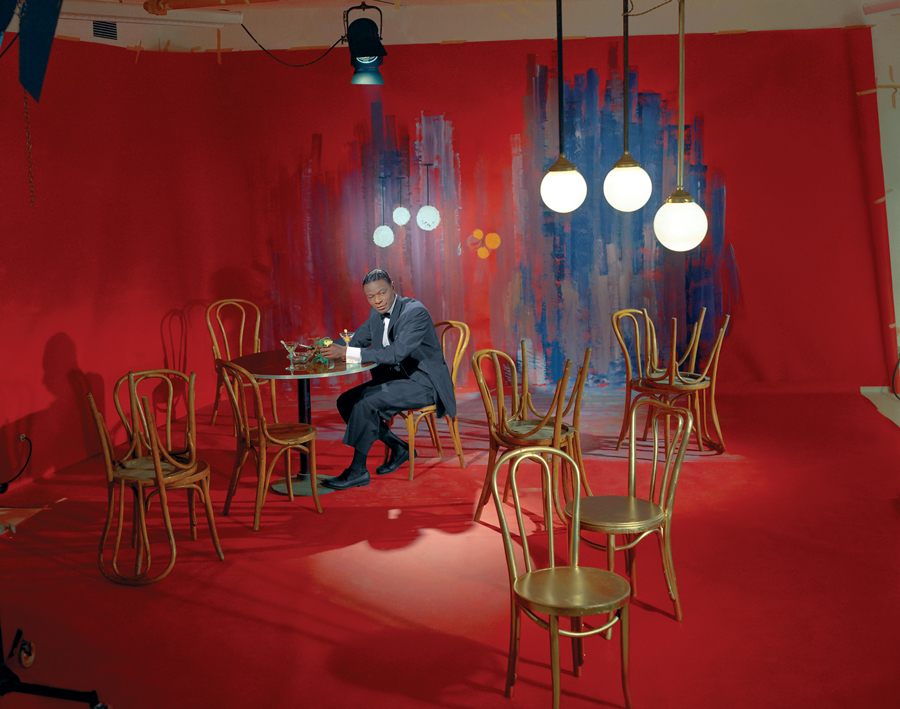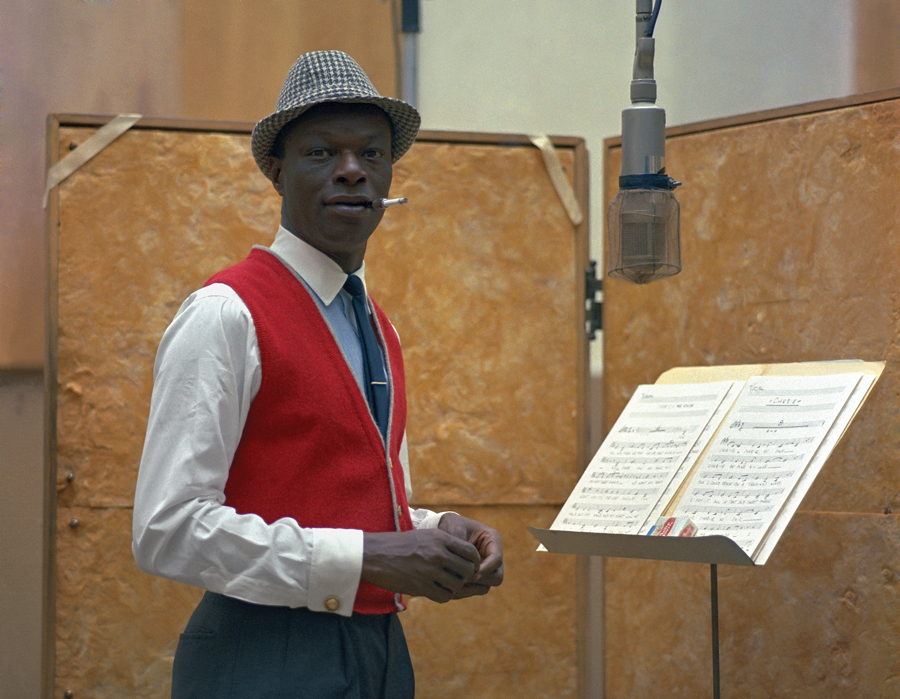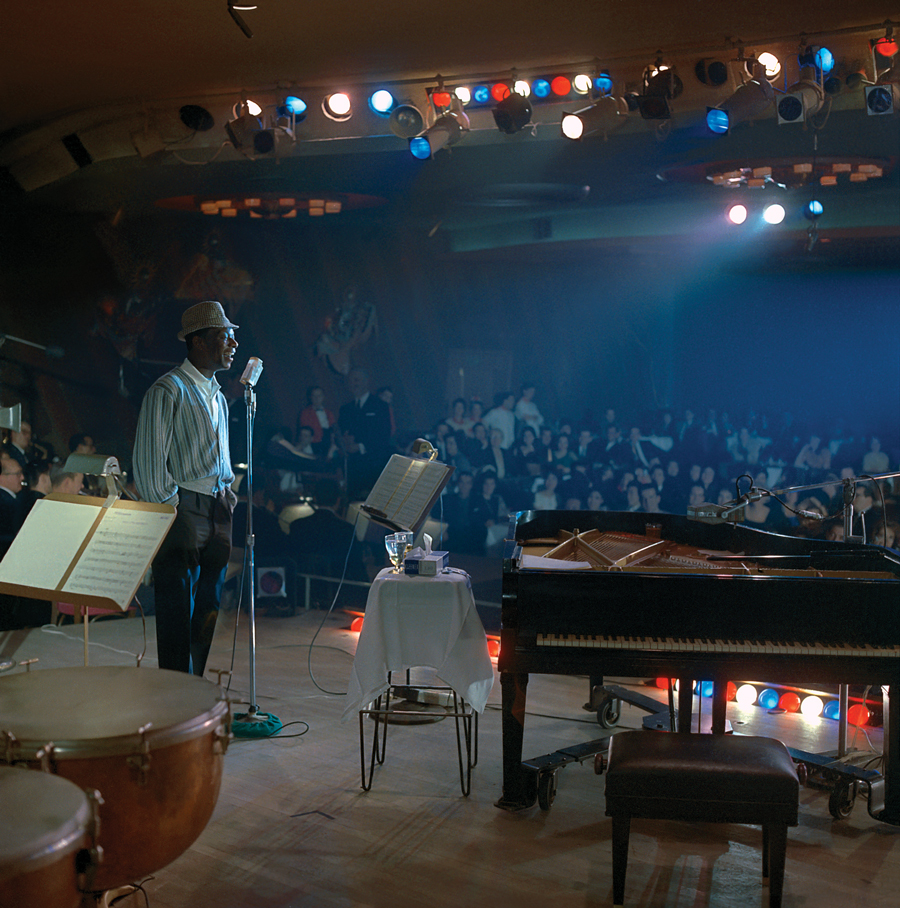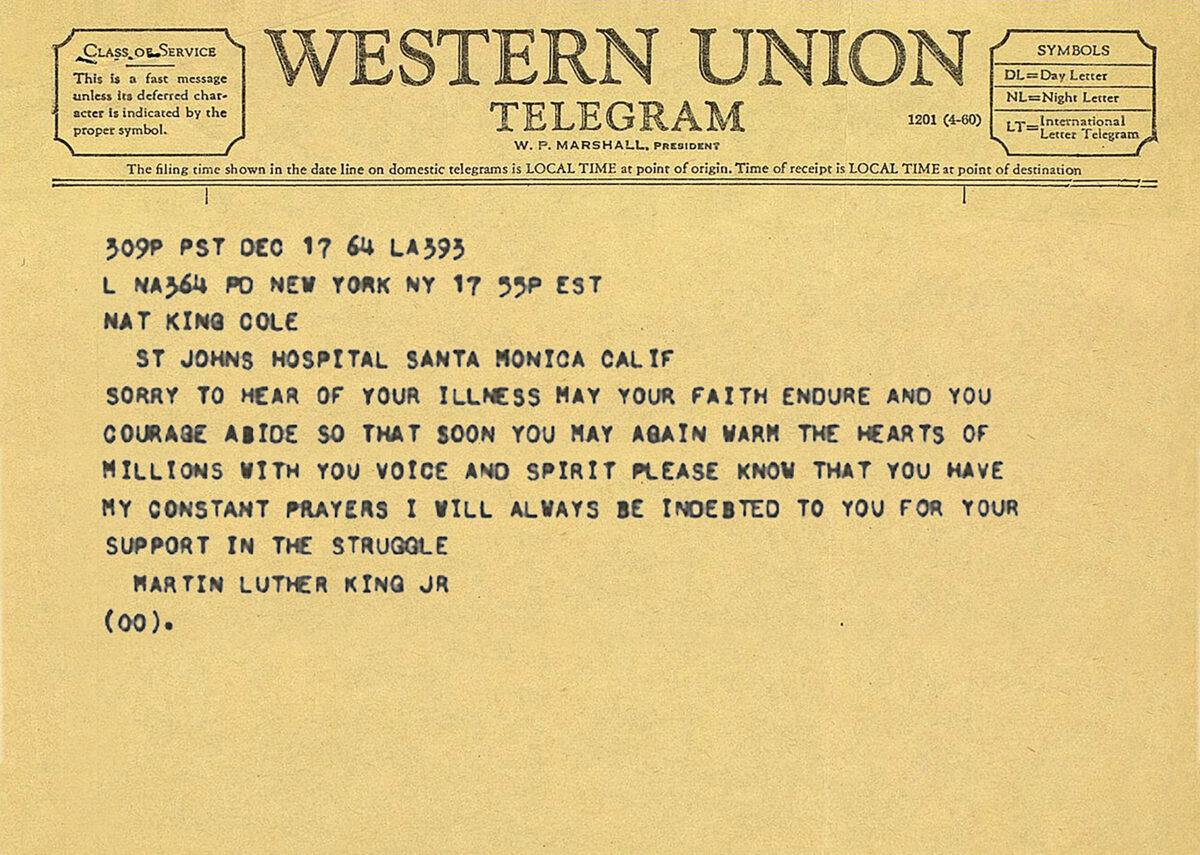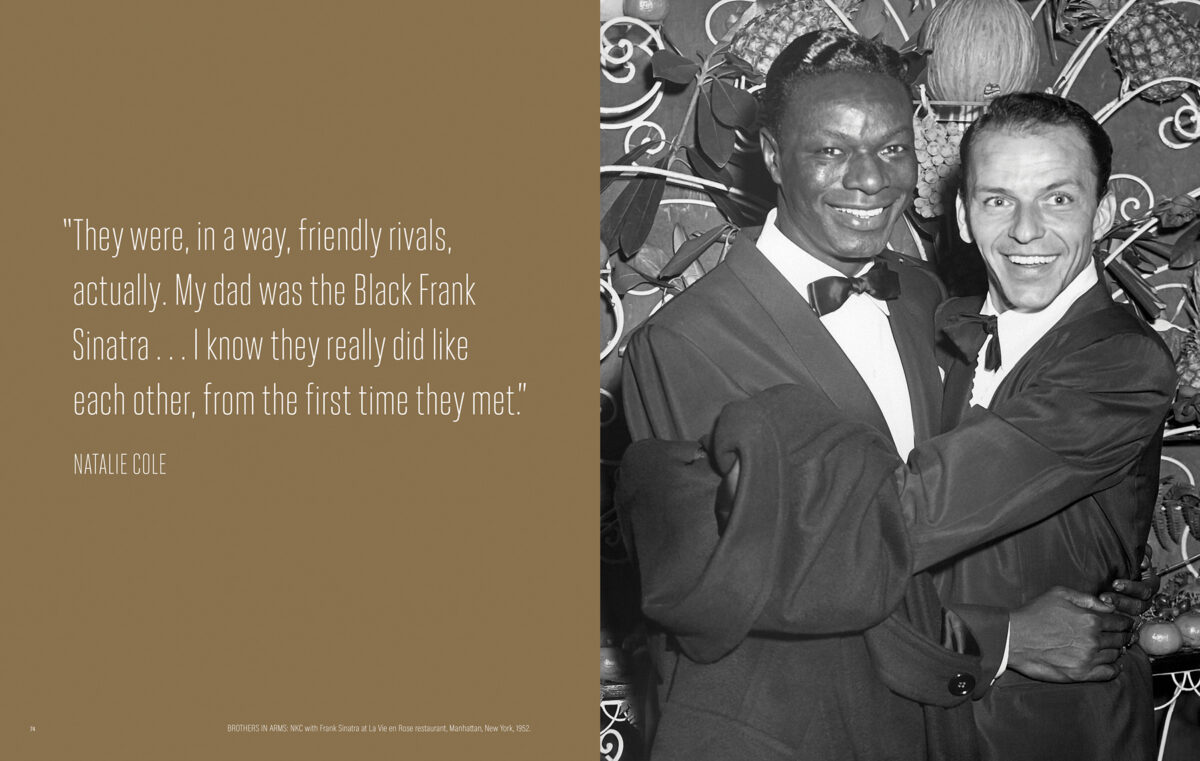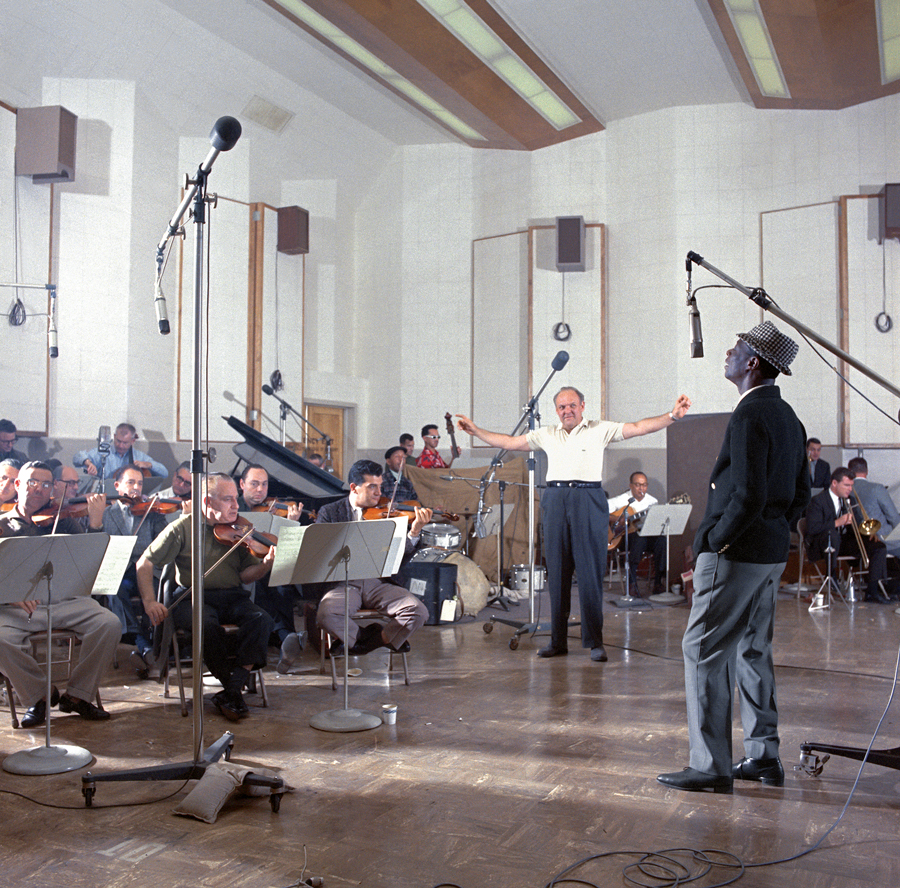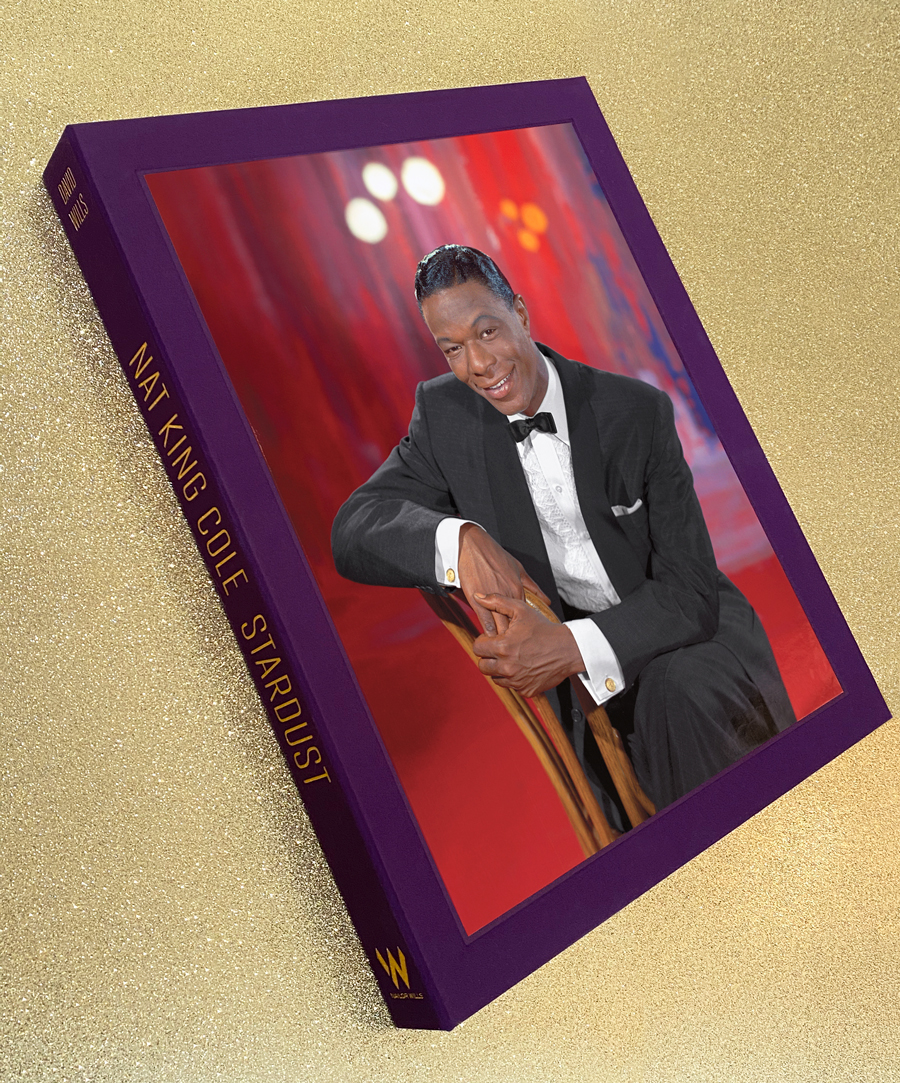JULIO TORRES STAR OF THE NEW HBO MAX SERIES FANTASMAS
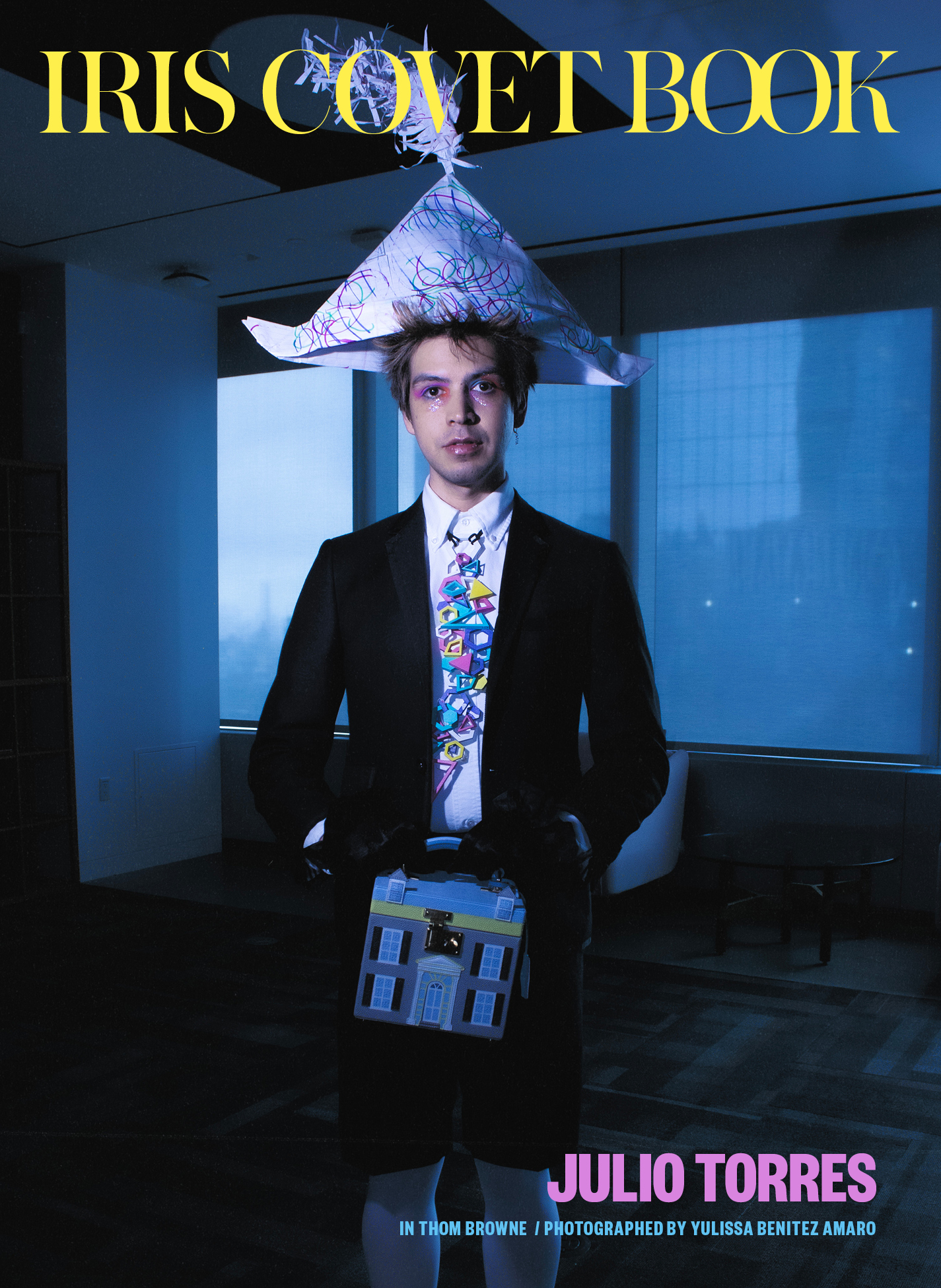
Suit, Shirt, Boots, and Bag: Thom Browne (@thombrowne), Tie: Daniel Roa (@danielroaart), Tights: Calzedonia (@calzedonia), Gloves: Stylists’ own
Photographer: Yulissa Benitez Amaro @yu.lez
Fashion Stylist: Angel Emmanuel Ramirez @angelemmanuel
Makeup Artist: Cyler Daigle @cylersays
Hair Artist: Sean Bennett @uhmmwhat
Photo Assistants: Timothy Smith @tiwothy, Vinit Patel @uncl3swag
Stylist Assistant: Laura Napoliello @lauranapoliello
Interview by Marc Sifuentes
Celebrated for his distinctive storytelling and imaginative flair, Julio Torres emerges as a prominent figure in the world of comedy and filmmaking. Hailing from El Salvador, Torres has garnered widespread acclaim, earning prestigious accolades such as Emmy nominations, a Peabody Award, and a Writers Guild of America Award.
Last year, Torres made his impressive directorial debut with A24’s Problemista, captivating audiences and critics alike at the SXSW Festival. Notably, he not only directed but also wrote and starred in the film alongside luminaries such as Tilda Swinton, Isabella Rossellini, and RZA.
Now, venturing further into his creative journey, Torres presents Fantasmas, a six-episode series slated to premiere on HBO Max on June 7th. Serving as the writer, director, executive producer, and lead actor, Torres crafts a whimsical and introspective narrative revolving around the search for a lost oyster earring. Through a series of encounters and reflections, the story unfolds into mini-films, blending eerie comedy with poignant insights.
Julio shares his thoughts on embracing his evolving role as a multi-hyphenated creator, weighs in on the tough decision of voting in this year’s election, and delves into the captivating tale of a lost oyster earring—all while stepping into the role of Iris Covet Book intern for the day.
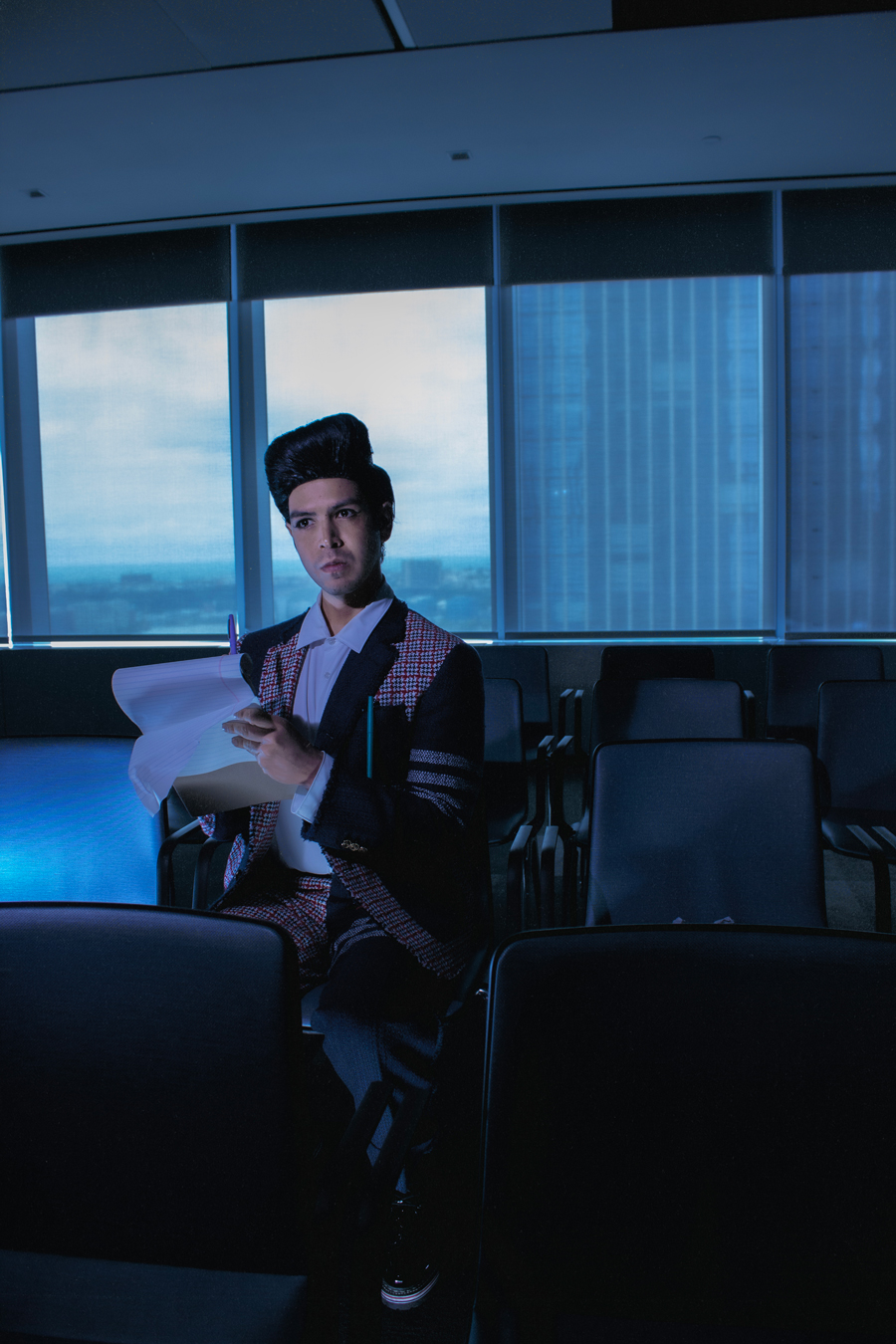
Full Look: Thom Browne
I just watched the first three episodes of Fantasmas and I love the series already.
Thank you.
Going into the show blindly, it reminded me of how we used to rent these art house movies from Blockbuster video or somewhere and maybe you have seen the trailer, or maybe you would know the movie poster, but you would rent these movies not knowing what you were going to get but you knew it would be avant-garde.
Yeah, yeah, yeah, yeah, absolutely.
And watching the series there are so many nods, I feel, to that era. It’s such a unique and unconventional concept and I don’t want to give too much away but can you tell me how did the idea for Fantasmas come about?
Well, I missed the short form writing I got to do on Saturday Night Live. And I missed feeling like I could make short stories that were these little character studies and have them be in short form. And so, you know, a sketch show was the obvious vehicle for that. At the same time I wanted to weave in and out of them and I craved for some kind of cohesion and then the idea of a through line came about. And then it was really solidified when I actually lost an earring that was the exact earring described in the show. And I was just so mad. And I thought I should just make a show about this to make this experience productive somehow.
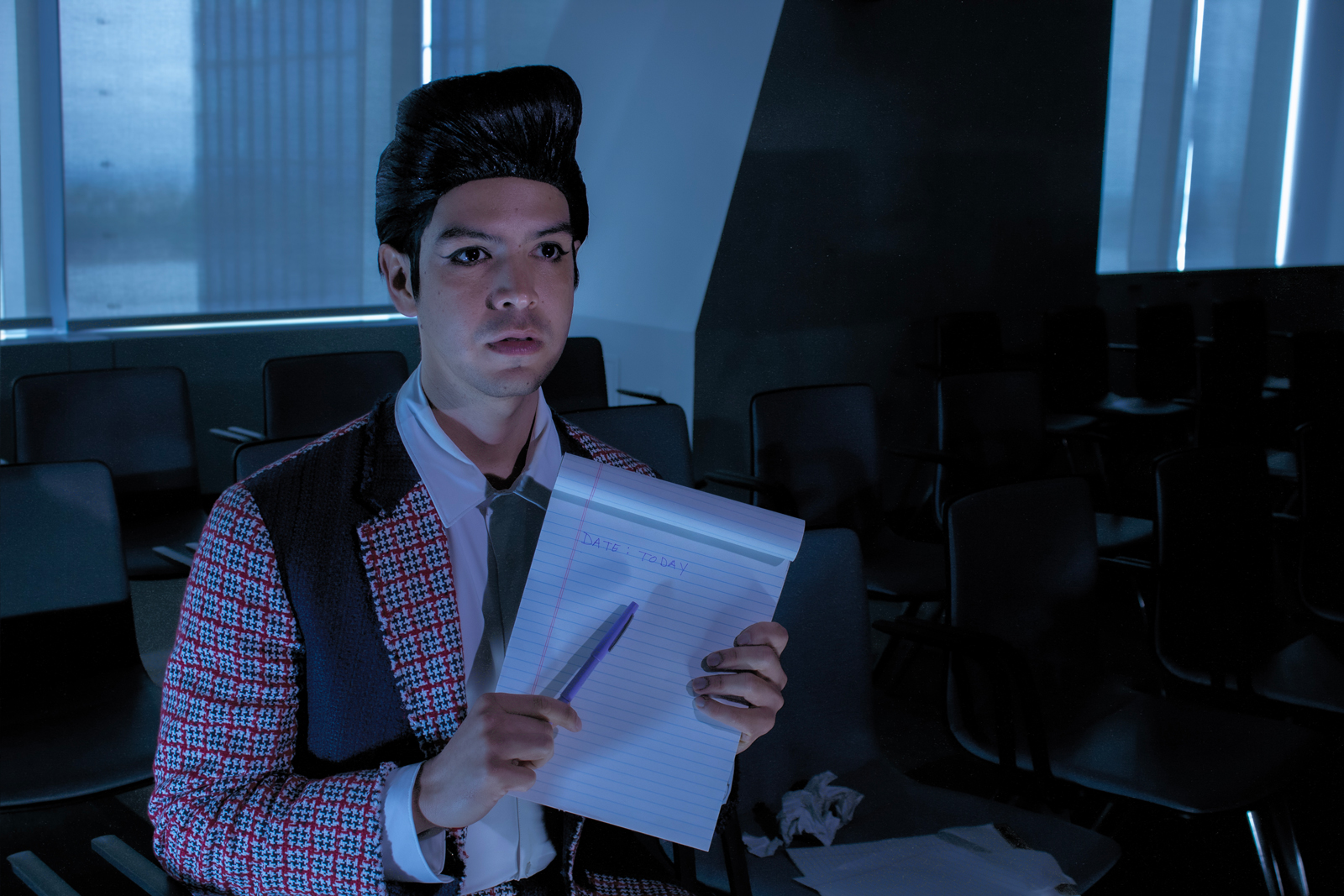
Full Look: Thom Browne
Once you had this idea, how did you start shaping and refining it? It’s pretty consistent with your tone of comedy and writing, but how do you pitch a story of losing an earring to such a huge streaming service like HBO Max? Did they buy into the concept immediately?
They did because I think that it was more than a pitch. But I think that, if this show were distilled into one sentence in an email, then I don’t know what the likelihood would be that they would have made it.
Because by that point, they knew my previous series Los Espookys, because obviously HBO made Los Espookys and these executives had also made My Favorite Shapes, my comedy special. So, they were very interested in what this could be and I feel like they saw the potential in it. And even after they decided that they wanted to do it, the show kept morphing and changing and they were always very, very supportive of it. I feel like they got the concept due to a trust in me.
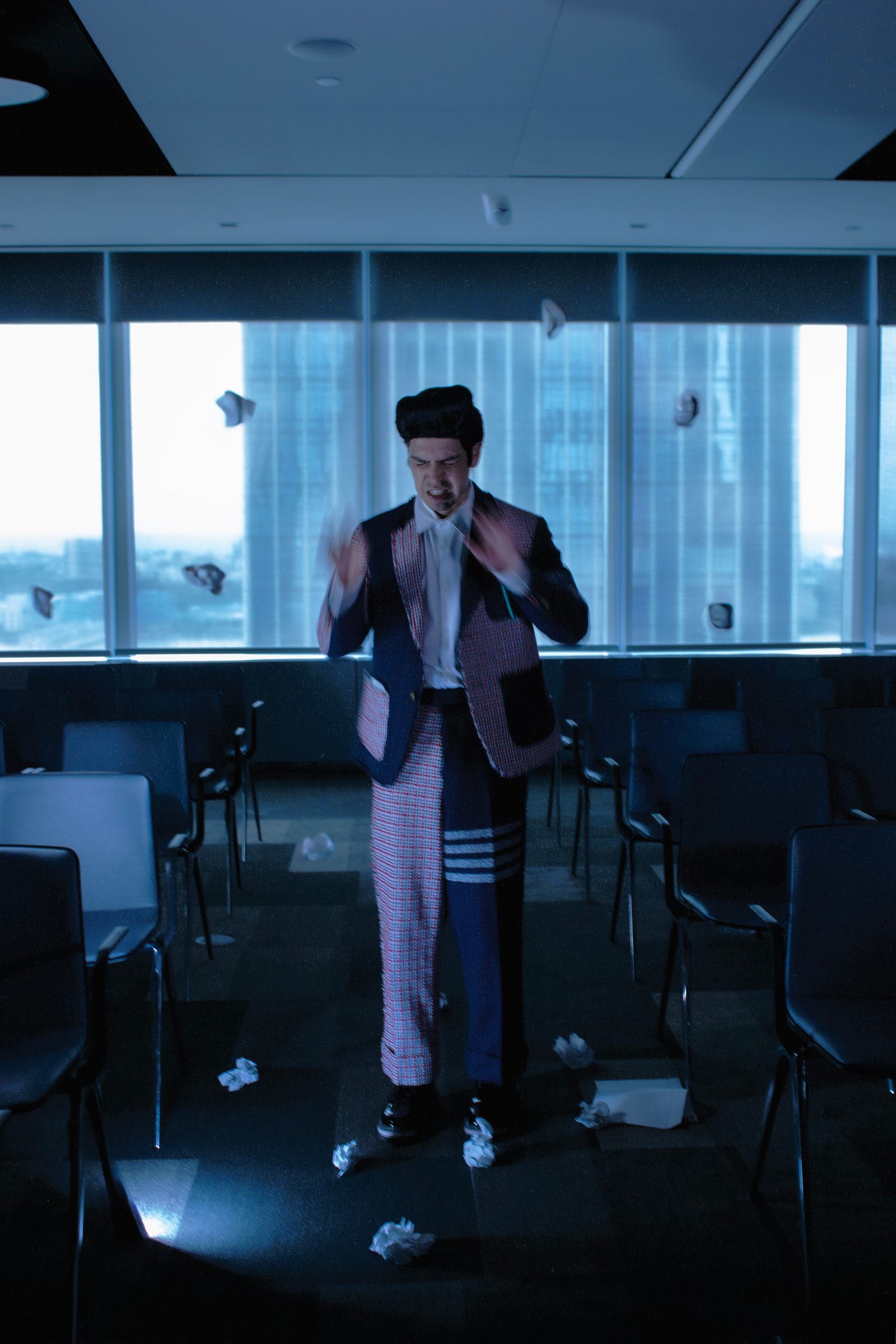
Full Look: Thom Browne
I feel like there are a lot of social commentary messages happening throughout Fantasmas, both subtle and overt. I’m curious of how it might resonate with younger viewers since it feels especially relevant to their experiences and challenges today. Did you specifically have a younger audience in mind while writing the show?
To be honest, I don’t know that I was trying to anticipate a reaction. I really make work that feels honest to me and honest to how I feel and how I see the world. But no, I don’t feel like I reverse engineer and be like, oh, young people are like this or young people feel this way and so I’m going to do something that caters to them. I think that if that ends up happening, then it is no longer organic.
But yeah, I think the show is very much a product of its time and it’s in conversation with the anxieties of the time, it’s in conversation with how do we keep living in a world that puts us in boxes every day, a world where the threshold for being a part of the society keeps getting harder and harder. And seeing more and more people are being left outside and seeing who walks into it passively and who has no choice. These are questions that are very interesting to me. I think that there was a period in my life where I felt very much like institutionally an outsider and I’m fortunate enough that that chapter is not necessarily true of me anymore.
But it really makes me think of like when I see establishments that don’t take cash, for example, I always think of how that might seem convenient for a lot of people, but it makes it impossible for some. The idea that in New York now, the convenience that we can just tap our phone and that grants us entry onto the subway. I think that will come at a cost in perhaps the not so distant future. That this is the only way you can access public transportation, which means that you need a smartphone, which means that you need a bank, which means that you need to be in good standing with the bank. These are all things that so many of us take for granted but are not the reality for everyone. And this idea of people getting pushed out was conceptualized and metabolized for me as ghosts, as Fantasmas in them. And you don’t need to be in those shoes to feel like that way, but I feel like that was my way into that concept.
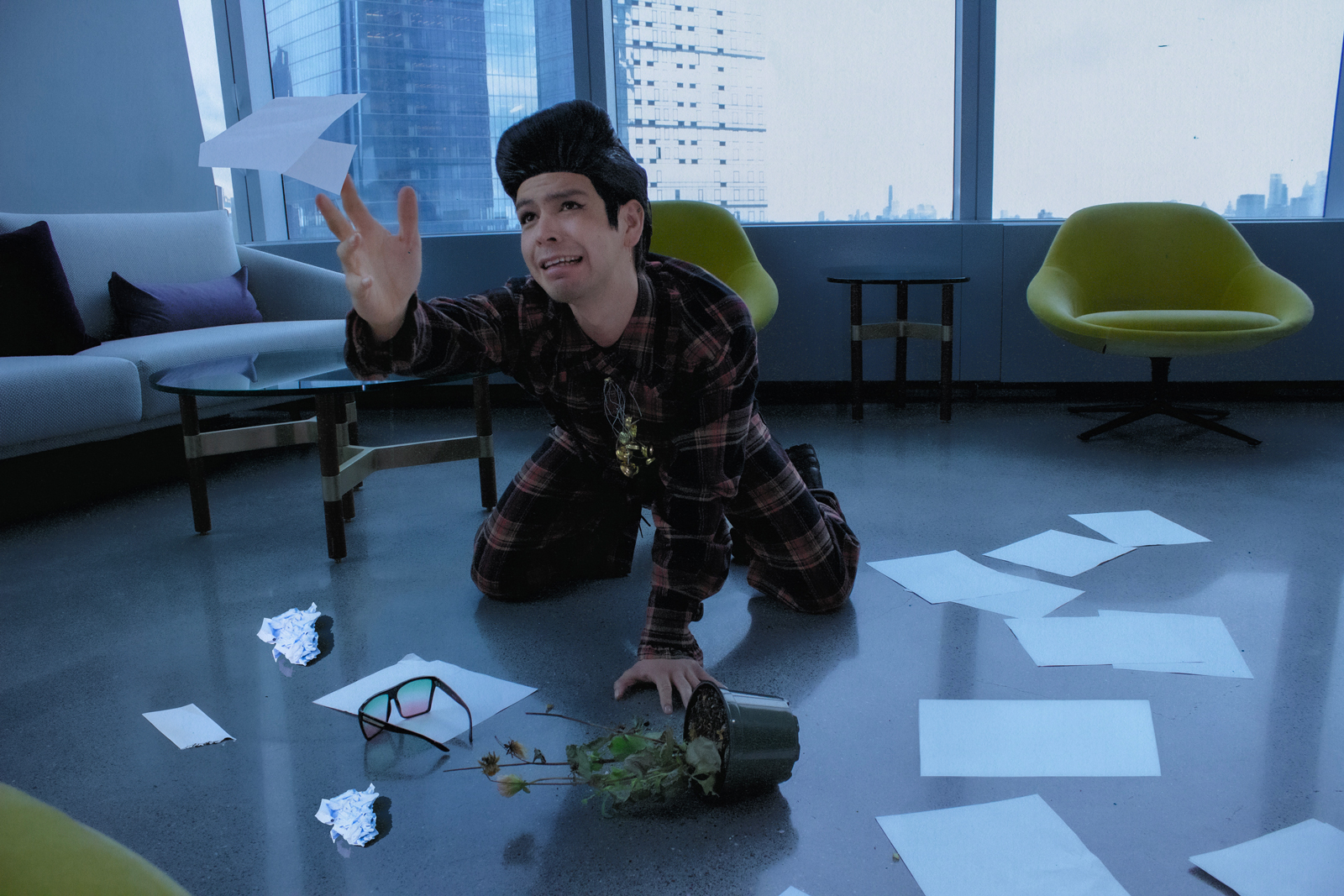
Top and Bottoms: Tanner Fletcher (@tanner.fletcher), Tie: Daniel Roa (@danielroaart), Shoes: Thom Browne (@thombrowne), Glasses: Stylists’ own
As I was watching Fantasmas I was thinking about how your comedy style is so unique. I was curious, who were your inspirations growing up?
That’s a good question. I don’t know, I’ve always been pretty visually driven, to be honest. Stand-up comedy came about for me as a way of attempting to get an into a world that I didn’t know how to enter, by that I mean entertainment. So, I started doing stand-up, not really actually having aspired to be a stand-up comic. Now, of course I love it. But I really like watching movies and when I was really young, seeing like a Wes Anderson or a Tim Burton, for example, just make worlds that are fully their own and develop a very specific style, that was always very seductive to me.
I feel like your bio has grown from comedy writer to executive producer to director. You are so many things now, what title do you end up with in the end?
I think I have warmed up to the title of director quicker than I thought I would. I think that it’s because it’s broader, but yeah, I don’t know maybe creator. Artist. Audiovisual Artist? Haha I don’t know, because to me all of those go hand in hand and yeah, it has kept growing to encapsulate everything I need to do in order to make the kind of work I want to do.
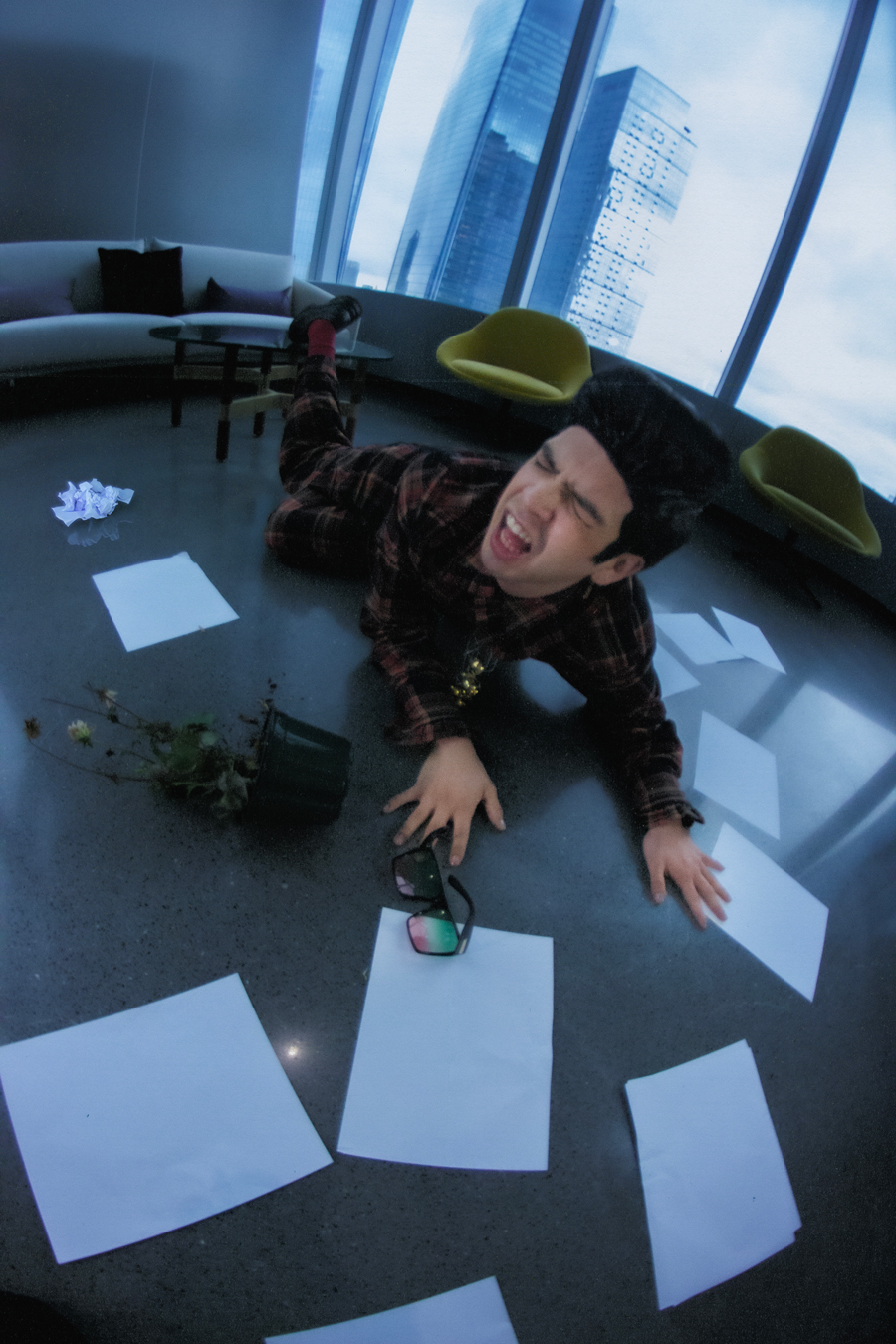
Top and Bottoms: Tanner Fletcher (@tanner.fletcher), Tie: Daniel Roa (@danielroaart), Shoes: Thom Browne (@thombrowne), Glasses: Stylists’ own
Because even for me to ask you what’s your comedy style, it doesn’t feel like you’re just a comic because there’s so many different layers to your work now. It seems that you transcend conventional comedic boundaries, making it challenging to categorize you only as a comic.
But I do wonder what would someone who is not too familiar but familiar enough with my work, what title would they use? And I kind of think that they would just maybe name the things that I’ve done that they’re familiar with, and that feels nice.
As I was researching for this interview, I couldn’t help but notice how it almost seems like everything always fell into place for you career wise. Were there any significant obstacles you faced on your journey to where you are today?”
Oh, I mean, I feel like the biggest challenge career wise was what’s explored in my movie Problemista. I mean, getting to a place where I was able to just be here in the. U.S., catch my breath and dedicate myself to work without having the cloud of immigration and all those things hovering over me.
But since then, I have been lucky that one thing has led to another and they all help the next thing. But I also feel like this is a blessing and a curse with the kind of work that I do where it either happens or it doesn’t. And there’s no years in between spent in artistic compromises because this is the only way I know how to do it, right? It’s like, I pitch a show, the streamer or whatever either buys it or it doesn’t. And if it does, I fully feel like I can make it my own and if it doesn’t, then I move on. I haven’t spent years and years doing work that I’m not super proud of, which I feel very lucky.
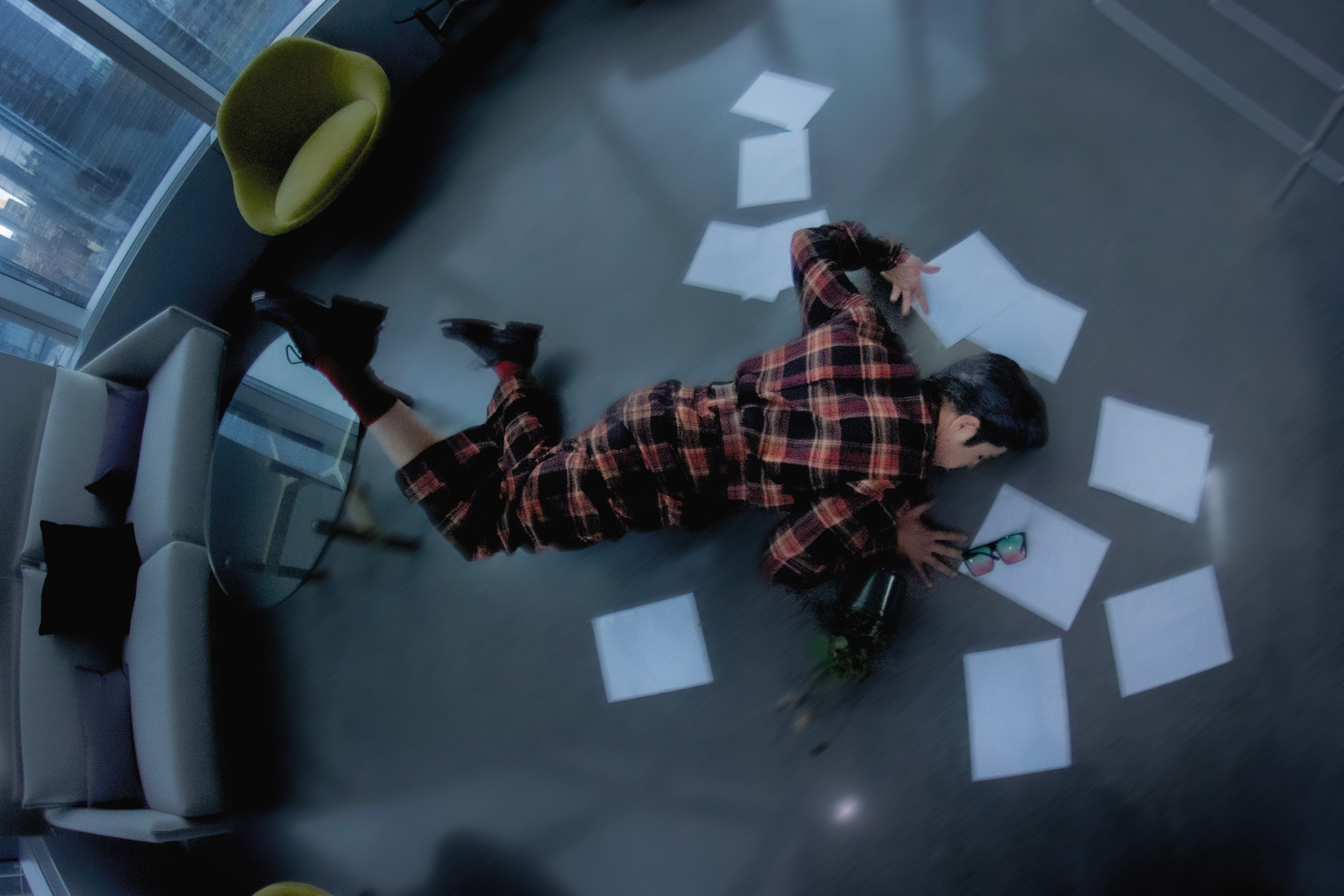
Top and Bottoms: Tanner Fletcher (@tanner.fletcher), Tie: Daniel Roa (@danielroaart), Shoes: Thom Browne (@thombrowne), Glasses: Stylists’ own
Your presence on screen serves as a source of inspiration for many writers and directors within the Latin community, particularly with the relatable story of ‘Problemista.’ Have you received significant feedback from individuals who have personally experienced similar immigration challenges, both in your own life and as depicted in the film?
Yeah, a lot actually. It’s ironic because I felt so lonely in those times of my life and come to find out that it’s so relatable and that many of us have felt those ways. And yeah, that’s always really humbling that you’re not just making a vanity project that just speaks to yourself or a few, but that you’re actually speaking to a greater human experience.
Your approach to storytelling is always unique and endearing, and it evokes a sense of childlike wonder and optimism, even while your characters are struggling. It’s a quality that often fades as we mature and encounter the reality of life. Do you find that you still maintain a childlike optimism about the world as an adult?
Yeah, for sure. I’m an optimist. I was raised an optimist by my mother and I feel like I’m continuing to be that way, I hope. And I’m a glass half full person and it takes a lot for me to despair and I just keep going, going, going. Yeah, that’s just my default. And I do feel like a kid when they hear the word “No”. Kids don’t go, “oh, okay”. No, they are like, “well why? Well, what about this? Well, what about that?” And I feel like I’m completely like that.
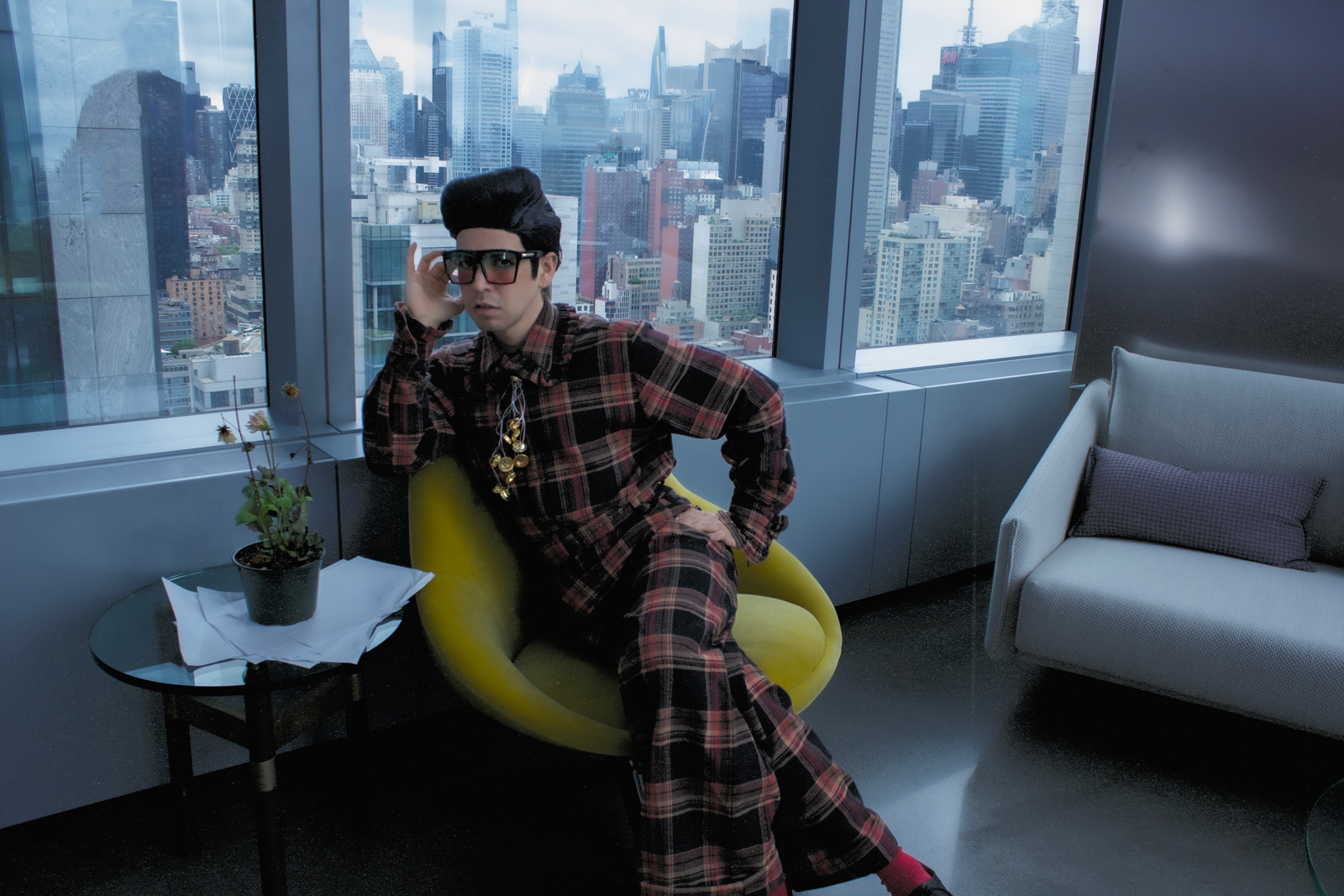
Top and Bottoms: Tanner Fletcher (@tanner.fletcher), Tie: Daniel Roa (@danielroaart), Shoes: Thom Browne (@thombrowne), Glasses: Stylists’ own
Would you say you’re stubborn?
Yes, very. Uh-huh.
Aquarius, right?
Aquarius, yeah. And either I care about it deeply and I’m so stubborn about it or I couldn’t care less and I’m like fine, yeah, whatever. So, for me, like, no, no, it’s gonna happen this way or we’re not gonna do it.
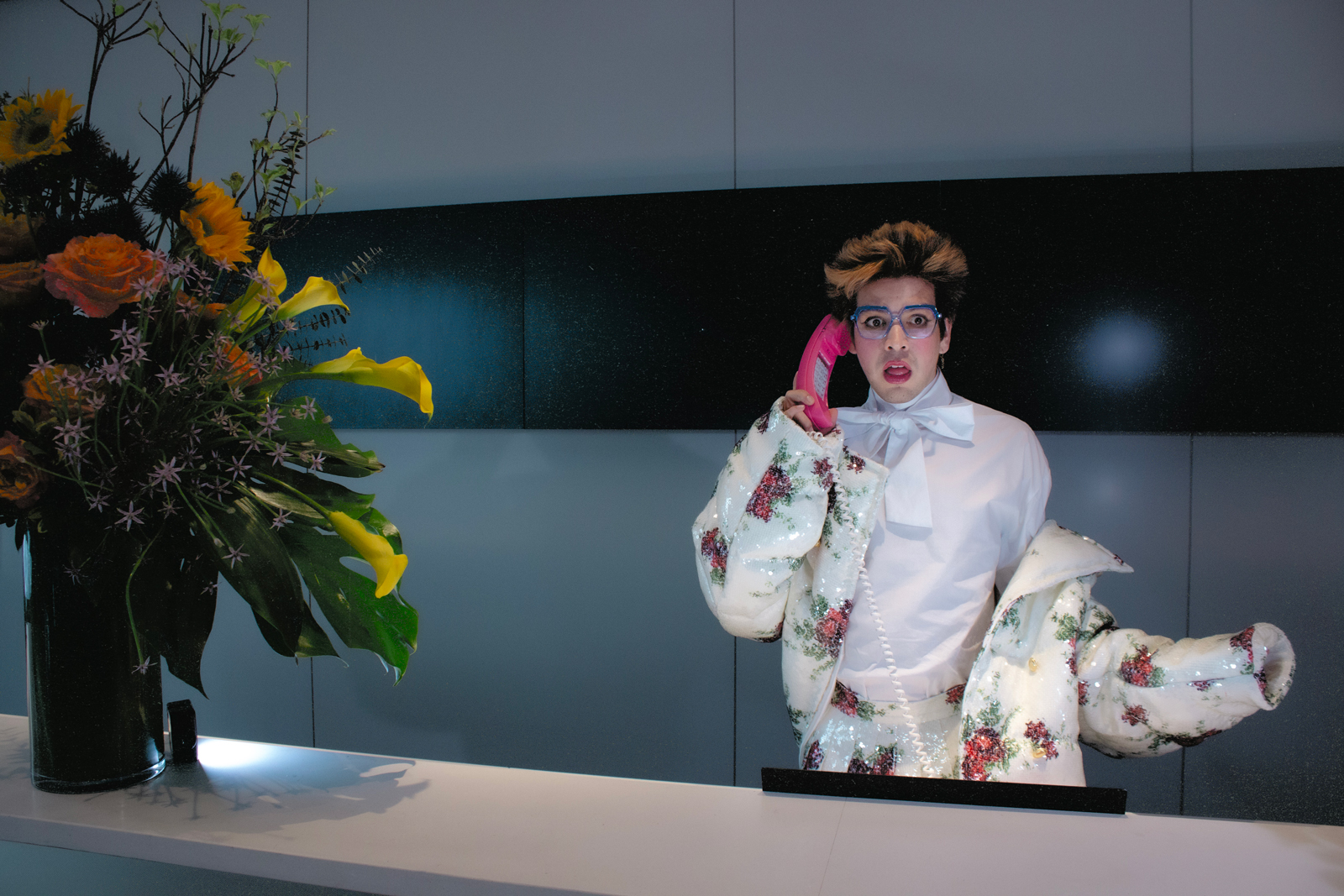
Blouse, Skirt, Jacket: Tanner Fletcher (@tanner.fletcher), Tights: Calzedonia (@calzedonia), Shoes: Thom Browne (@thombrowne), Glasses: Stylists’ own
Returning to the topic of Fantasmas, alongside yourself, Emma Stone serves as an executive producer on the show, and she also held this role for Problemista. Could you share the story behind your collaboration? How did you two initially connect?
We met when she hosted Saturday Night Live two or three times ago. And she really gravitated towards my writing in a way that was so humbling, and I really loved, loved getting to work with her. So by the time that I needed producers that felt like an obvious fit, but also because half of the production company is my friend Dave McCarrie who had directed everything I wrote on Saturday Night Live and he and I were like on lockstep together and creating for so long that it just made so much sense.
So, I’d like to delve into politics for a moment. I’ve noticed you’re quite active on social media, and given the current climate, particularly concerning the youth vote, it can be challenging to fully support a candidate. While there may seem to be an obvious choice, there’s definitely hesitancy among many voters in vocalizing support for Joe Biden this election year.
Yeah.
What are your thoughts on your role and influence as a celebrity in the political sphere, and what are your plans for engagement during this political season?
I don’t know. The big answer to that question is I don’t know because I feel the consequences of the worst of the two evils being elected are going to be catastrophic. And at the same time, I’m so furious, so furious that we have been painted into a corner where we have to choose someone who is going so against how we want the world to be, whose only selling point is that he is not as bad as the alternative. And that is such a gut punch to the youth and to the future and it’s very frustrating. And I don’t know, I think that like we will perhaps feel a greater sense of urgency to rally again, to rally for this person. I think we’re still in a bit of a denial period, maybe. Where we think they will be like “JK! Actually there’s this other option!”
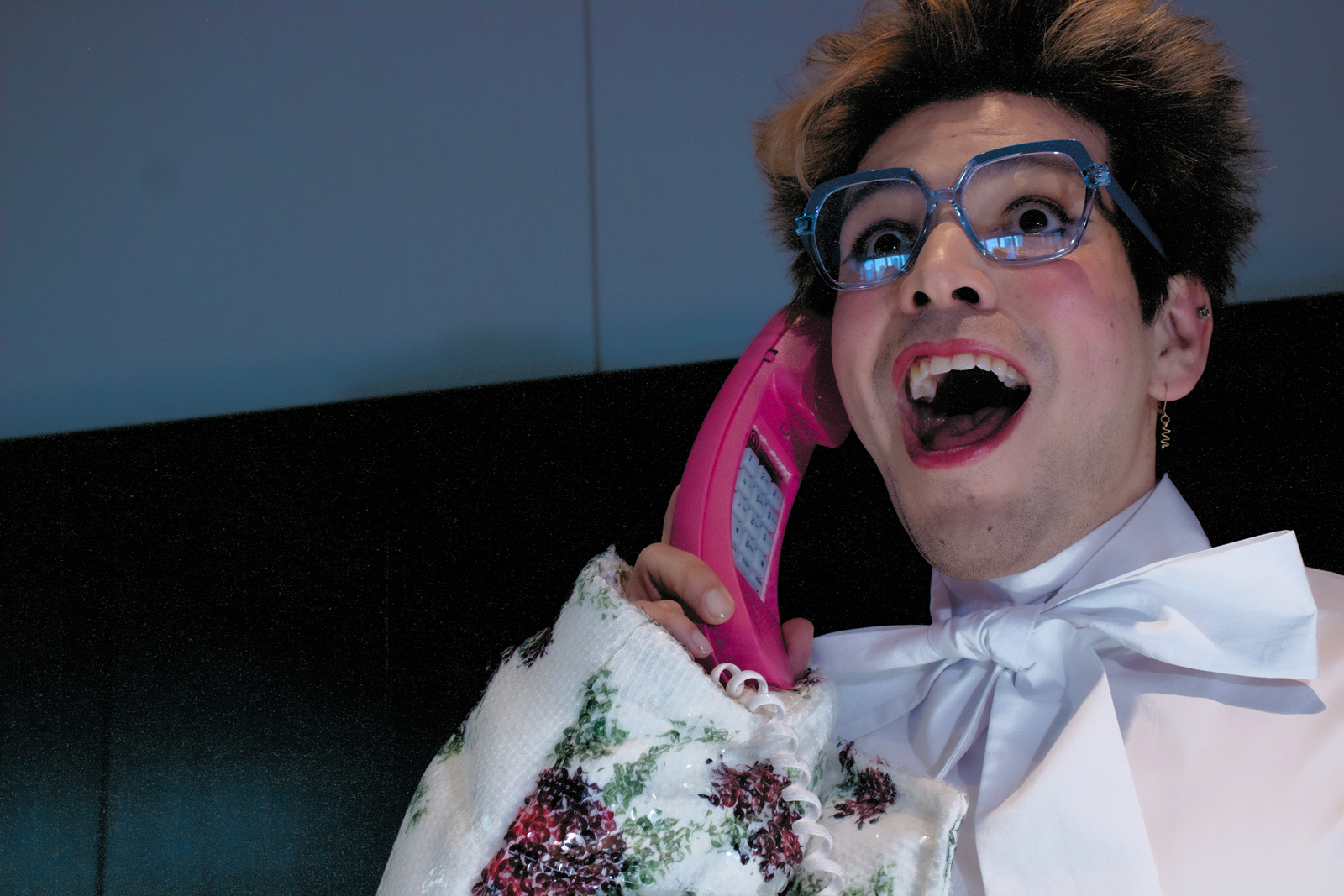
Blouse, Skirt, Jacket: Tanner Fletcher (@tanner.fletcher), Tights: Calzedonia (@calzedonia), Shoes: Thom Browne (@thombrowne), Glasses: Stylists’ own
But it’s too late. We’re too far in at this point. And I’m looking for your optimism here!
I know, I know. I think that the optimism here is that I think the seeds for something greater are definitely planted. I think that things move as quickly as we want them to. I have never experienced such loud, anti-war movements as I have now. And for the longest time I have always felt like I sort of had to always bite my tongue about this.
Because this idea, this very like patriotic idea that there are countries that are good and countries that are bad. And those were already decided. I don’t know, I like that these things are being questioned and examined now. And so in that way it is hopeful, but I don’t know. It’s very much that that party is really taking those votes for granted. It’s tough.
But we can move back into more positive topics. Because I want to get back to Fantasmas and all the great guest stars that are in it, I’m on episode three now but I’m like very excited to see who else is on. Can you name a few people? Well, by the time this comes out, everyone will know, but who else can I expect to see? Are there different celebrities in each episode?
Yeah, yeah. I mean, to me, the celebrities are as much as a joy as much as the cast who are new to the audience who they’ll get to meet and fall in love with. Obviously, I think Martine is a revelation that people will fall in love with. And I have other friends that you’ll see in later episodes. I think that my friend Spike really blossoms in later episodes. And as for people that audiences may already know, I was so delighted to get to work with Rosie Perez.
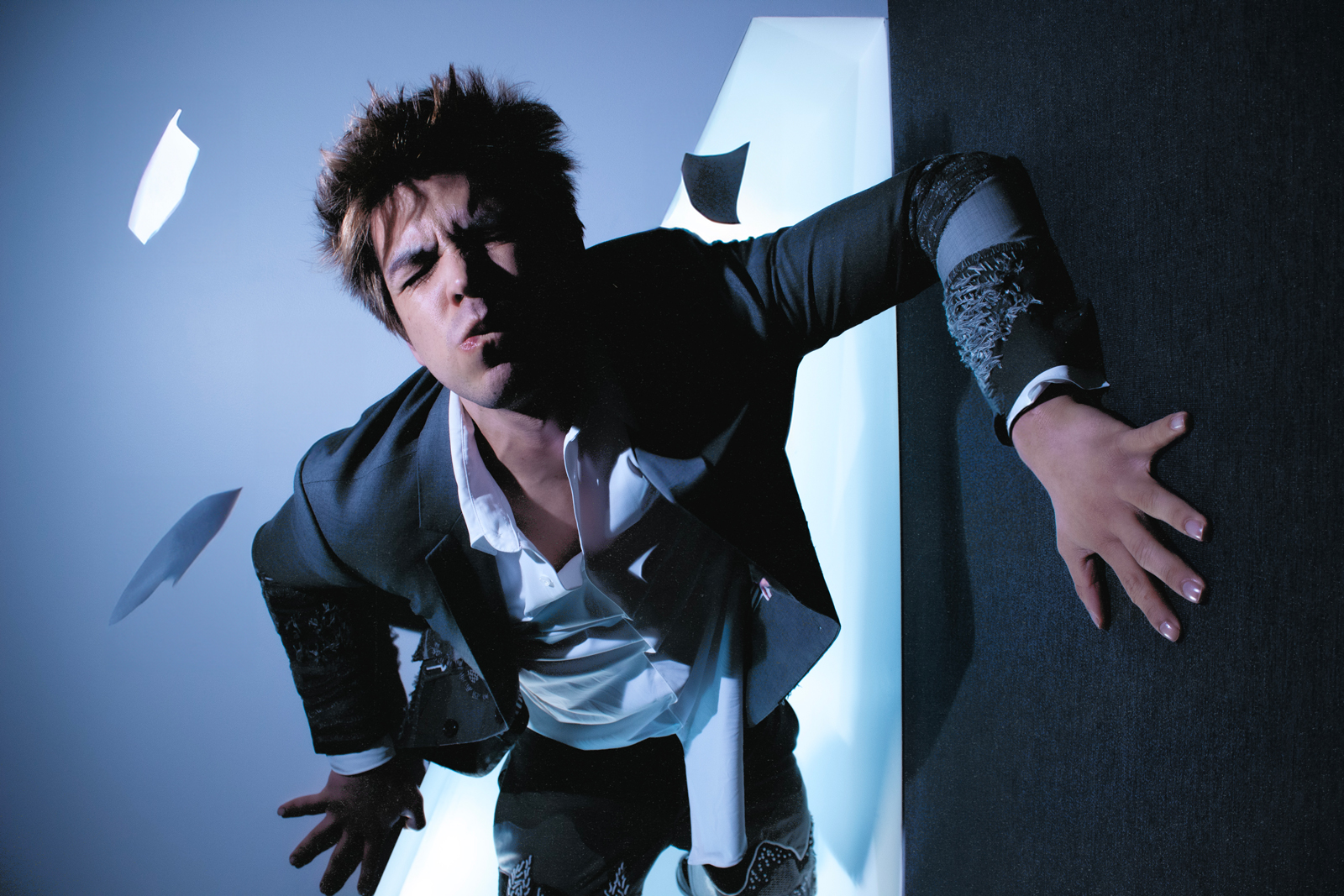
Full Look: Thom Browne (@thombrowne)
That’s going to be great, I love her.
Yeah, so you’ll see her.
I like how the casting is a good blend of a lot of the New York scene kids mixing in there.
Yeah, obviously Rosie is very much one, too.
Yeah, for sure from all generations, it’s like very New York.
Very New York!
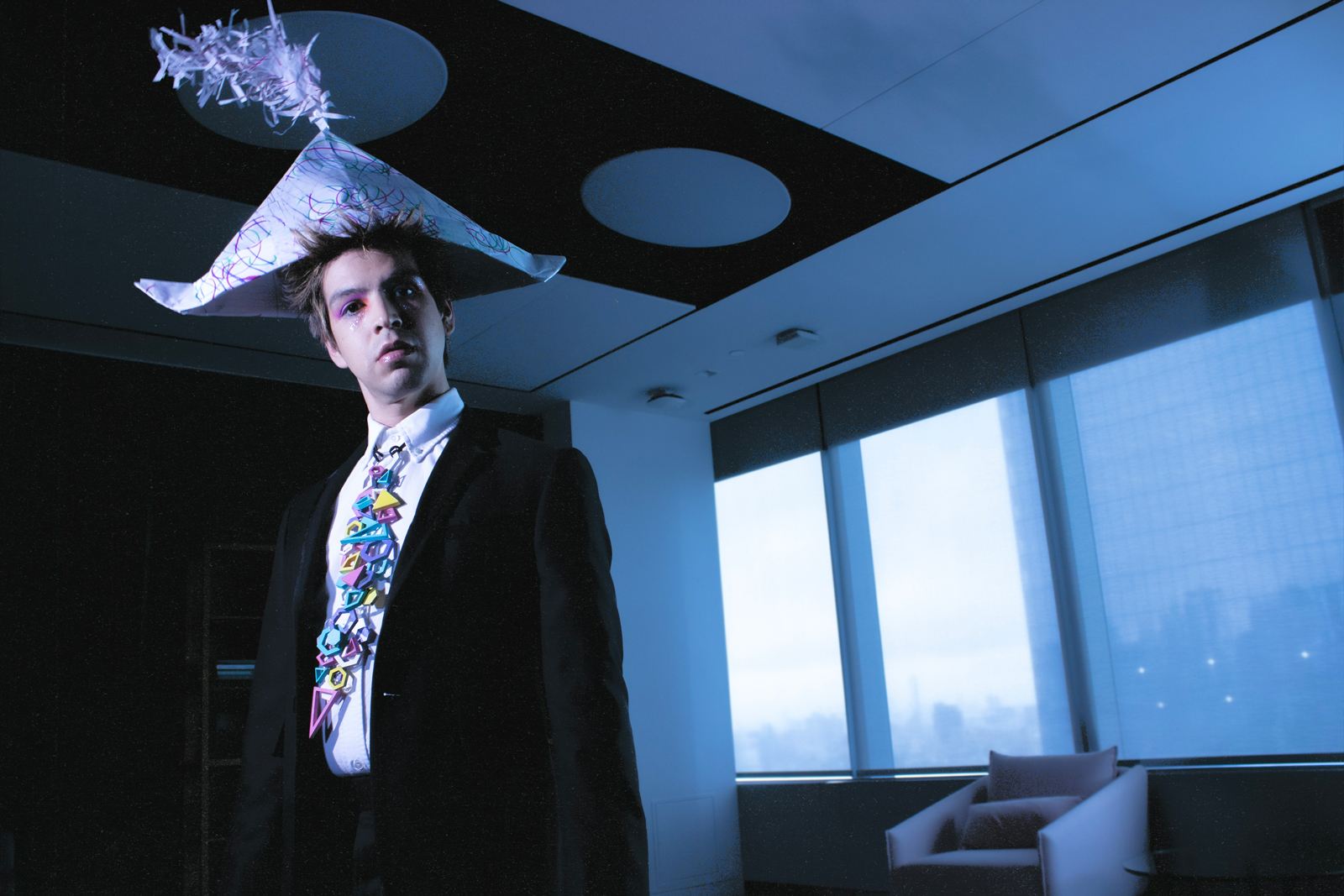
Suit, Shirt, Boots, and Bag: Thom Browne (@thombrowne), Tie: Daniel Roa (@danielroaart), Tights: Calzedonia (@calzedonia), Gloves: Stylists’ own

